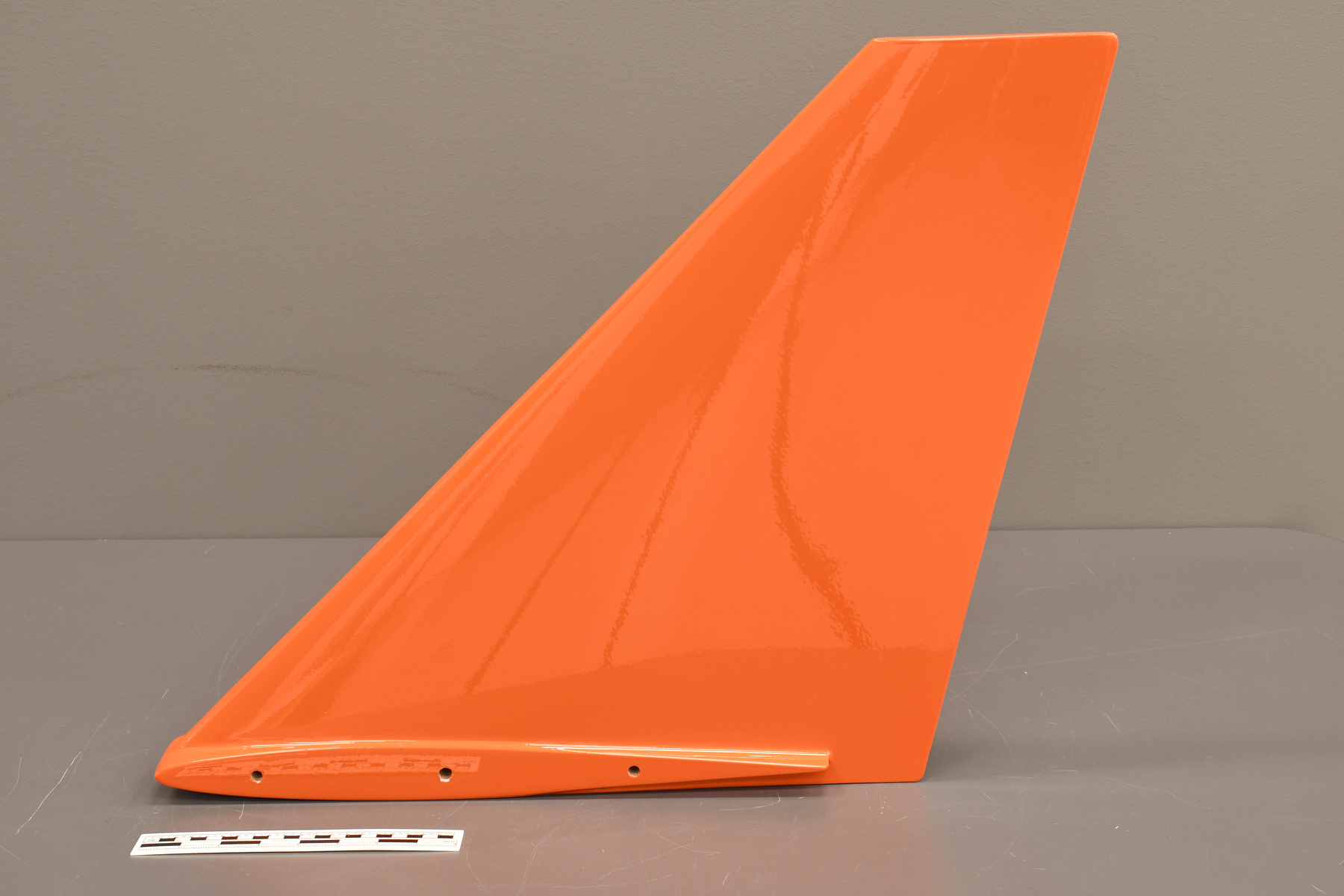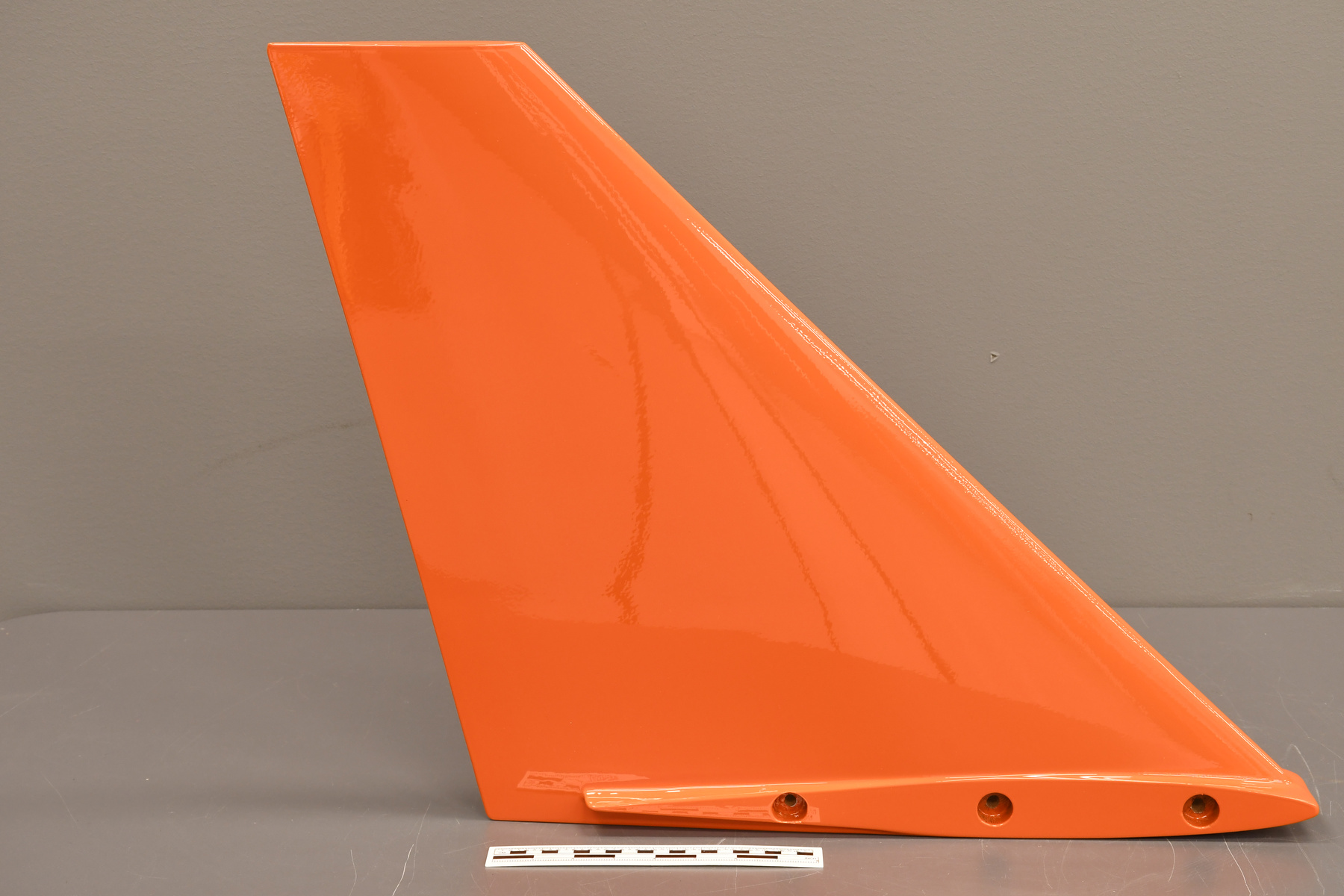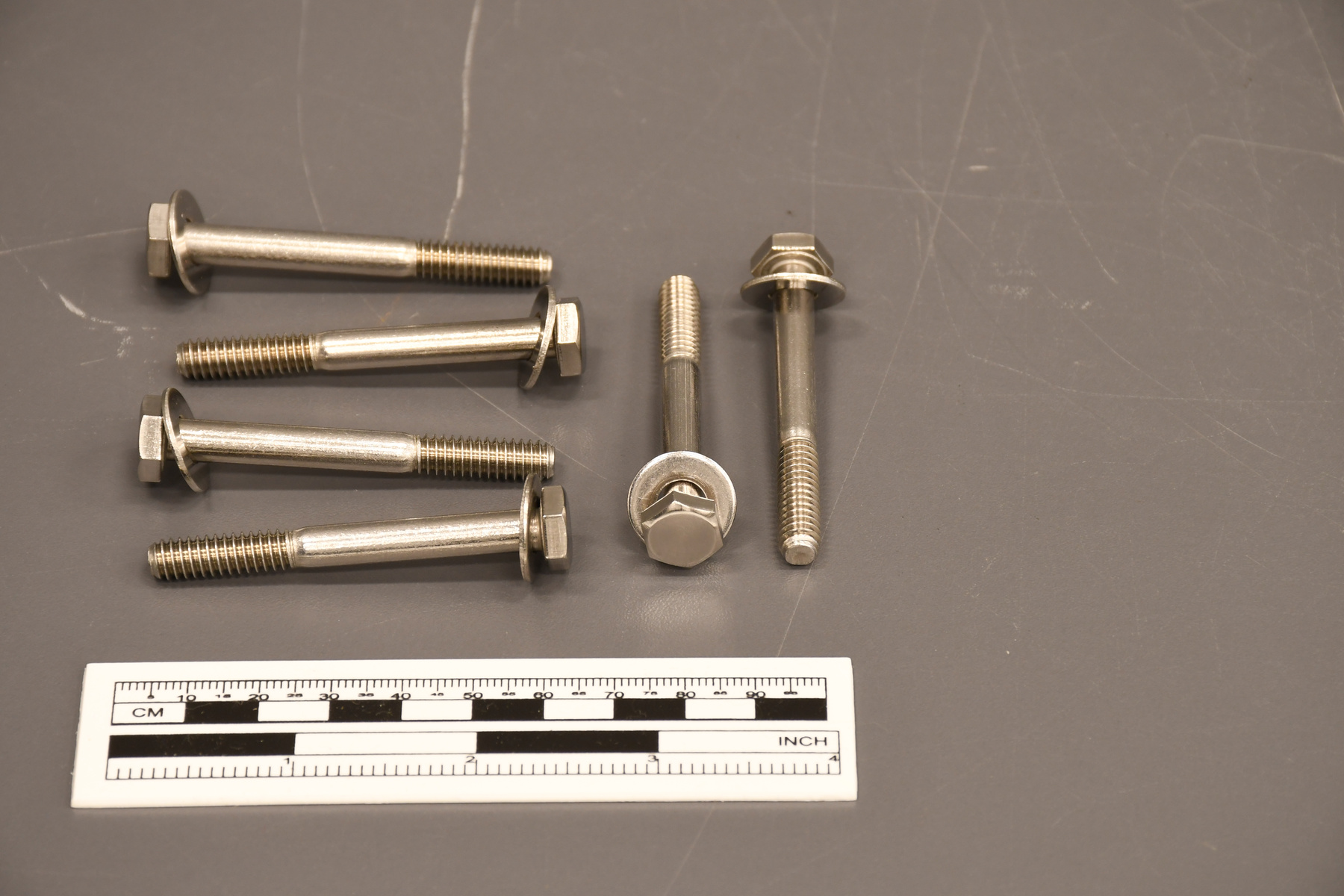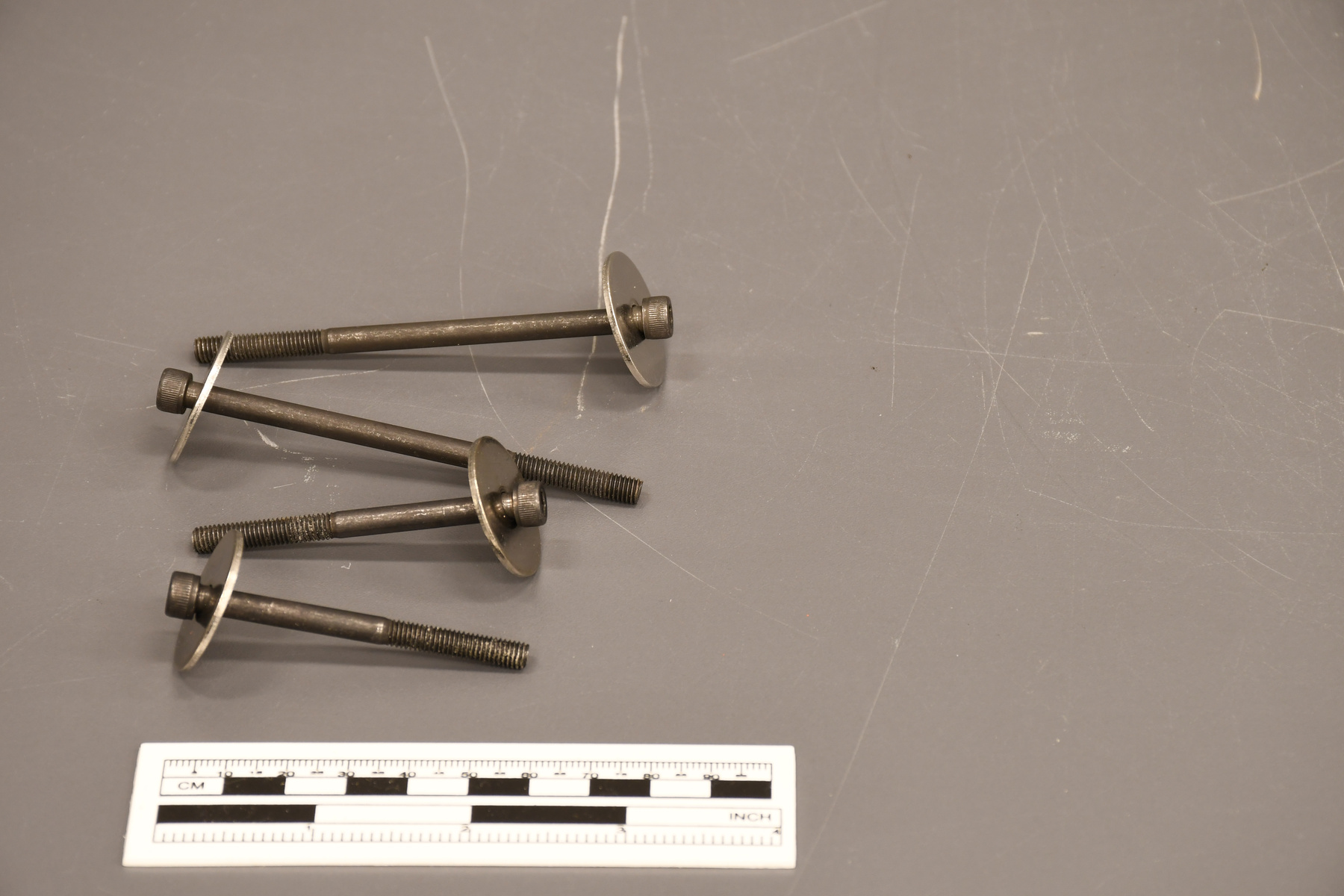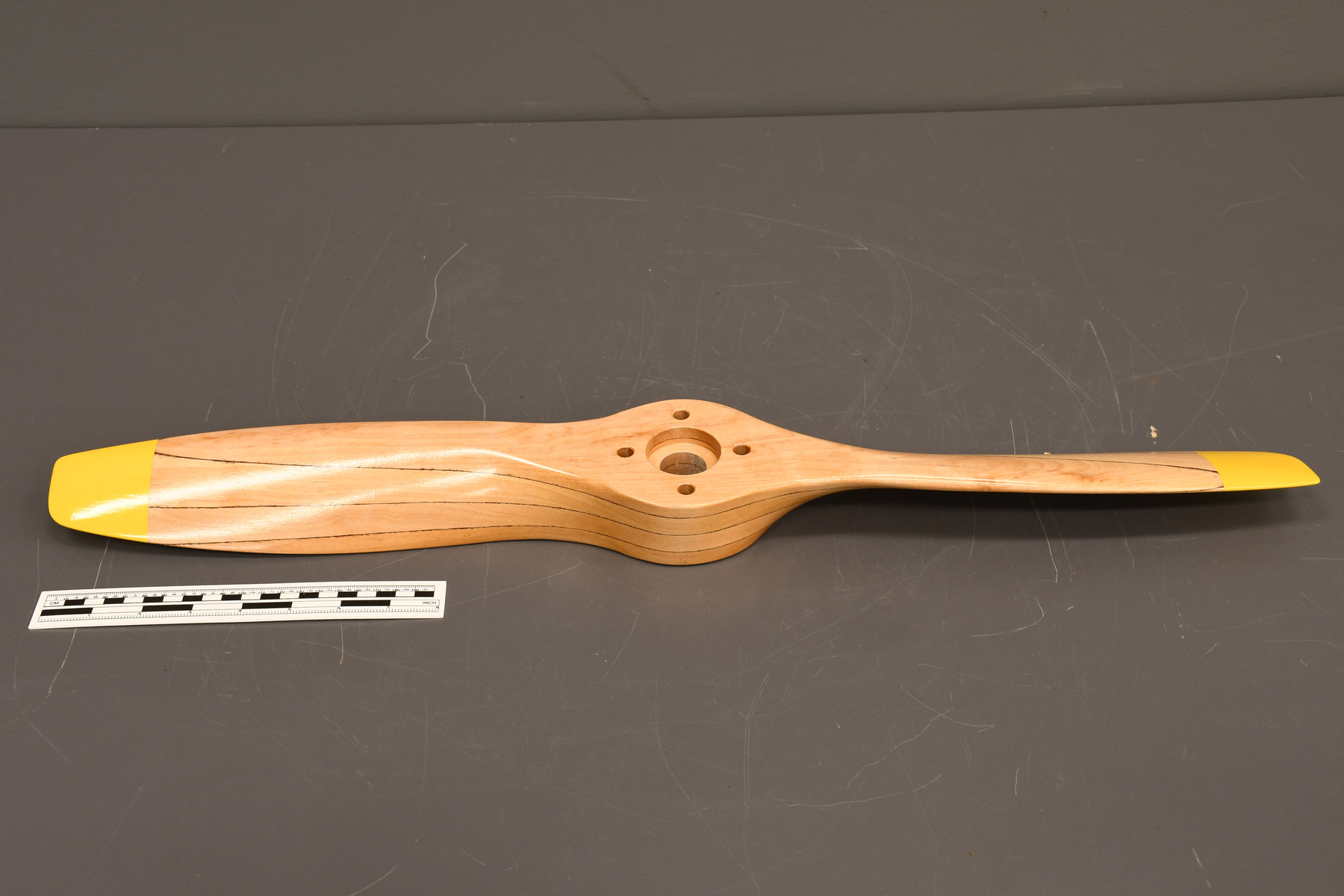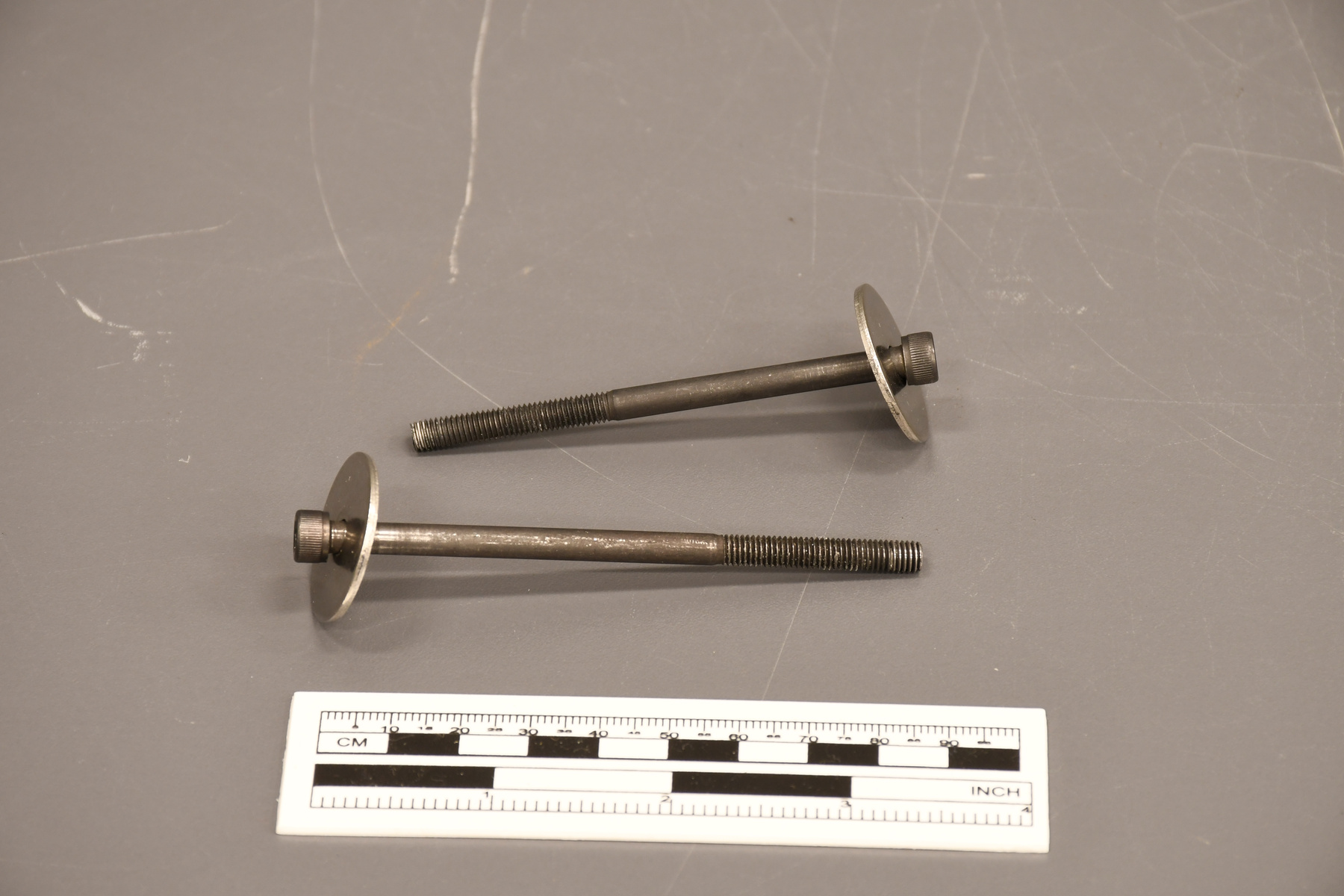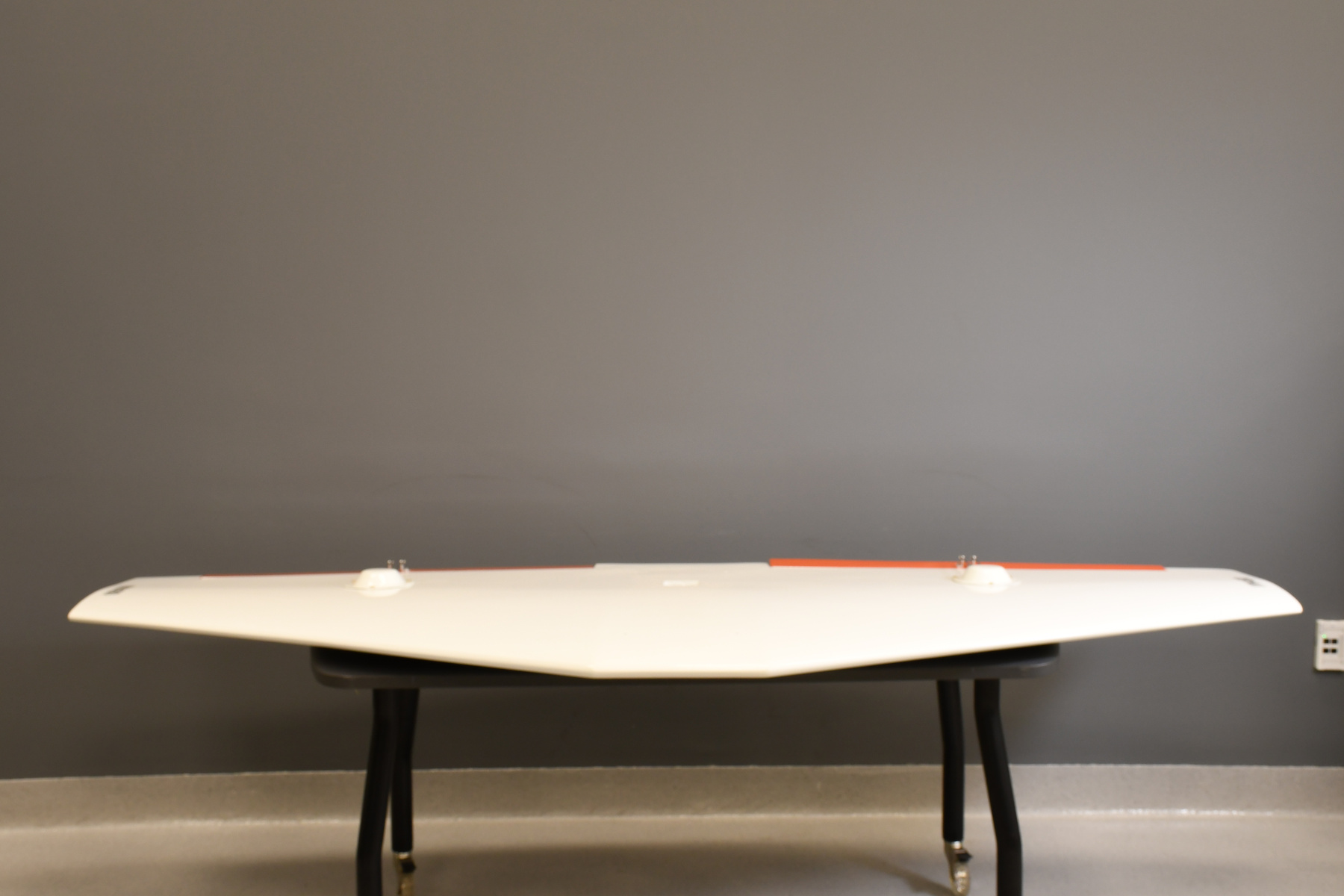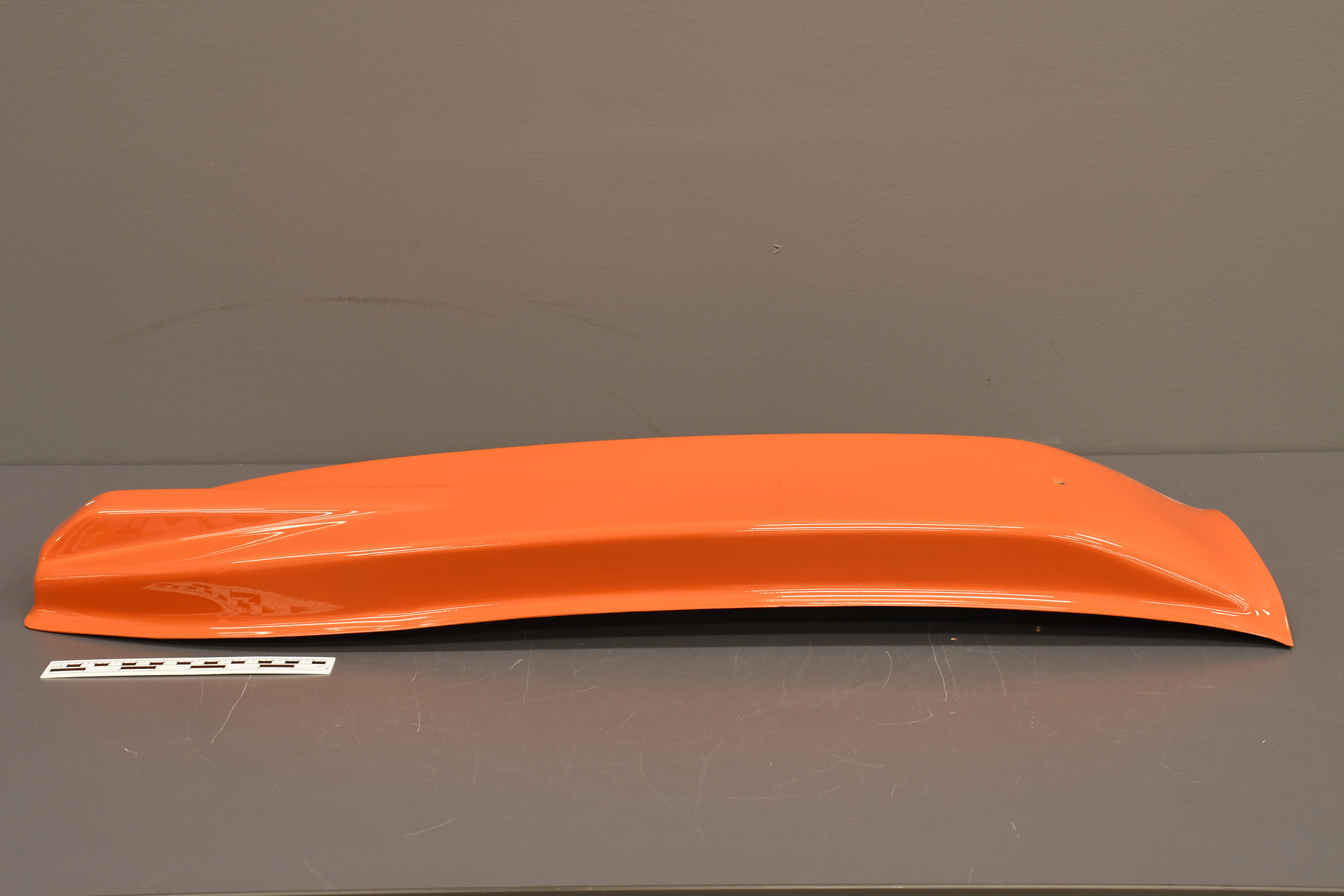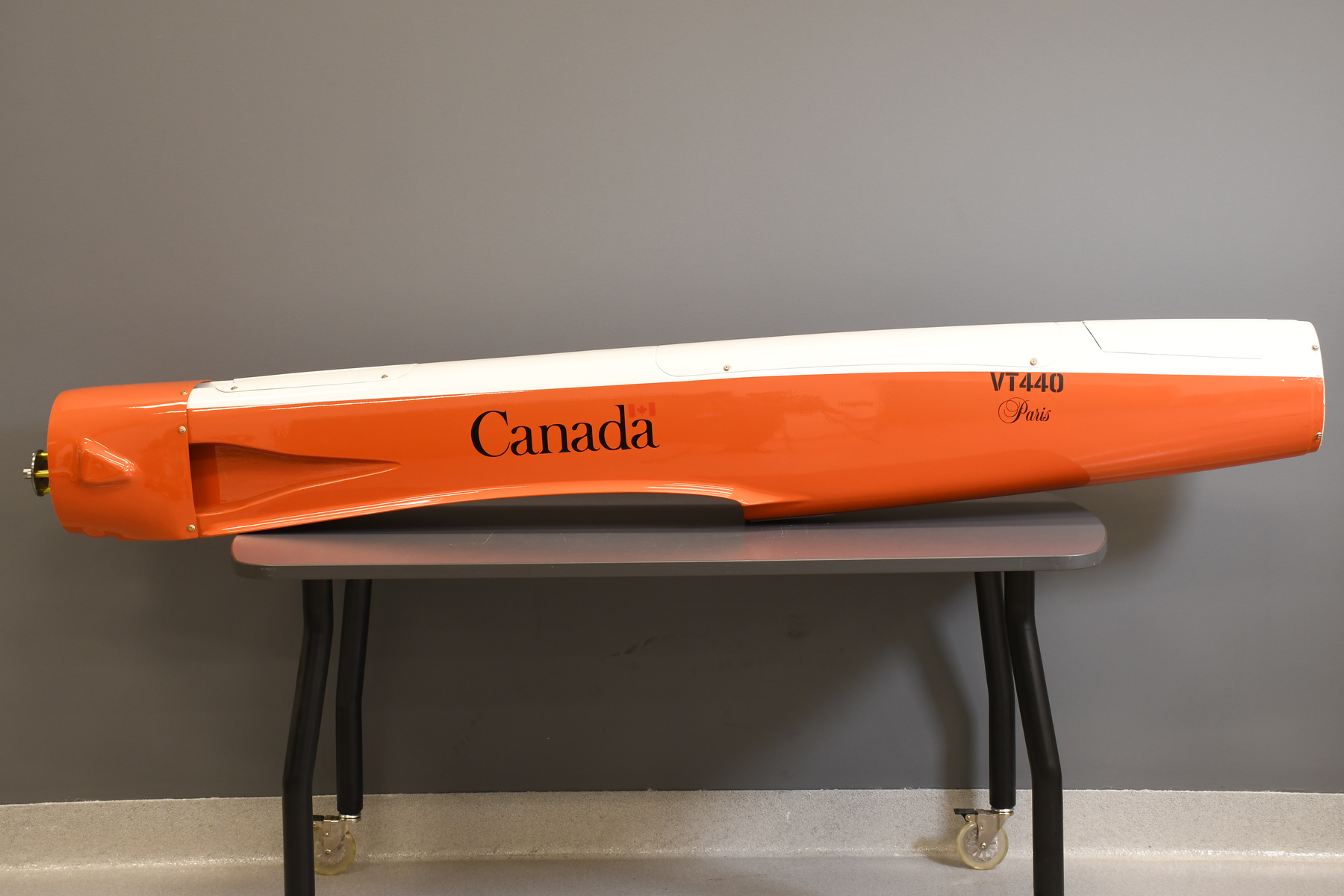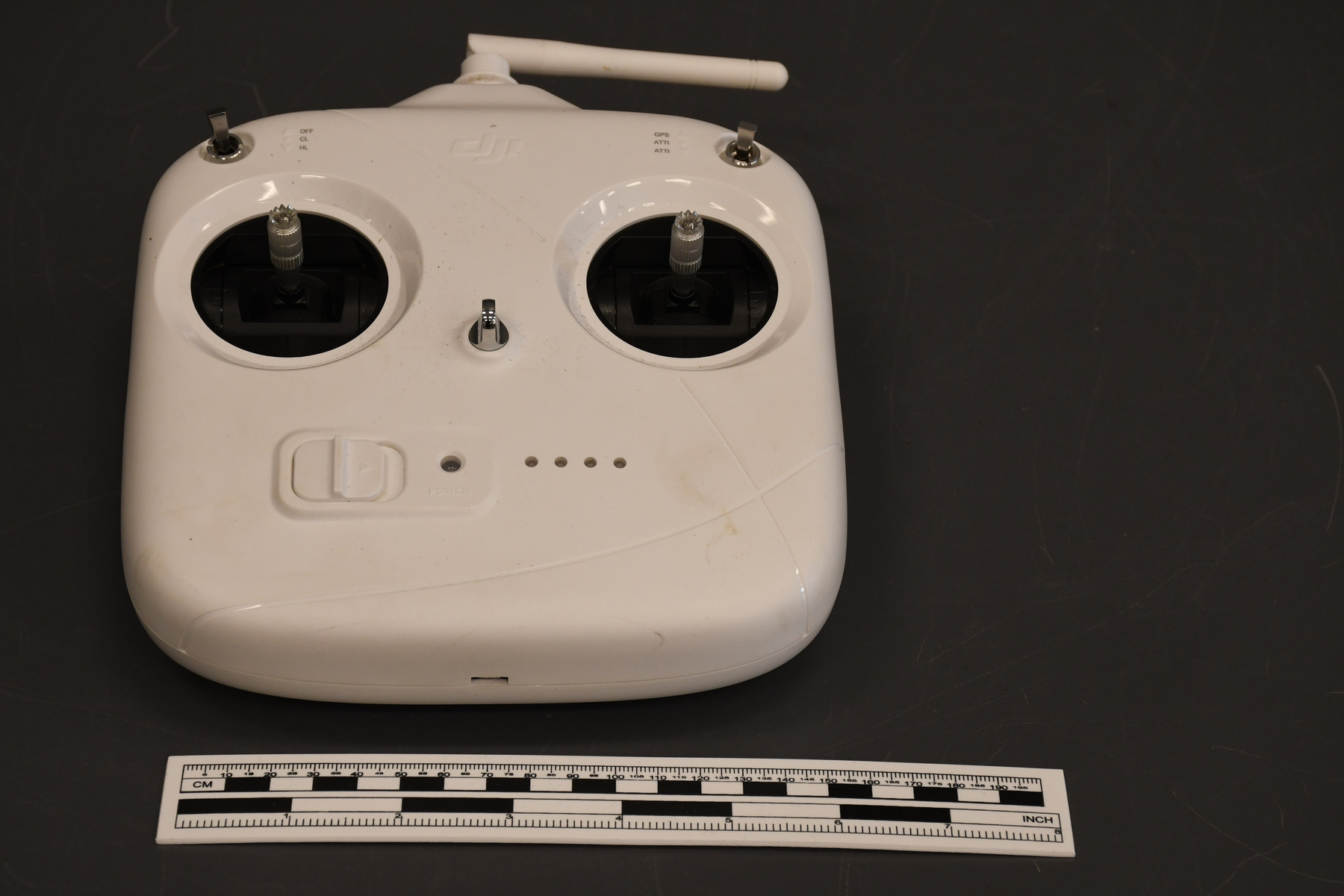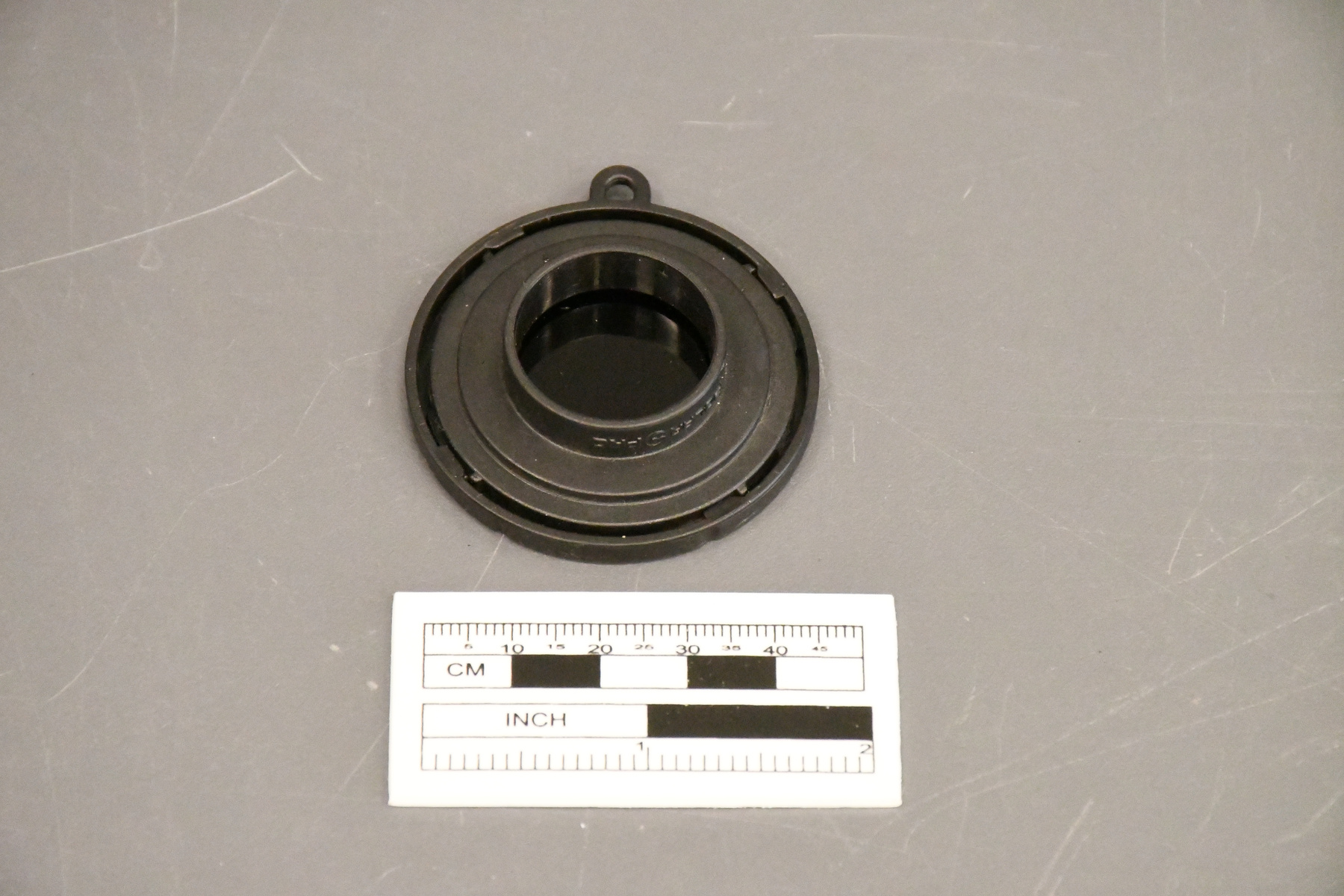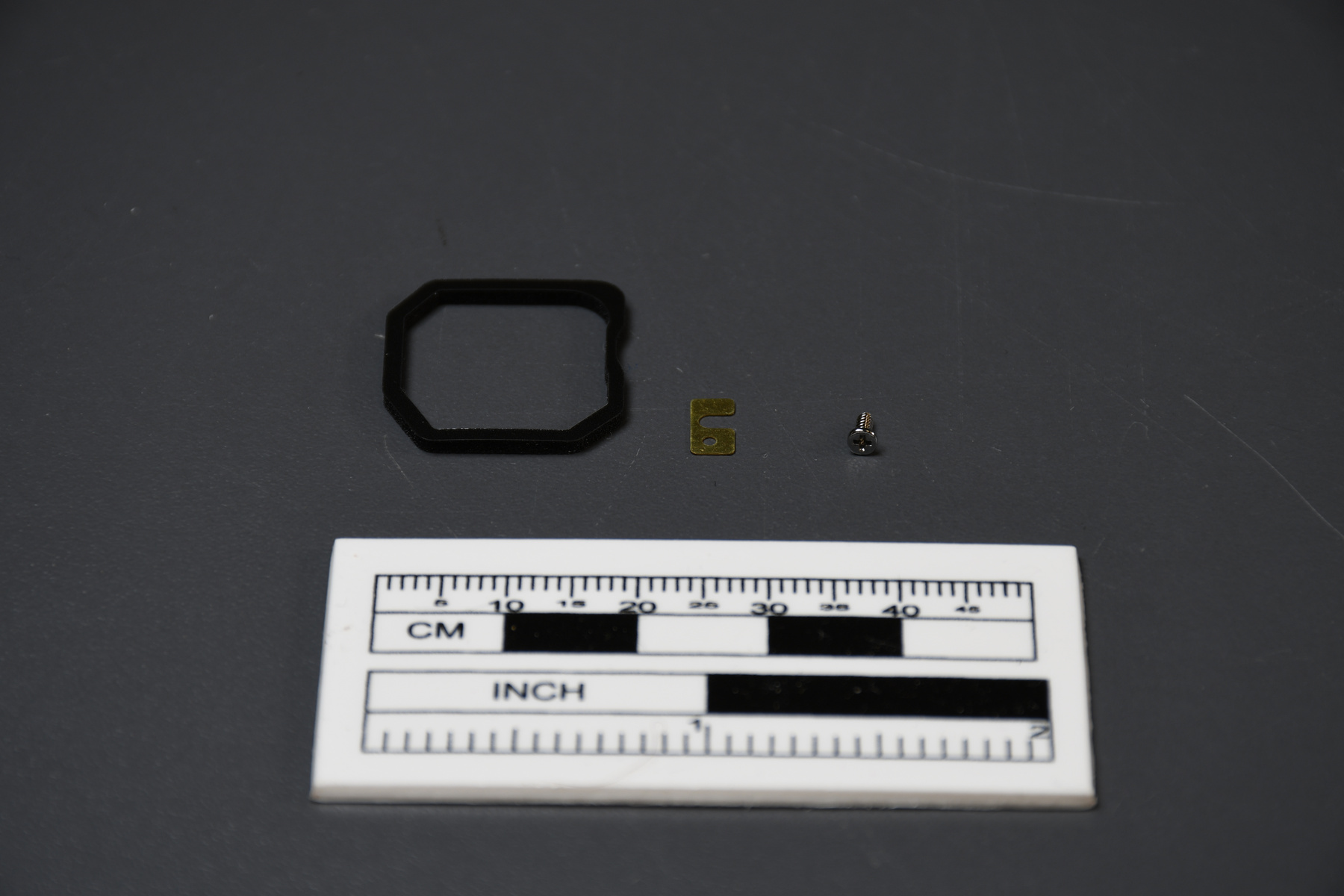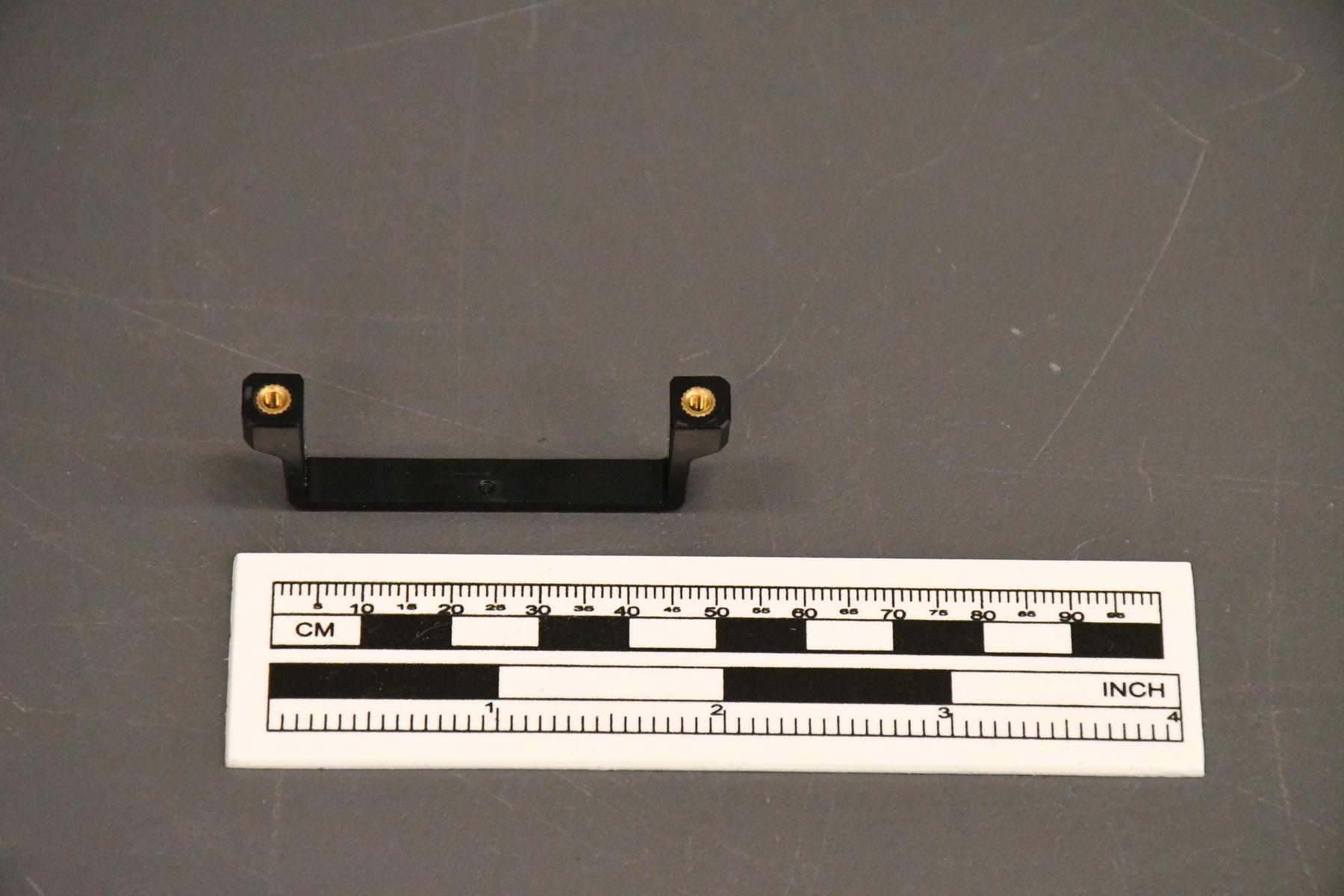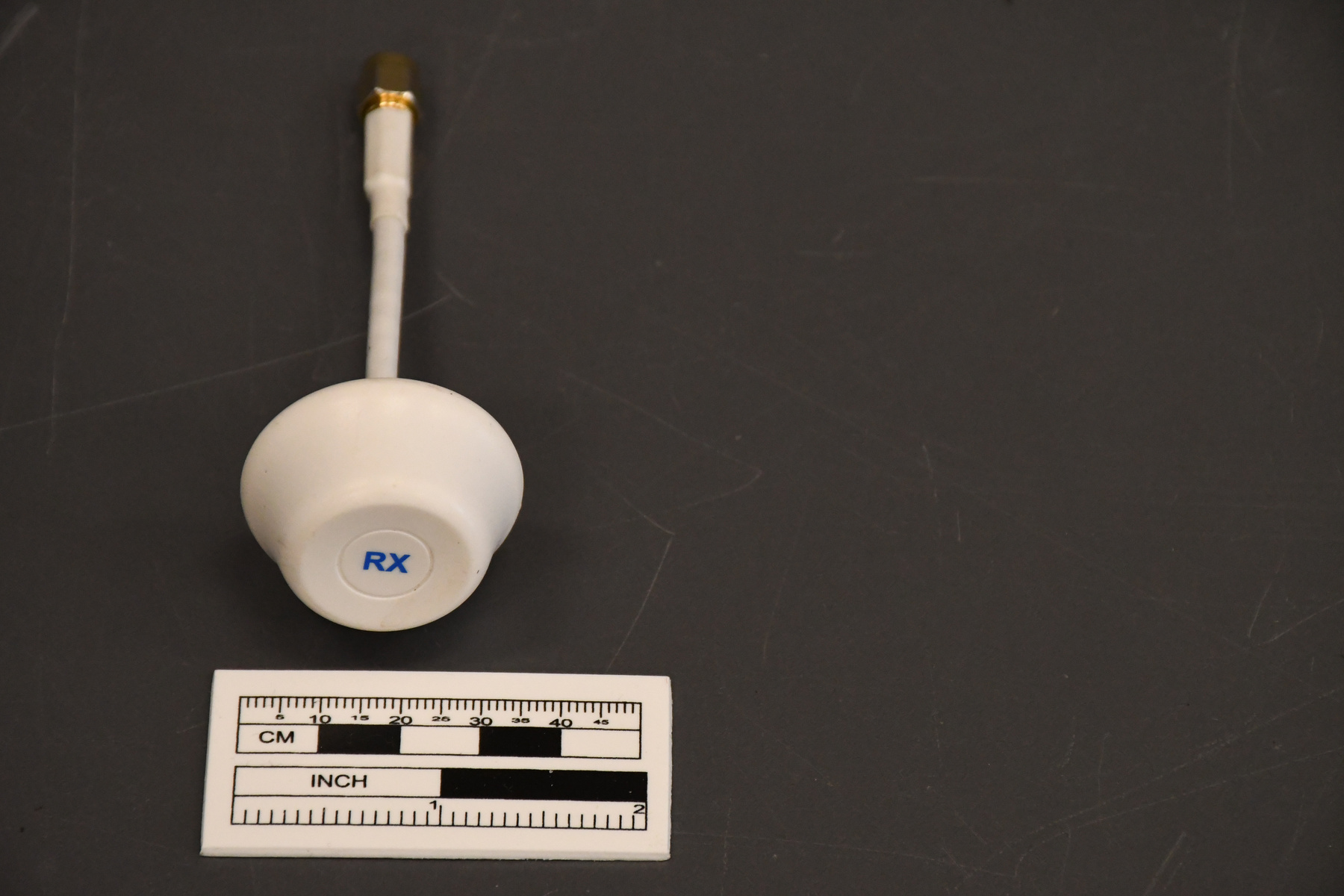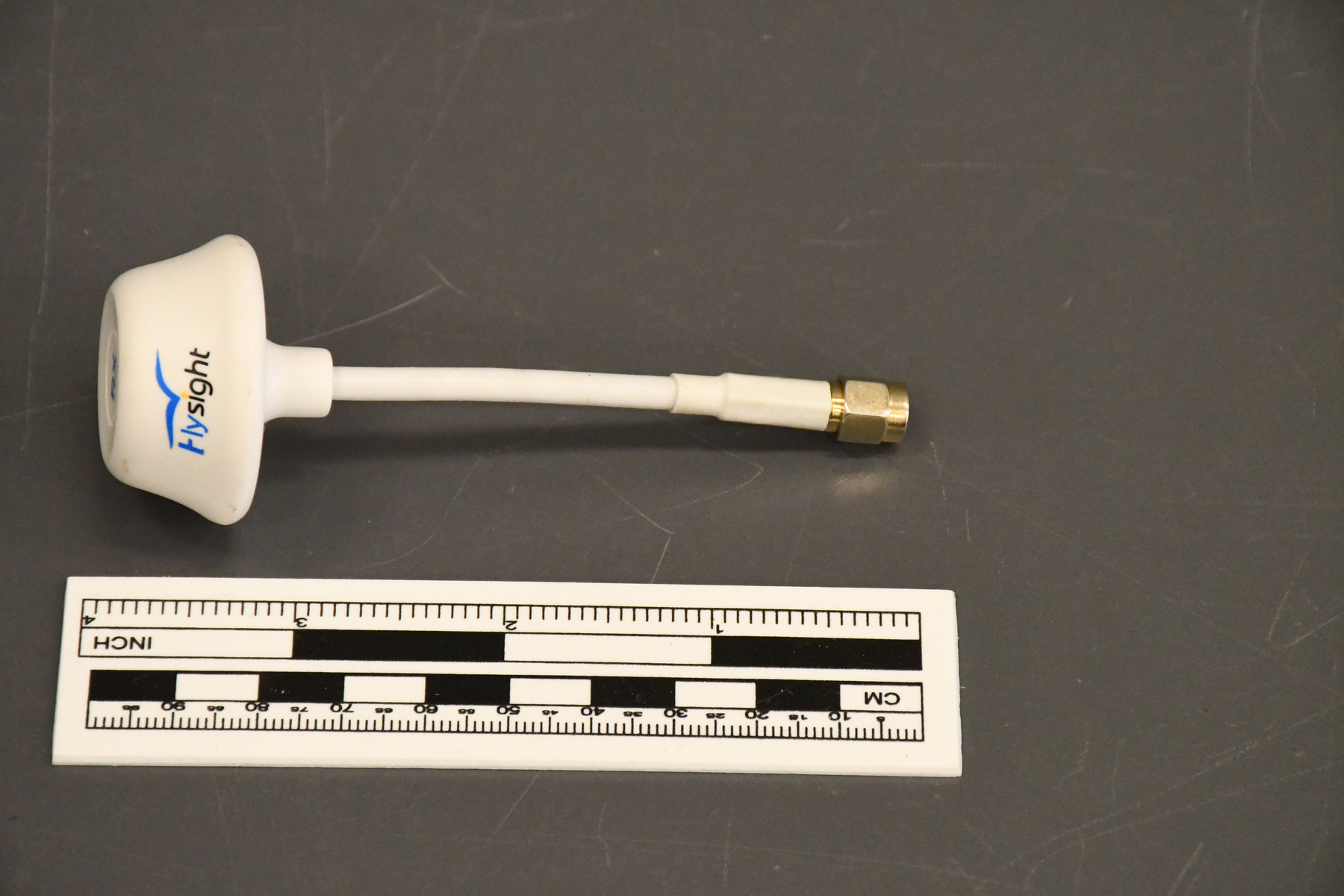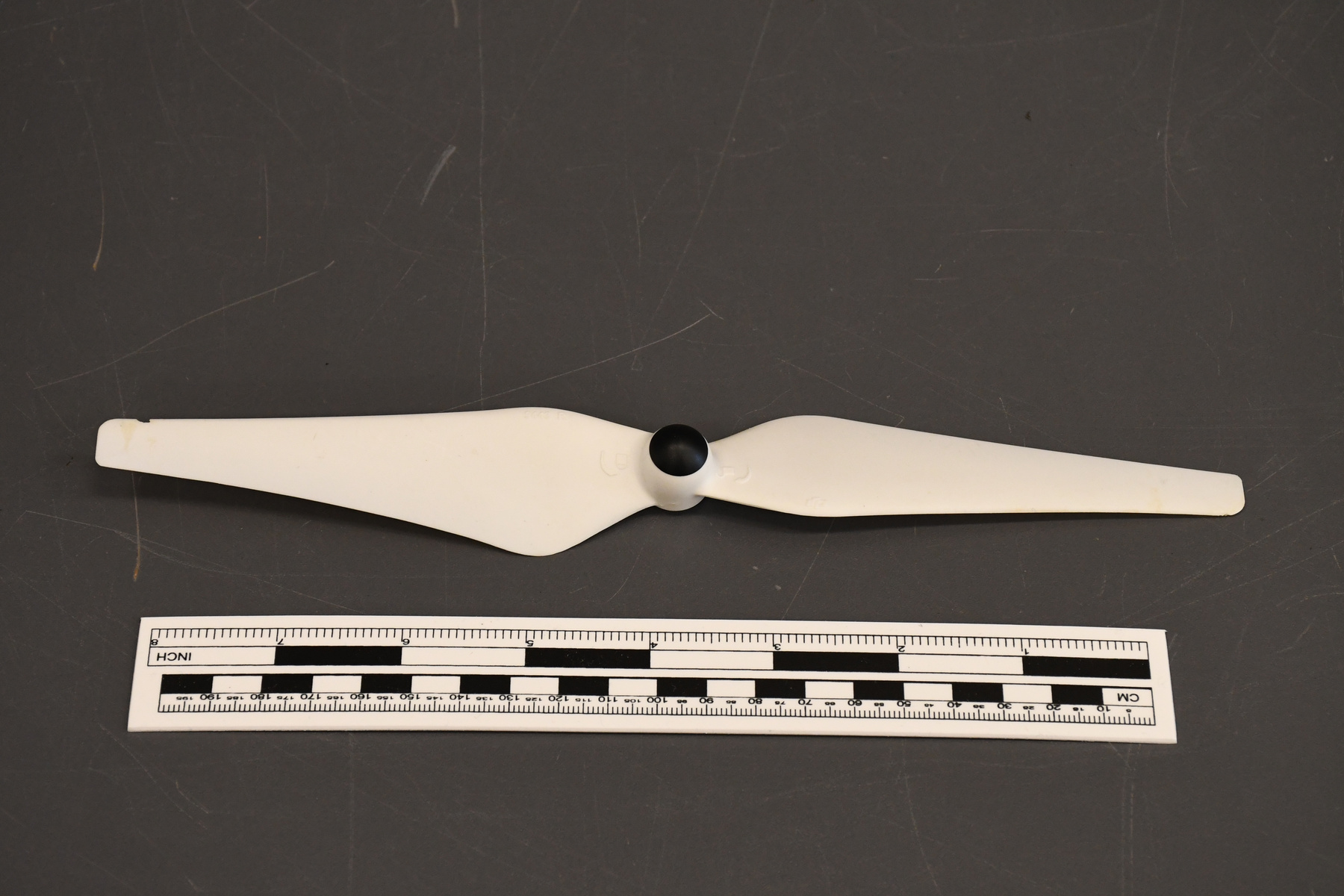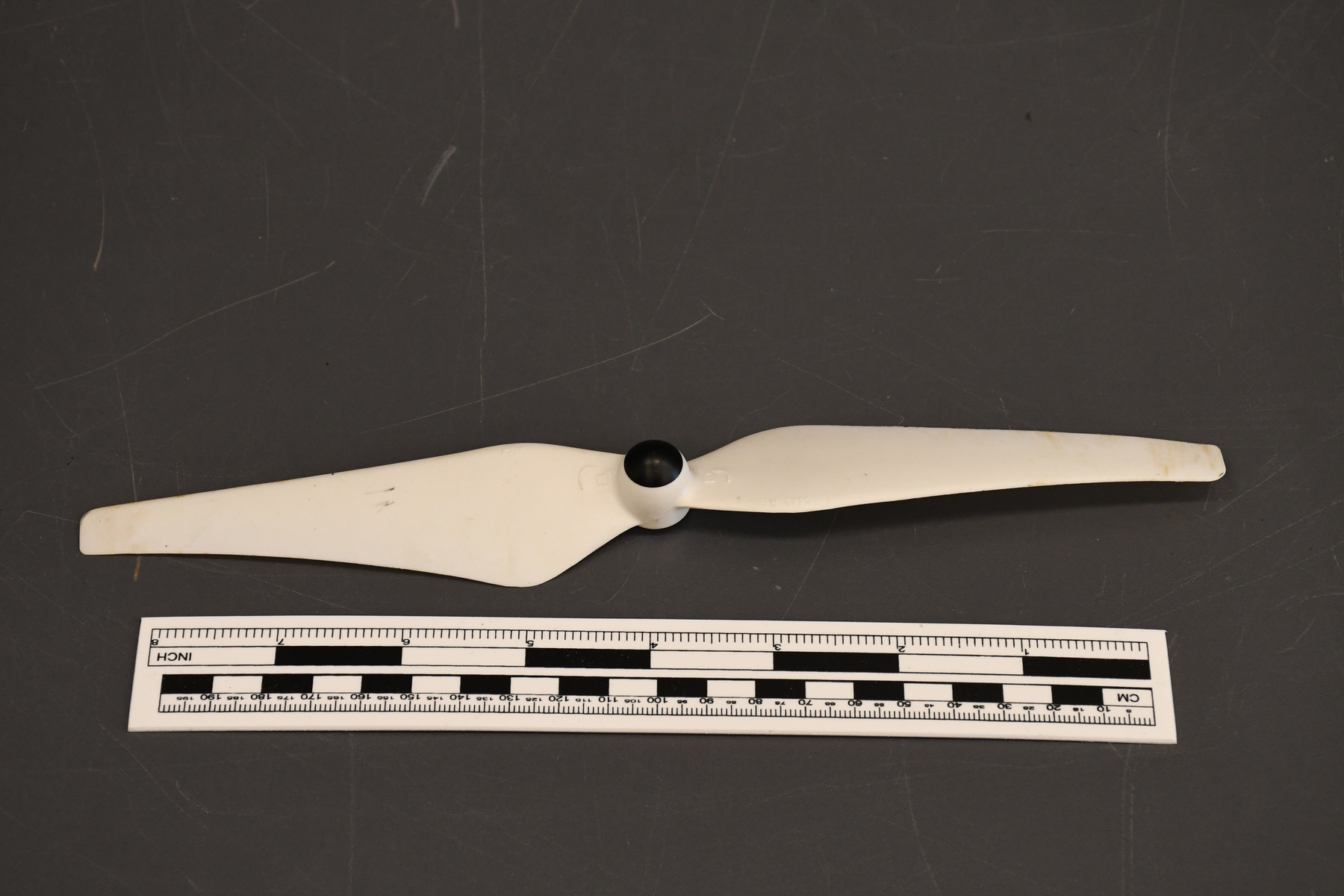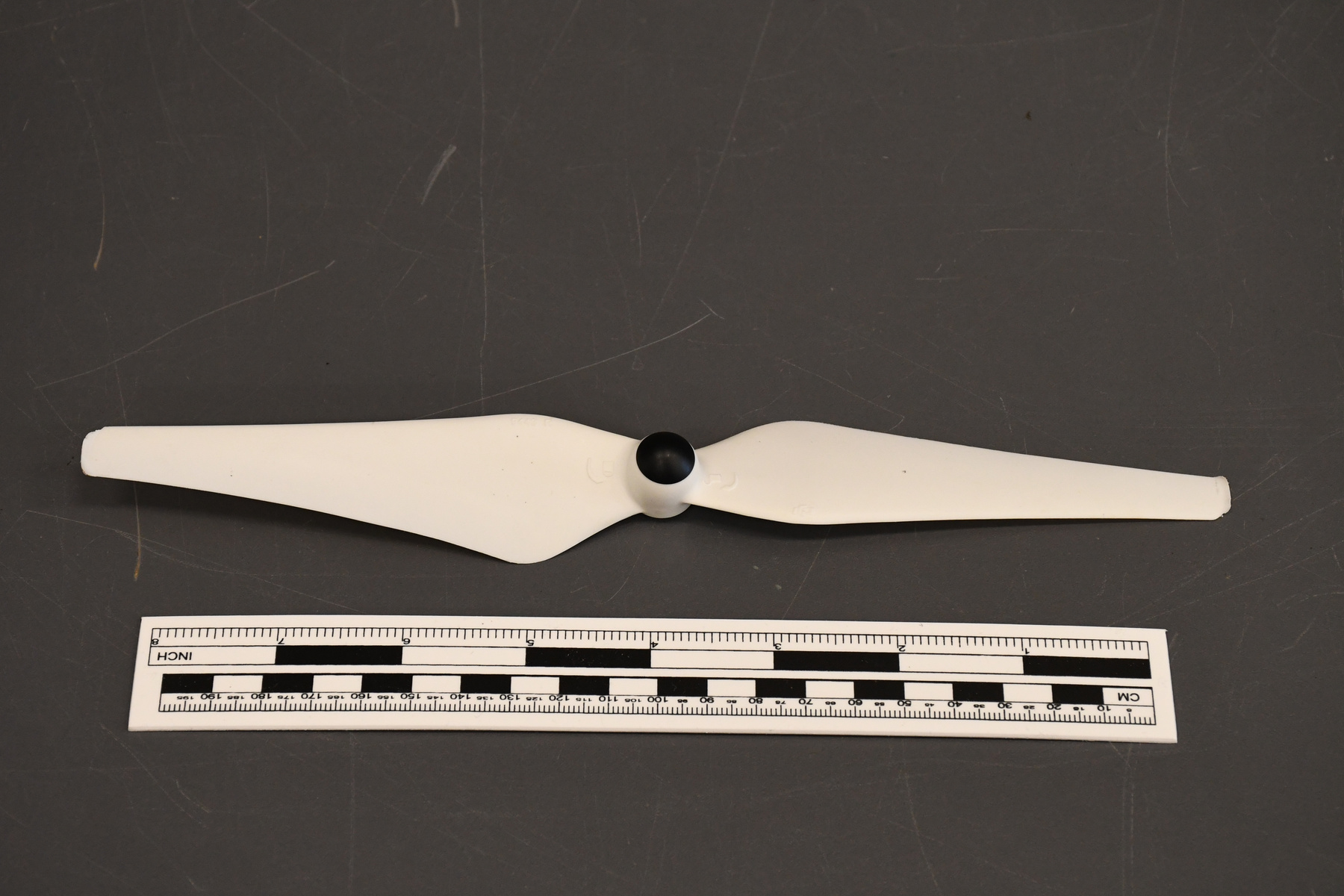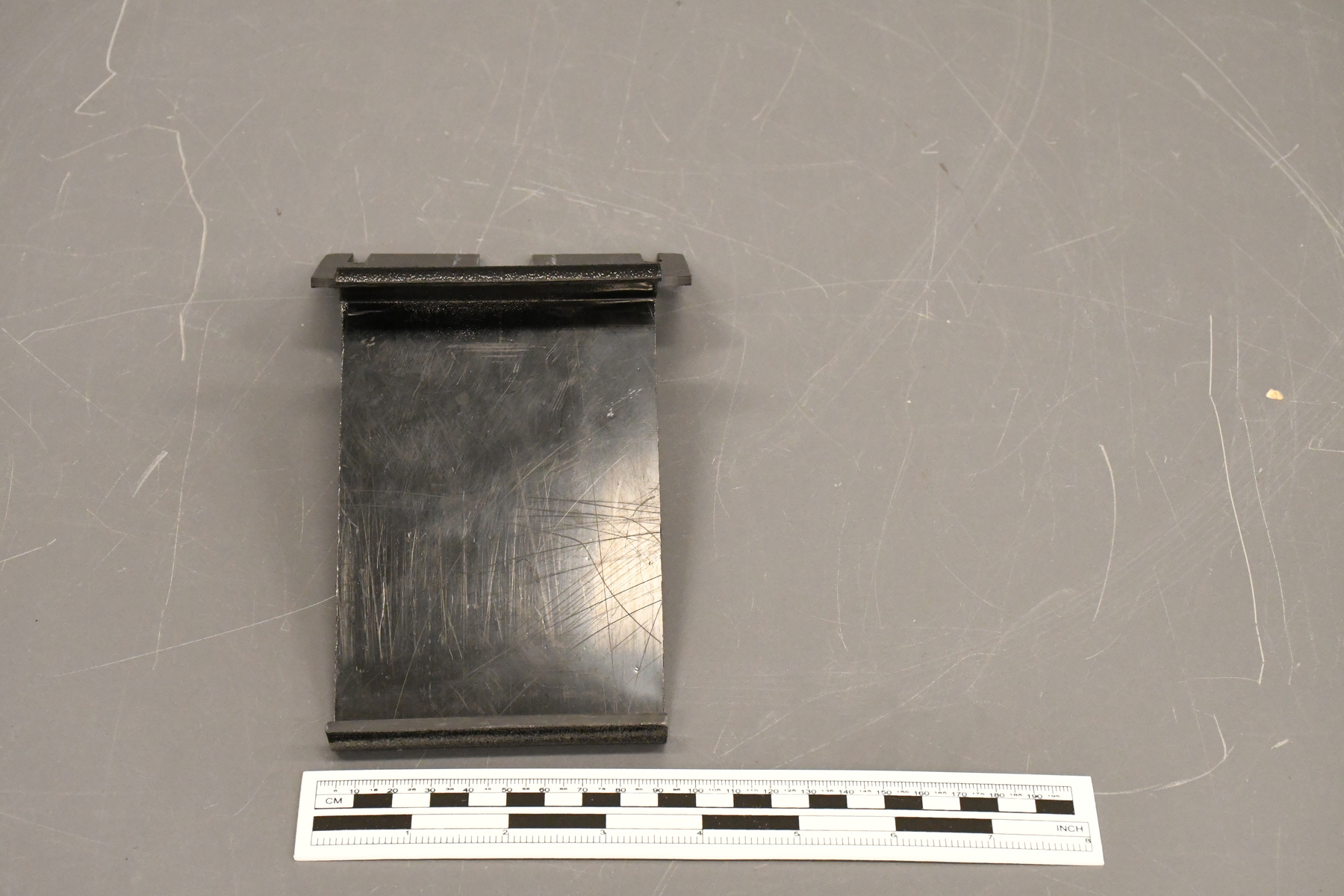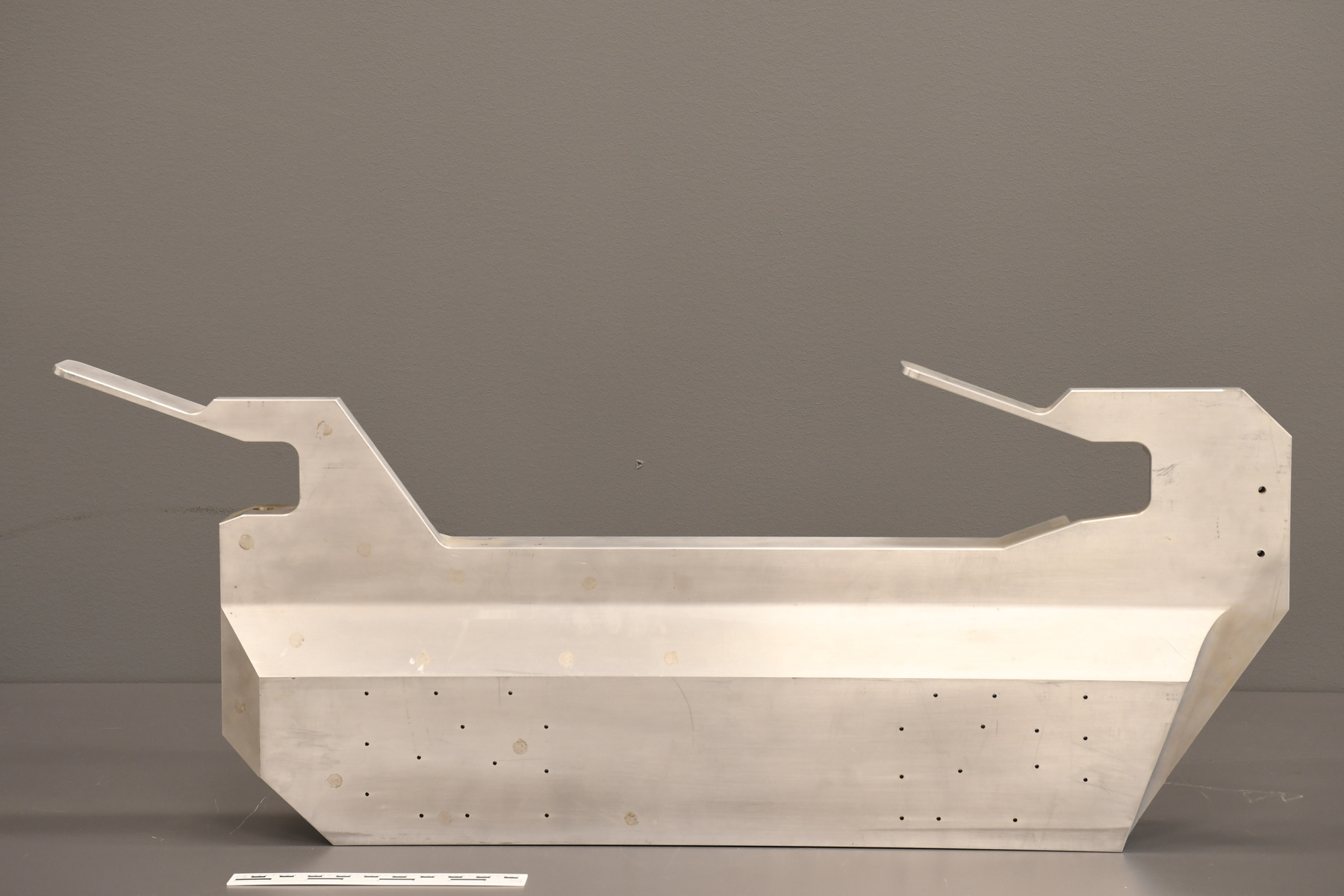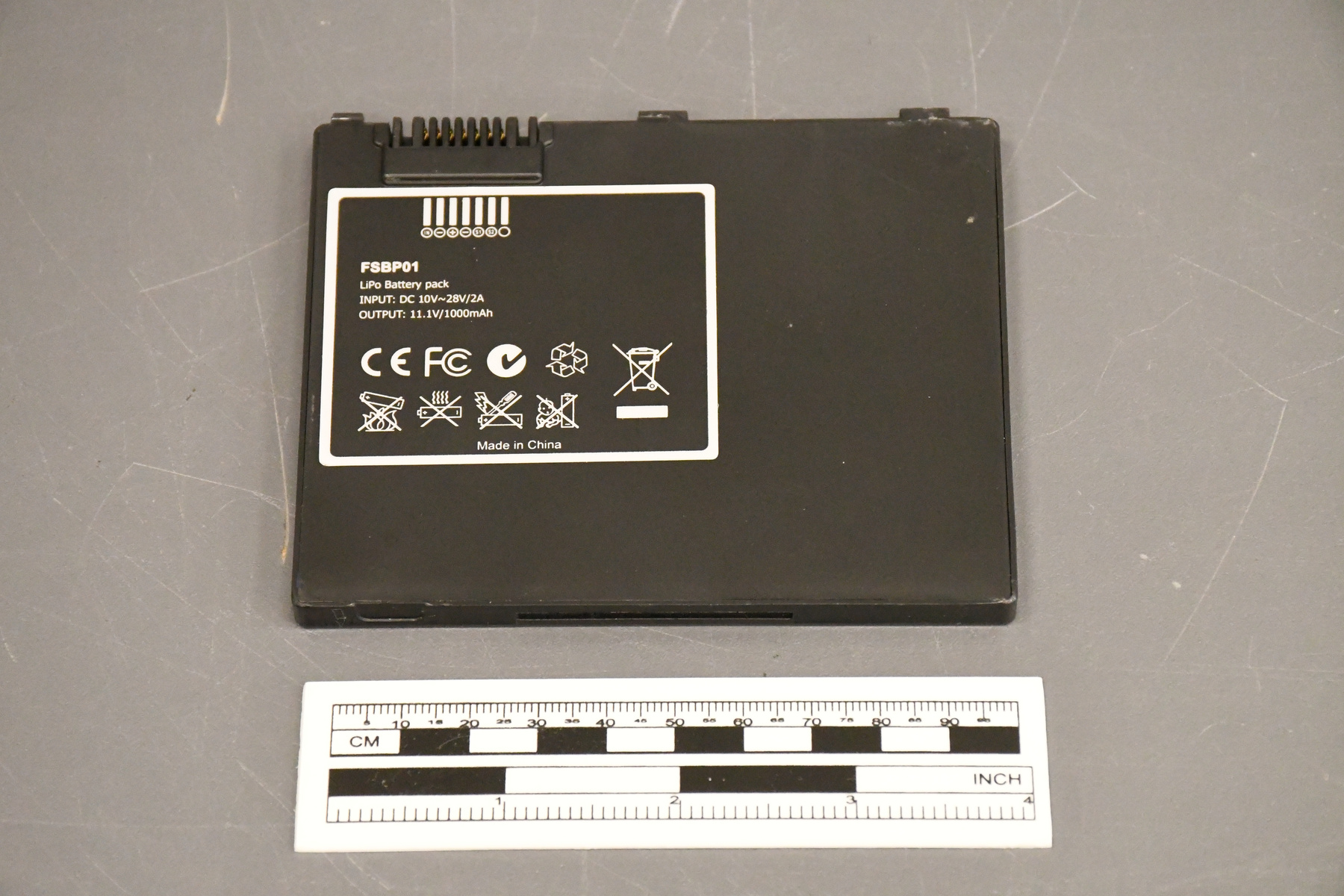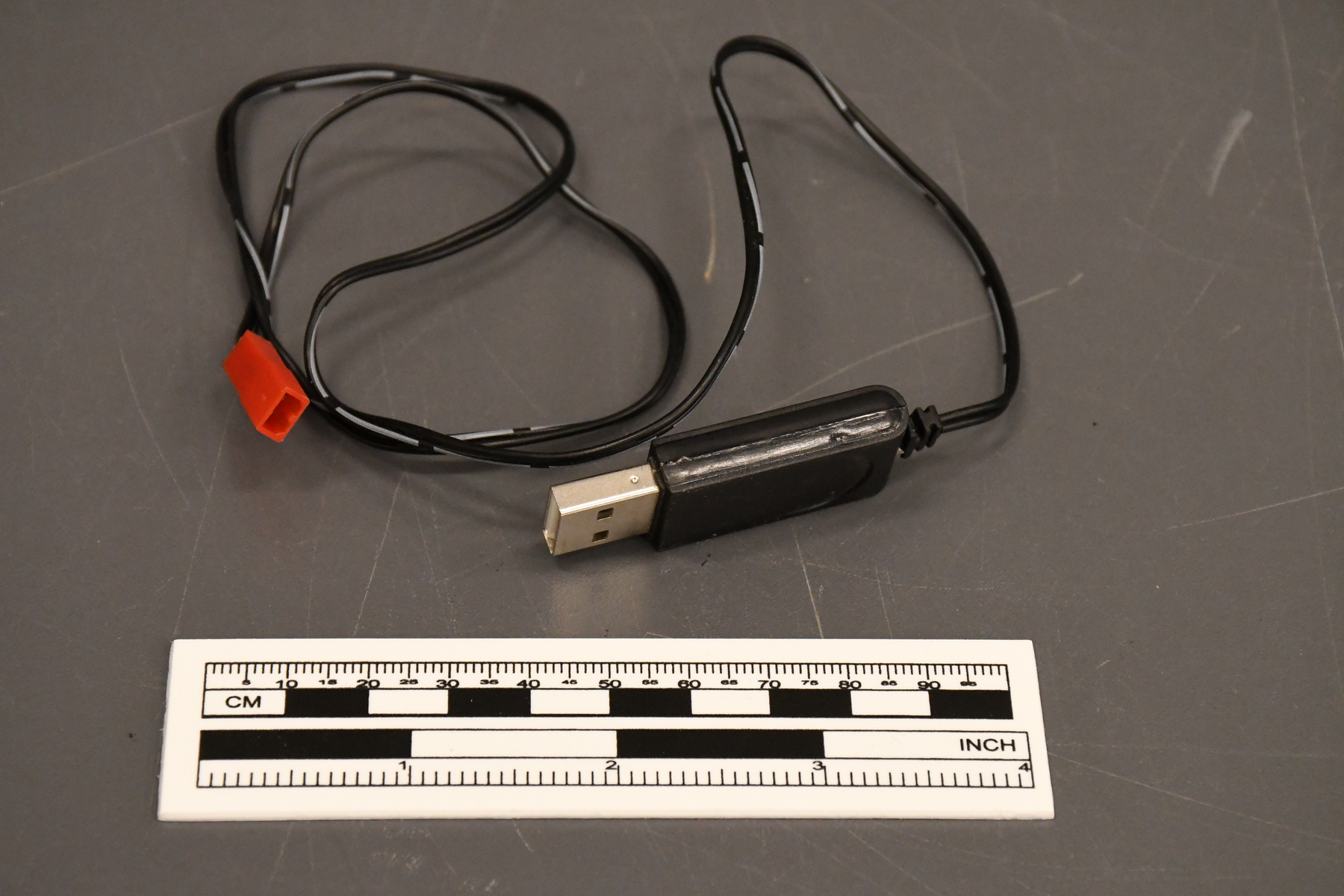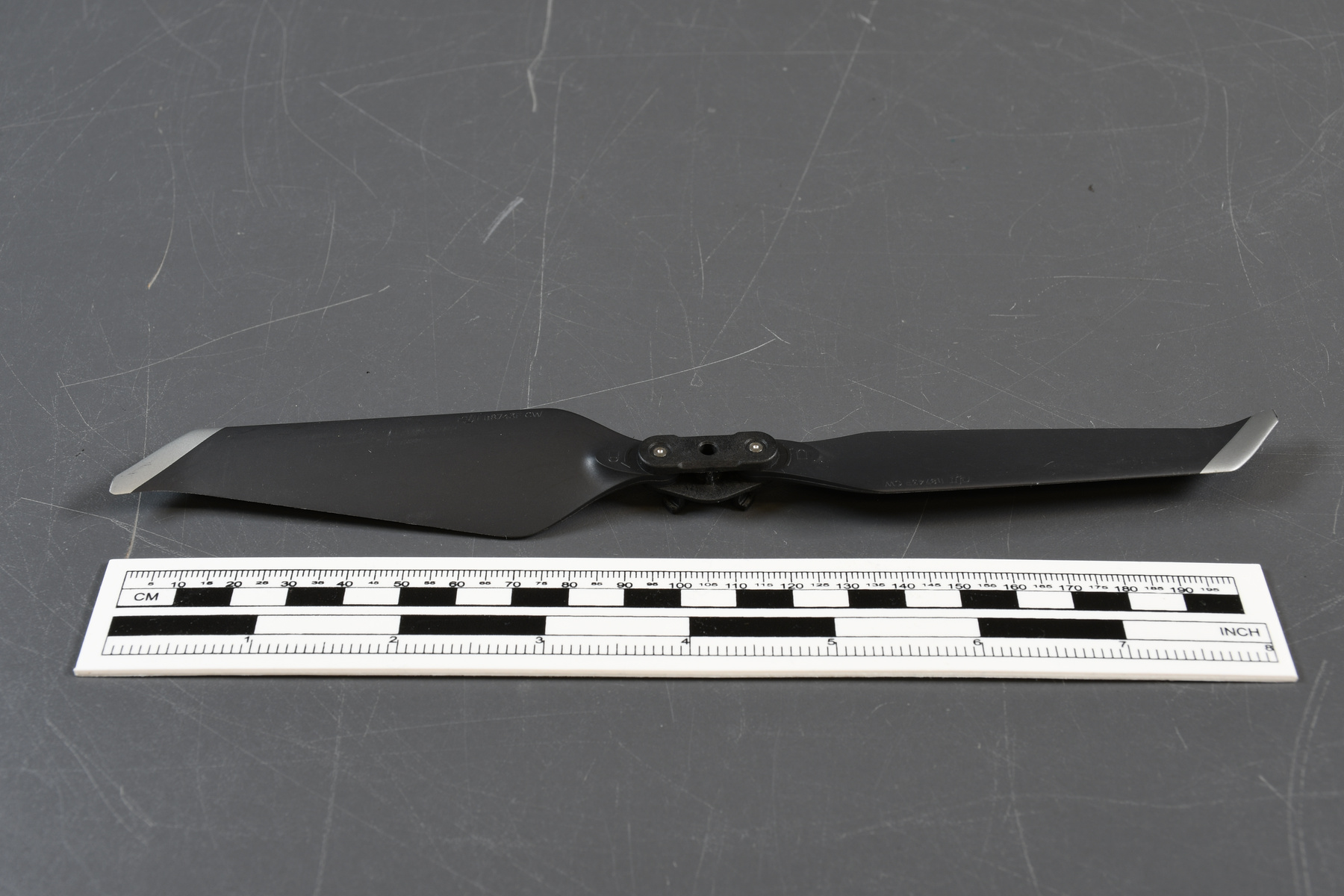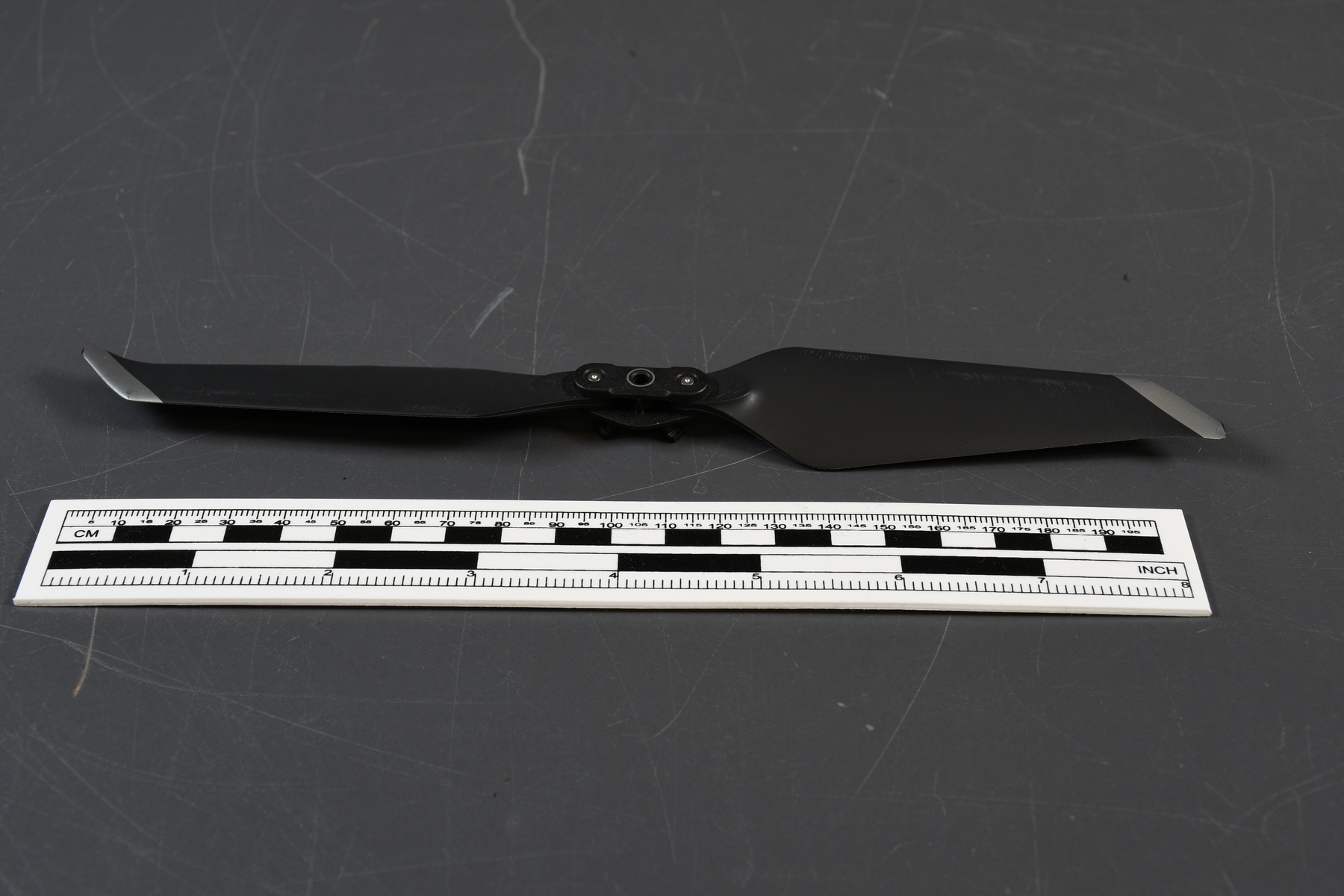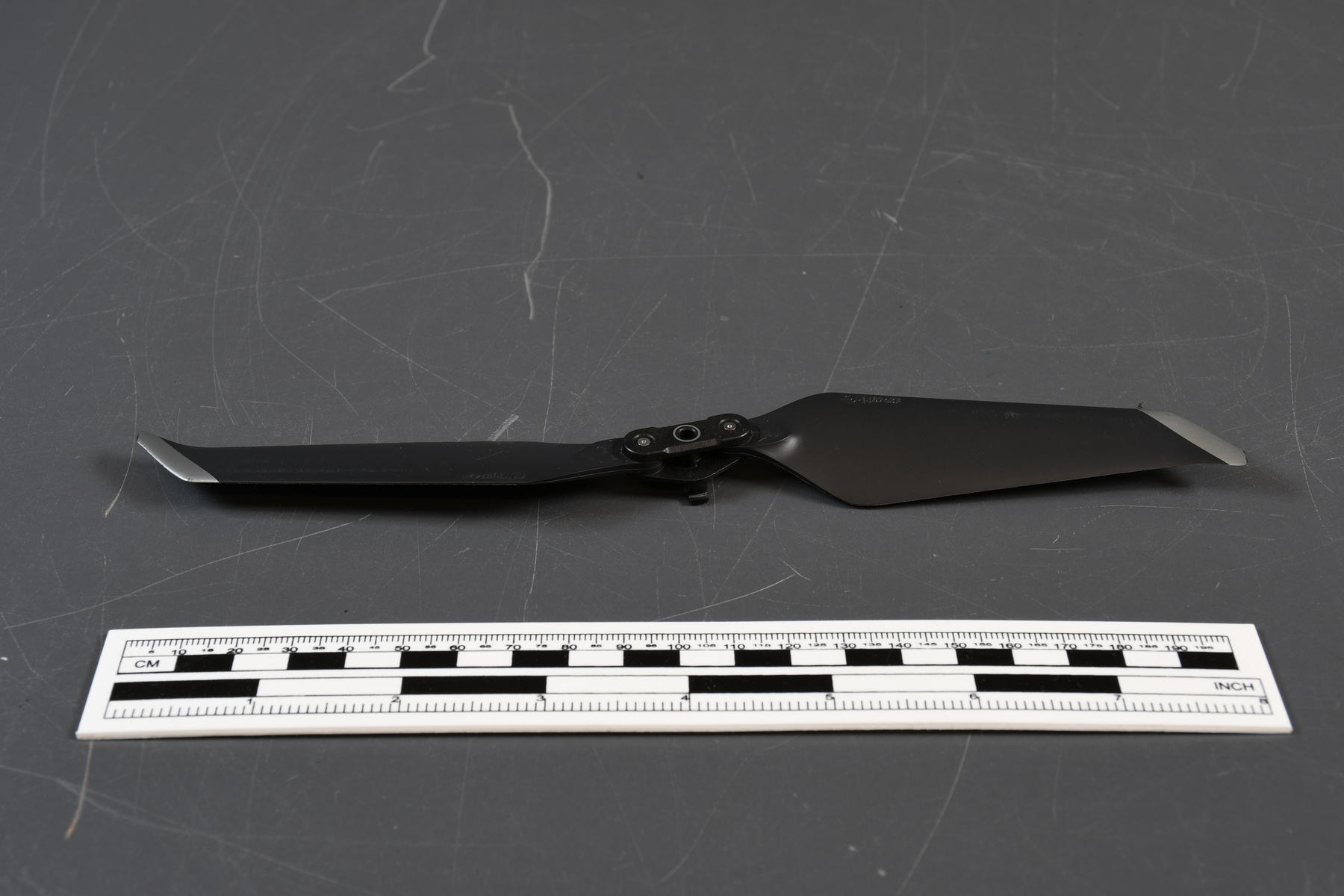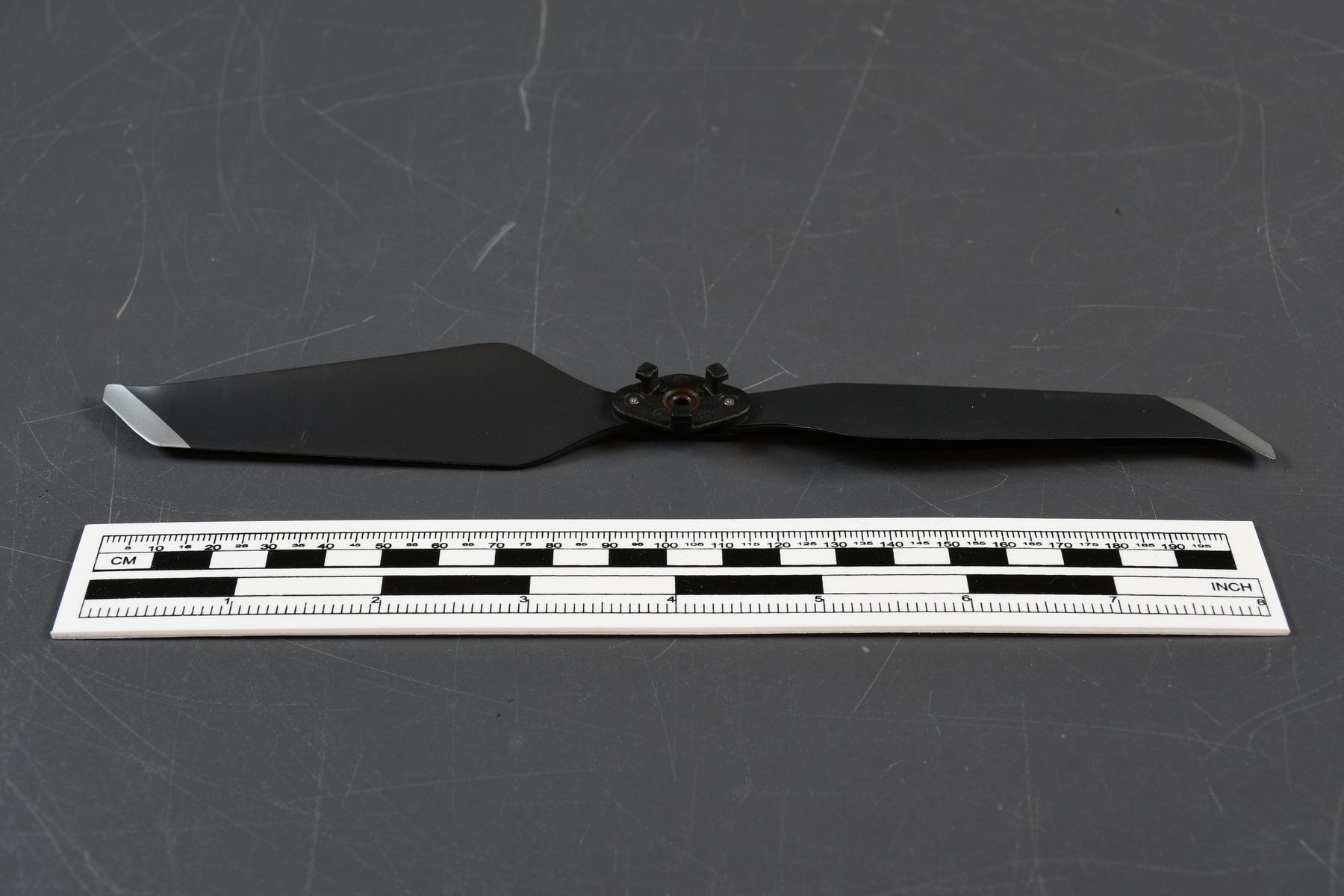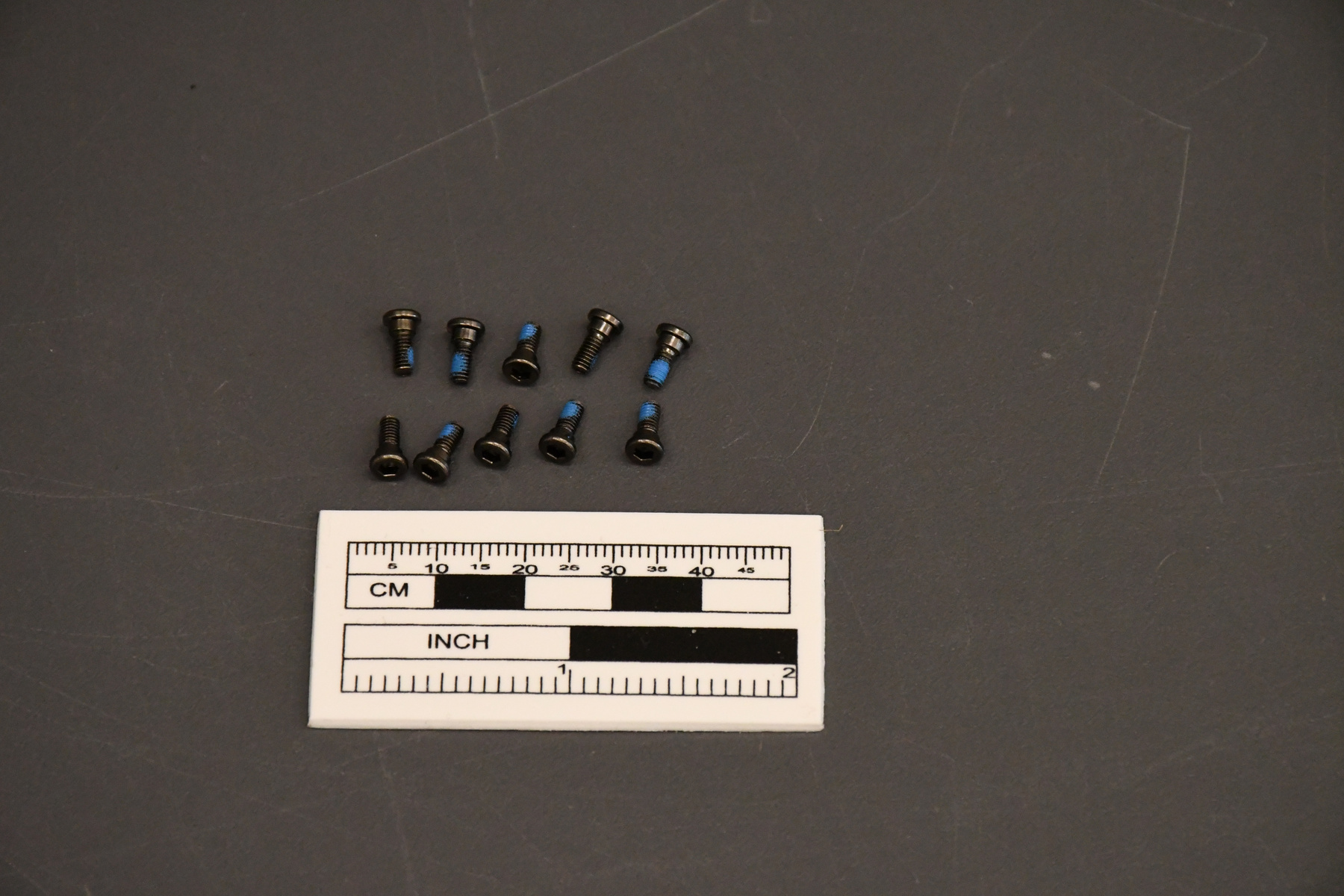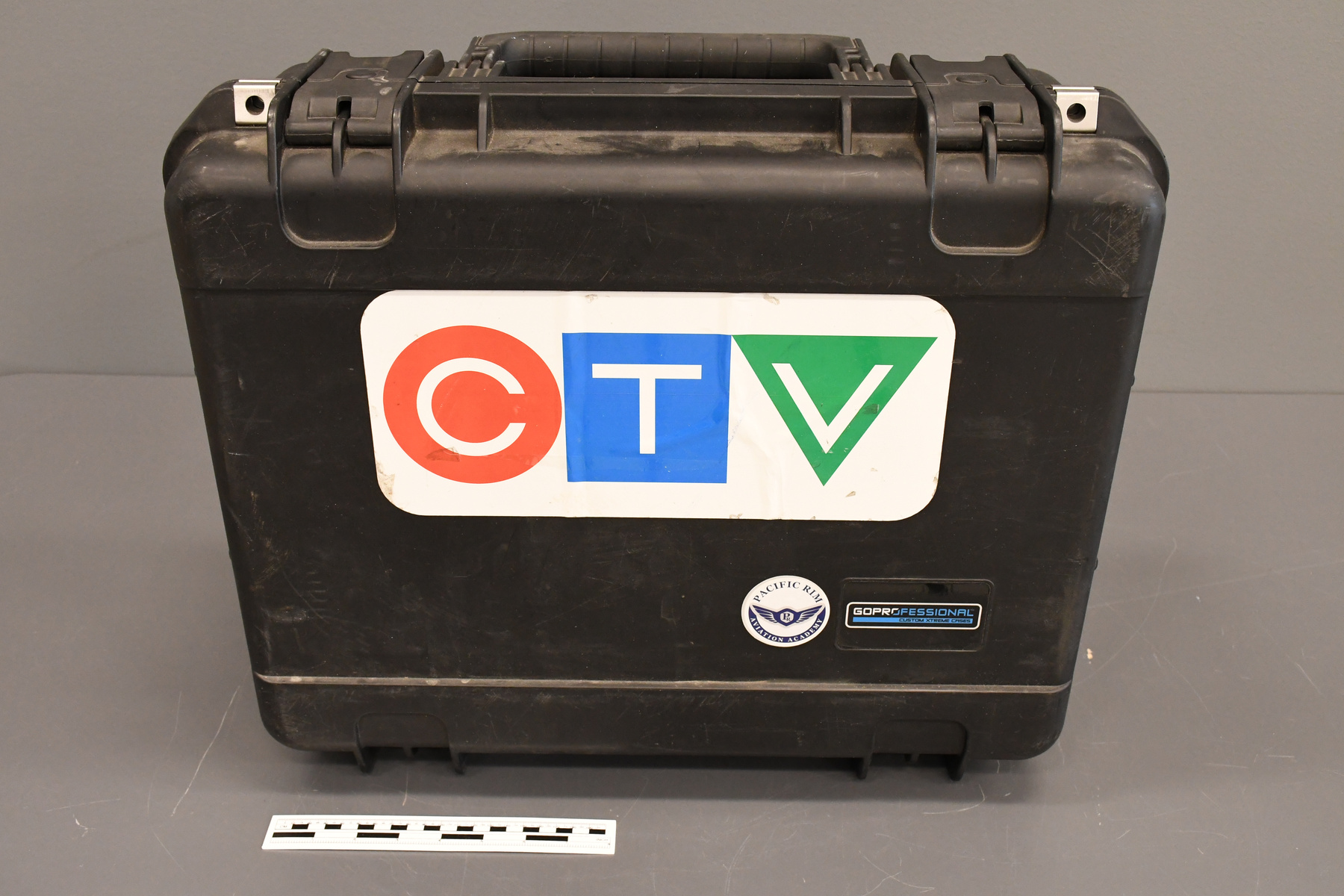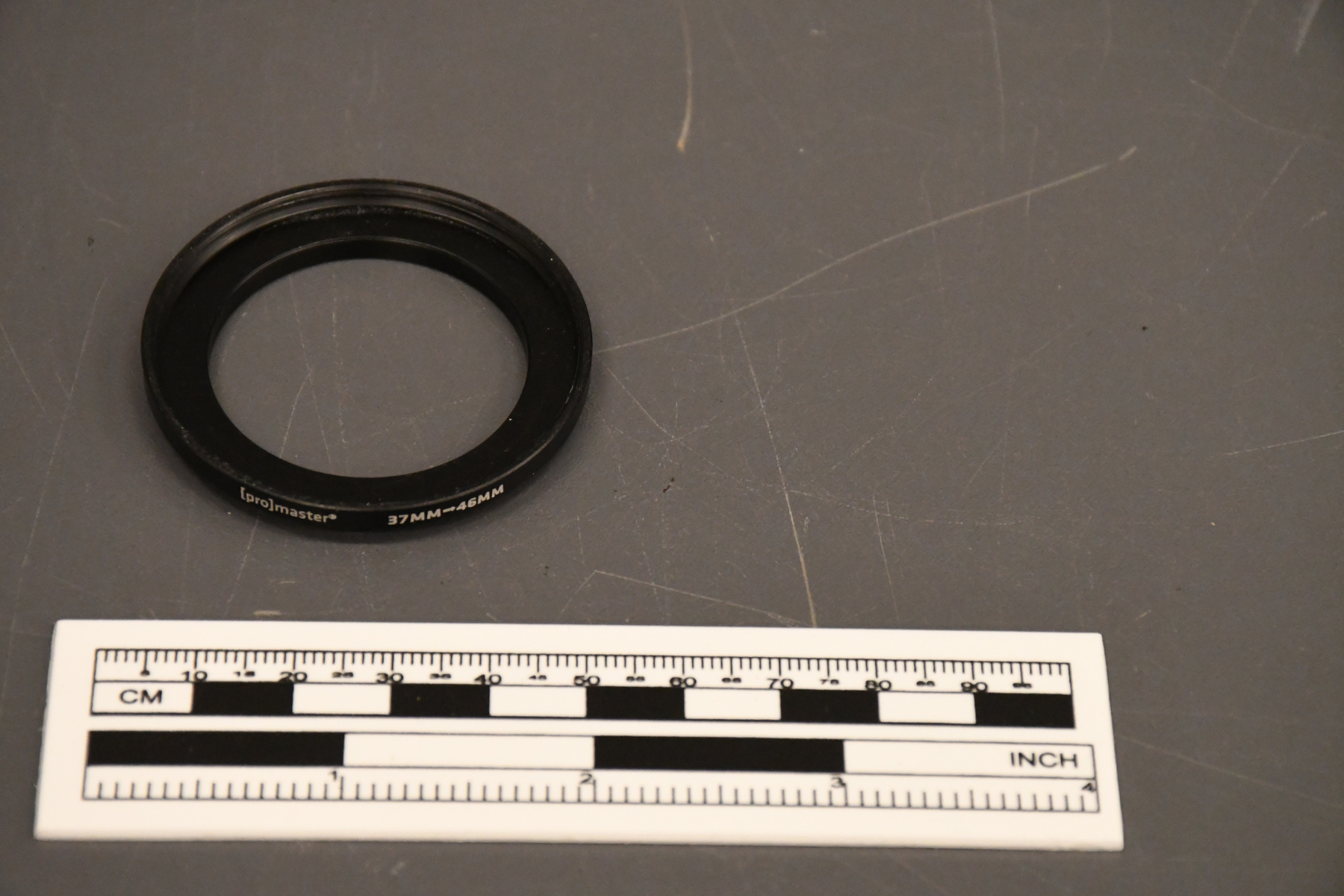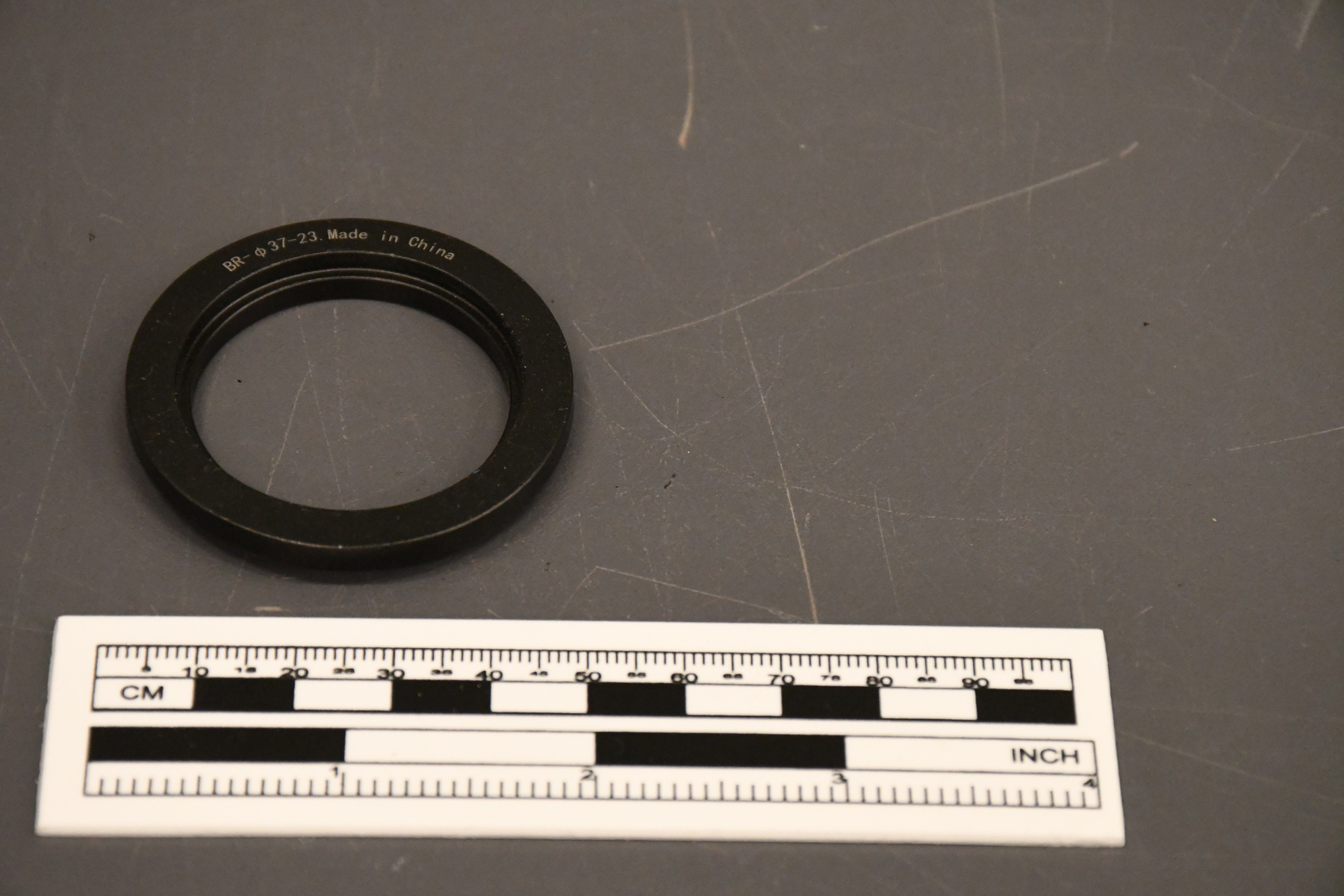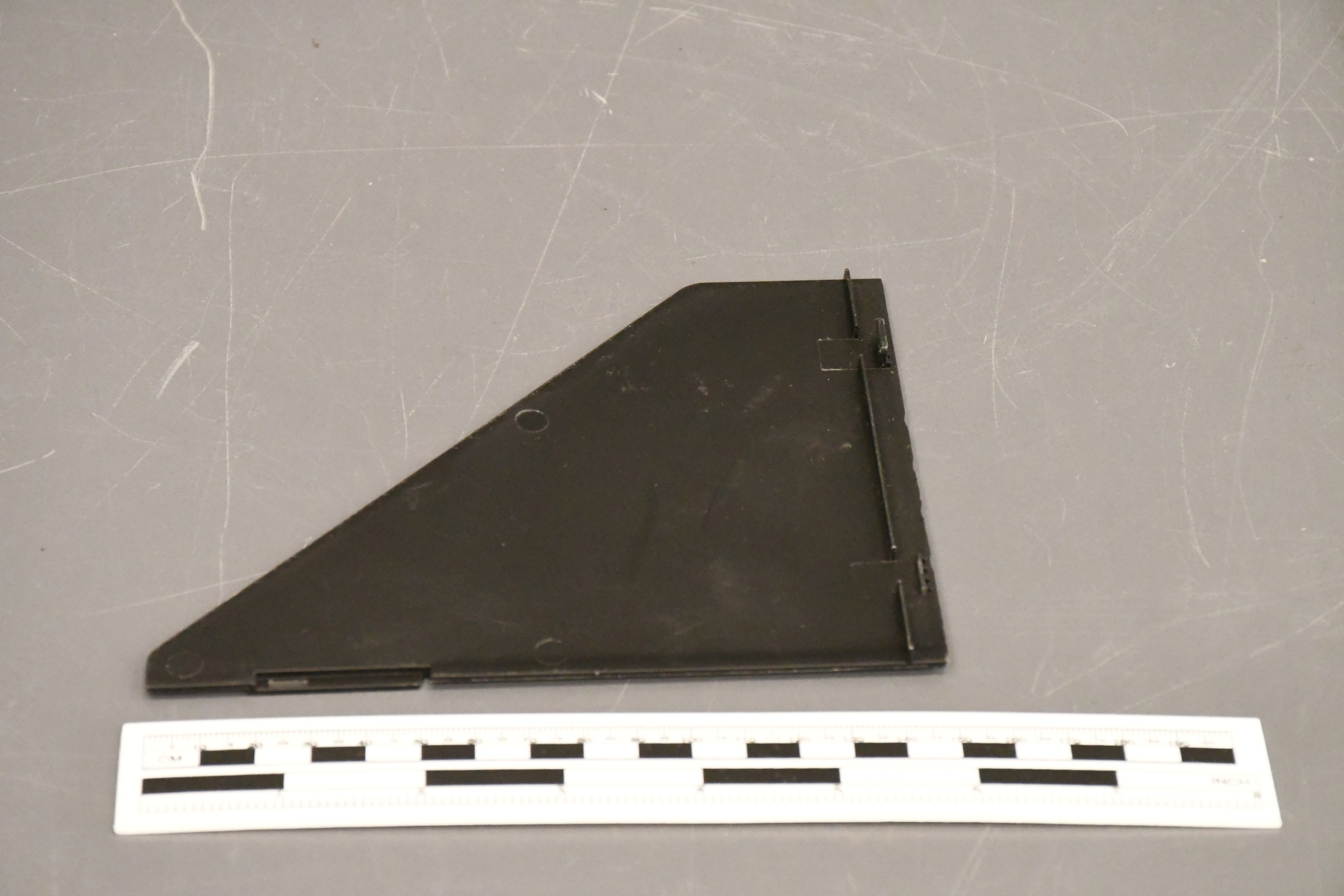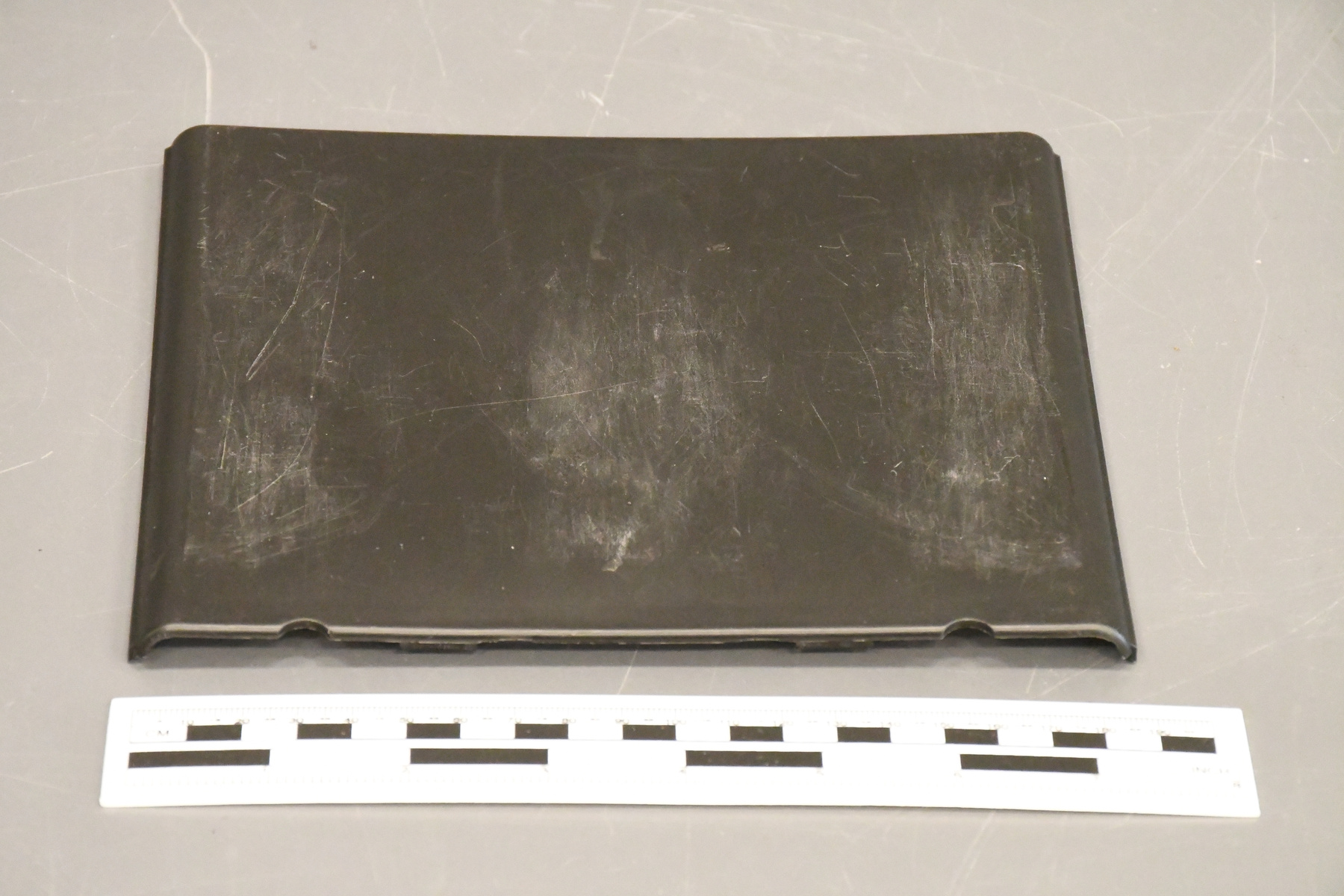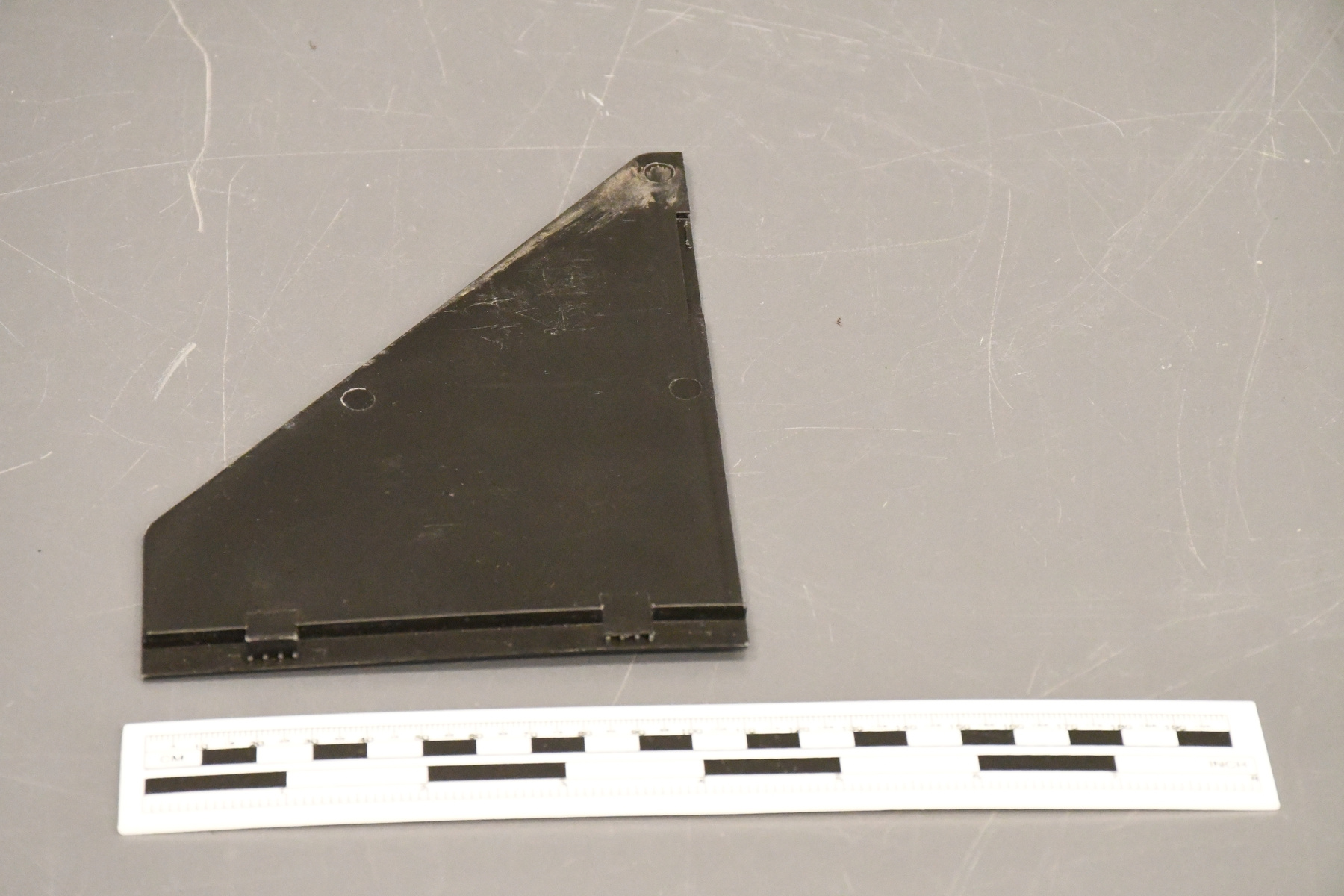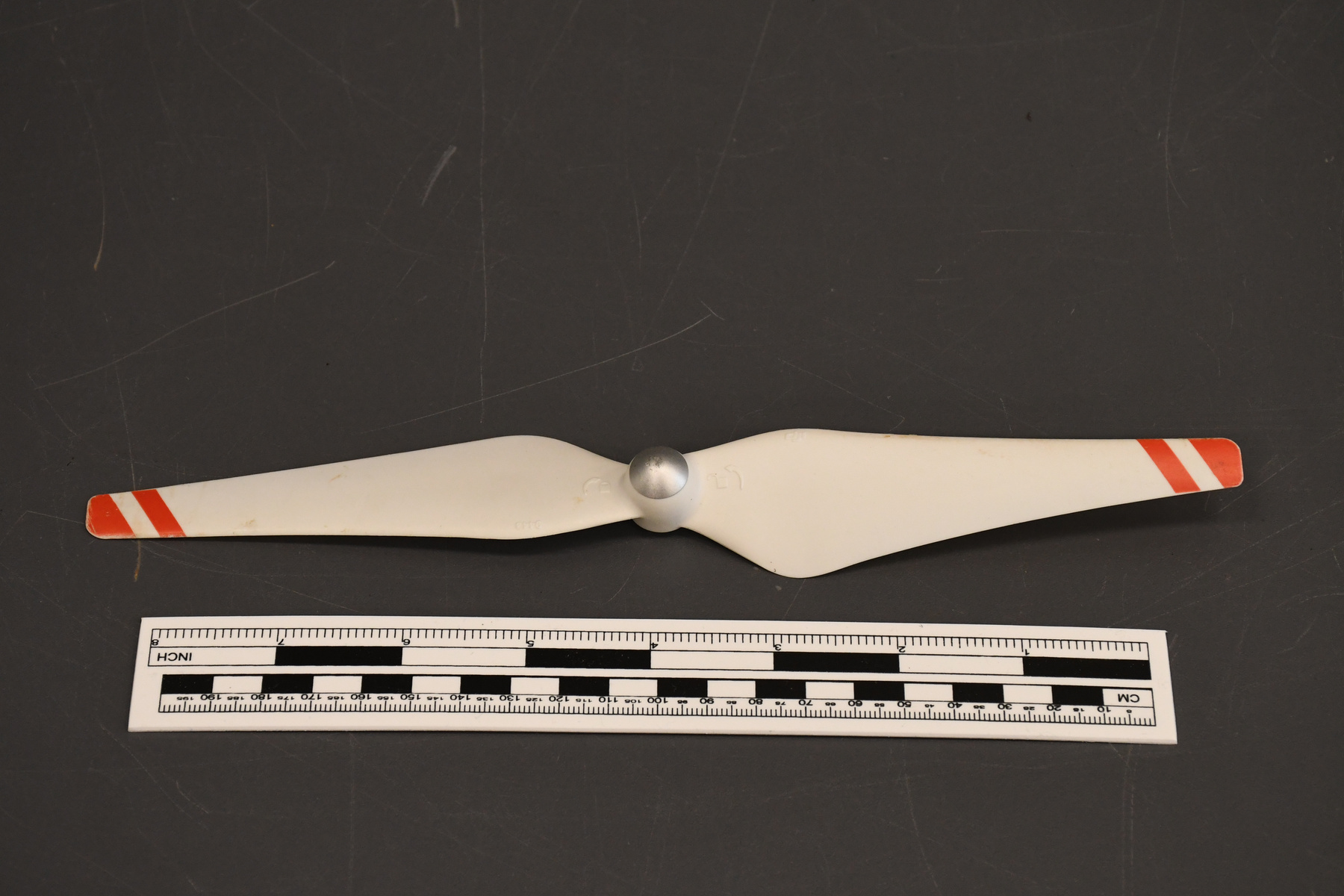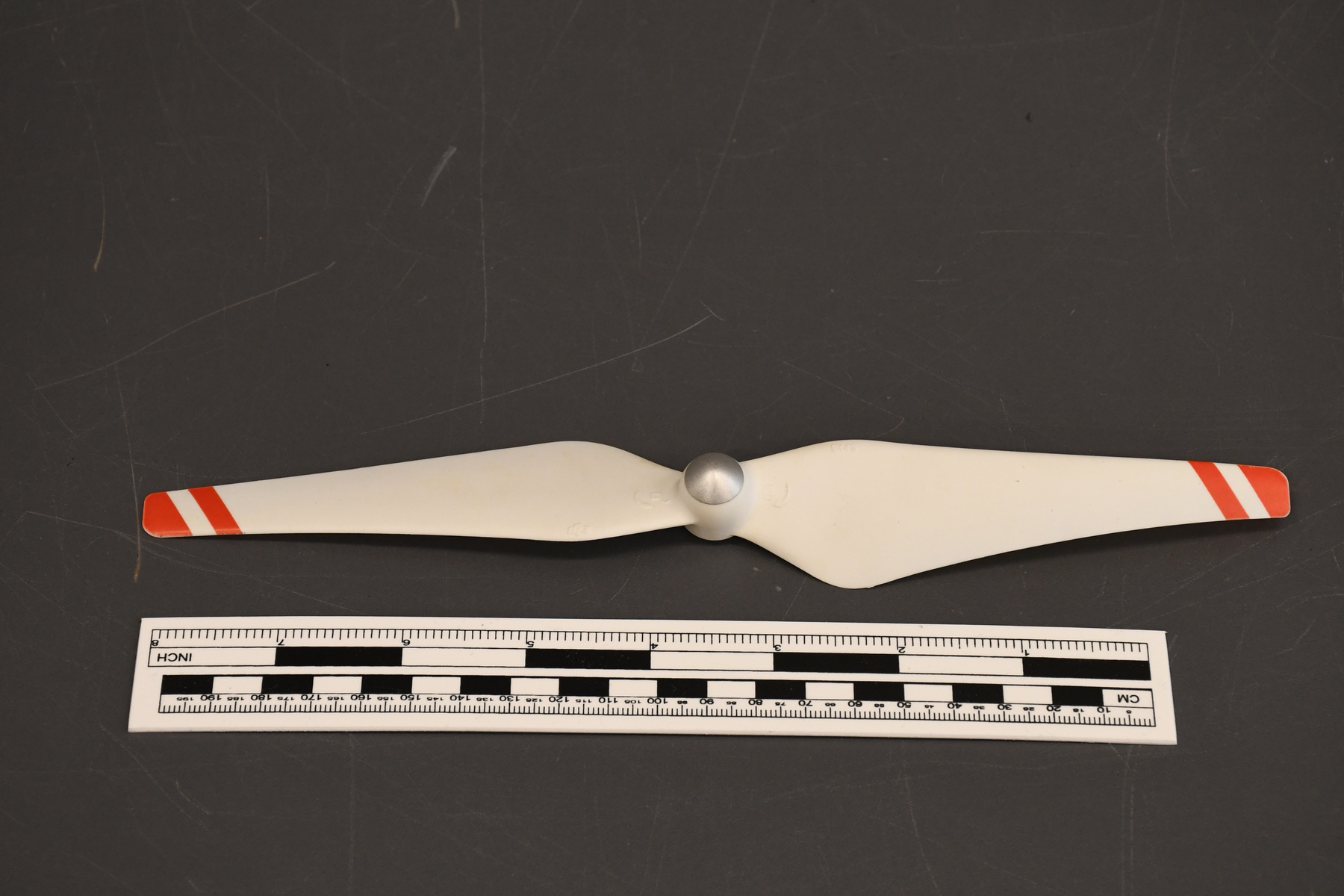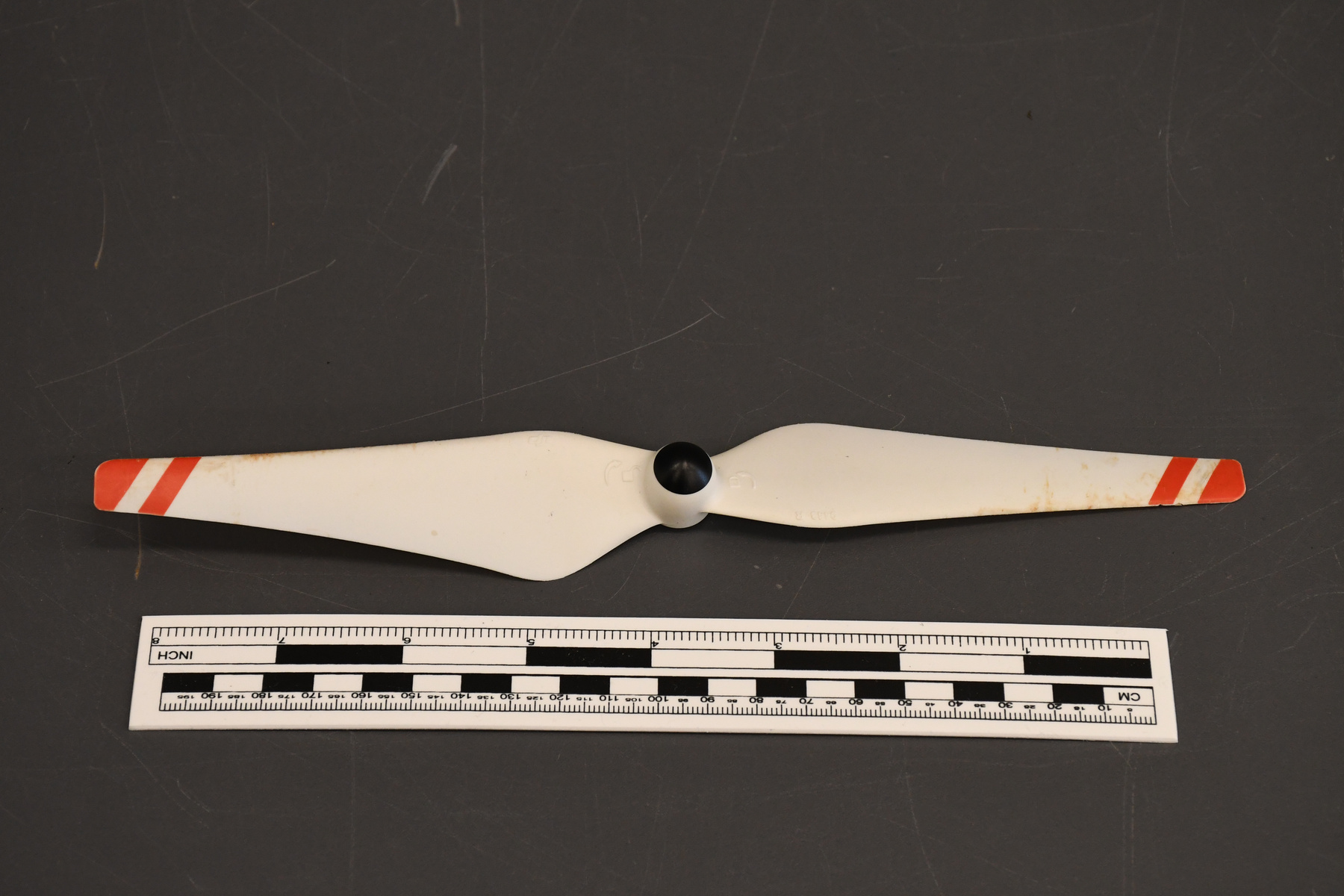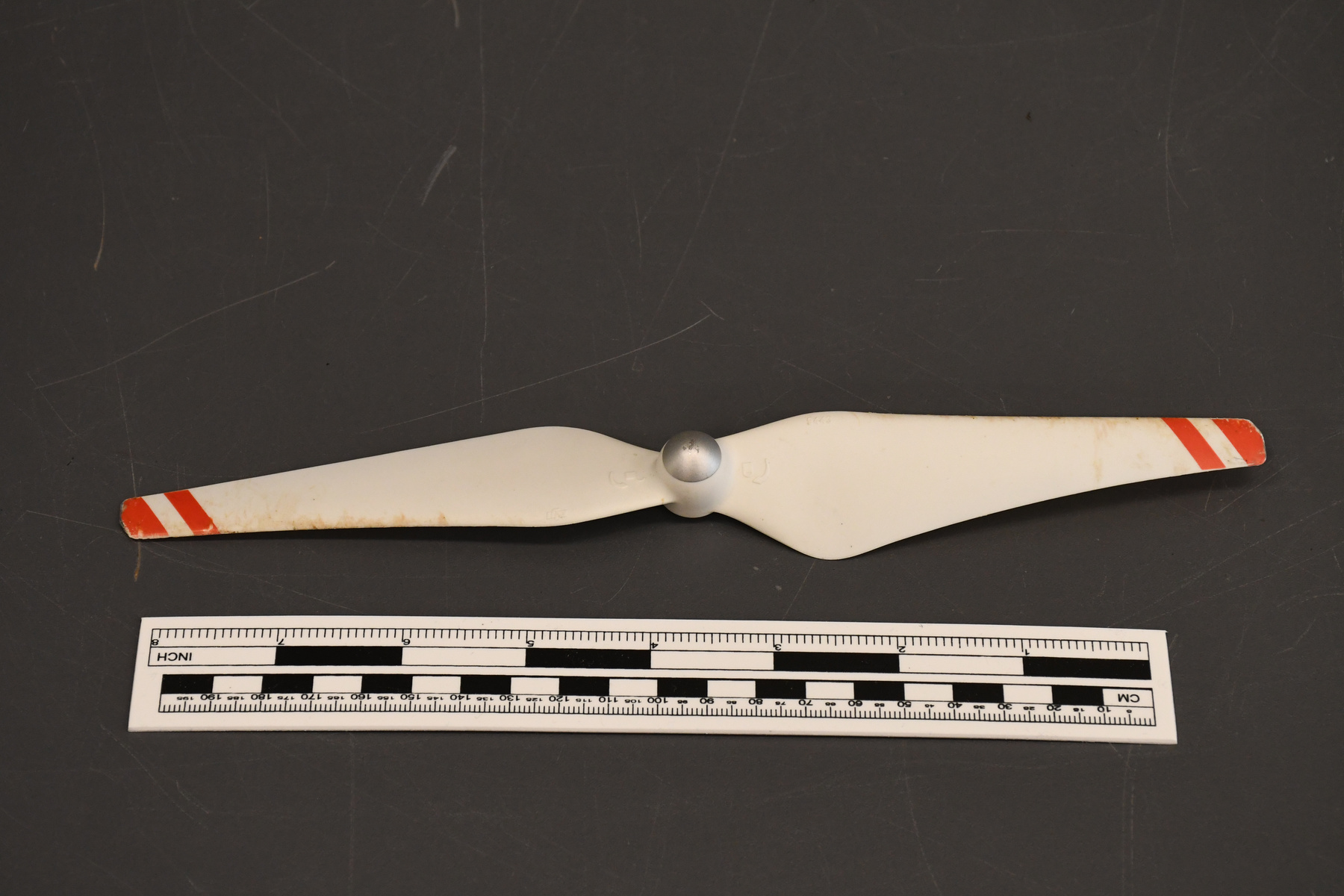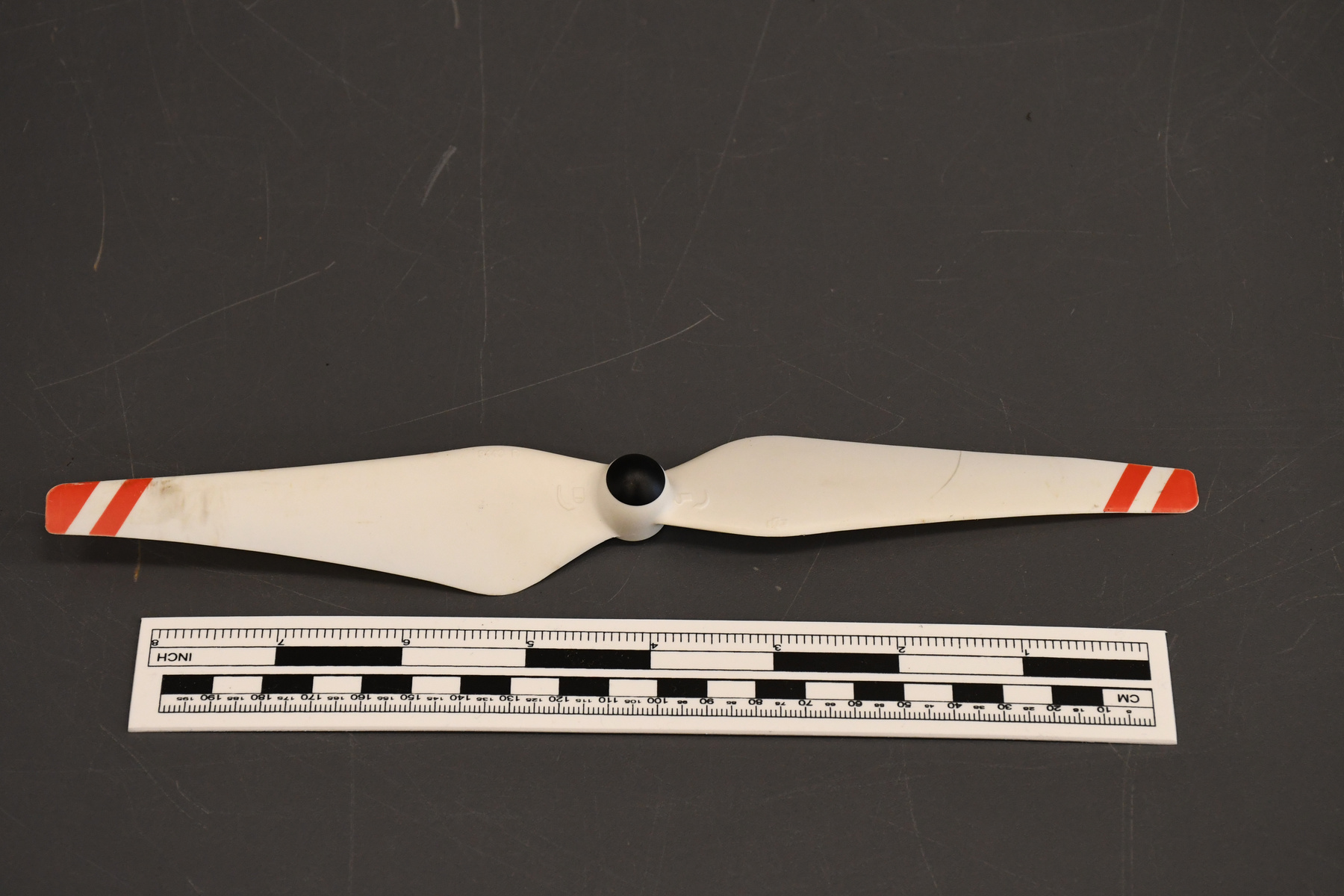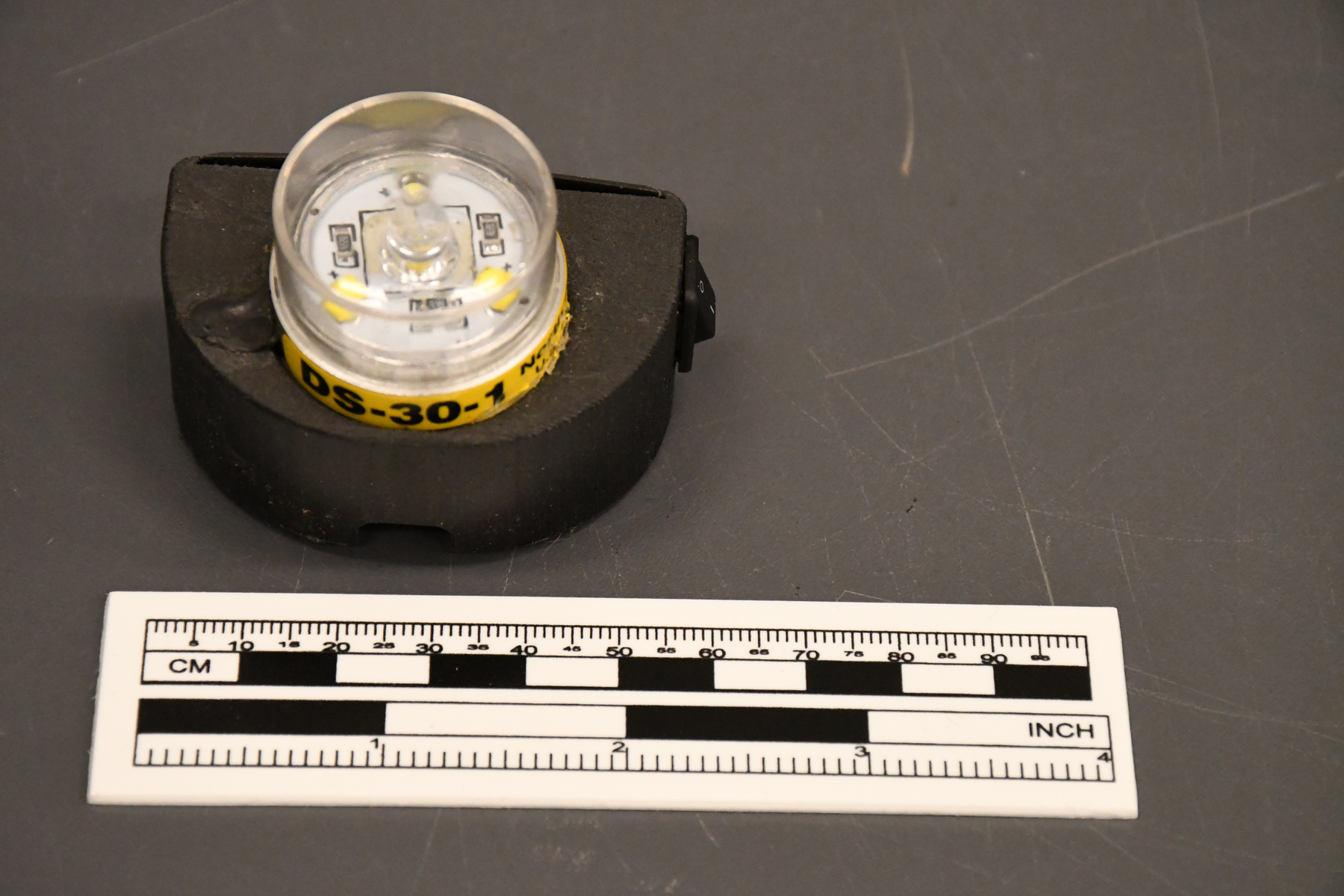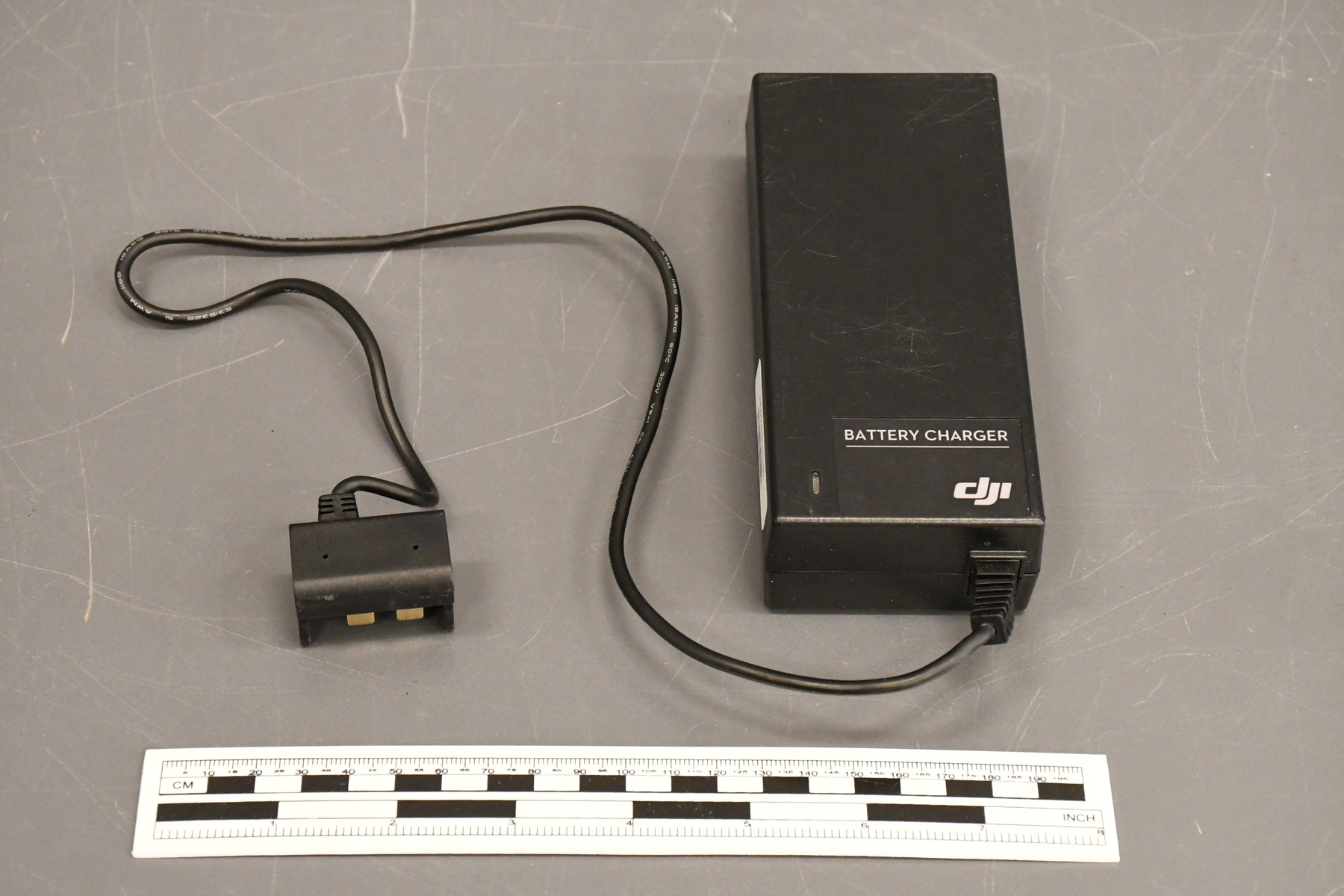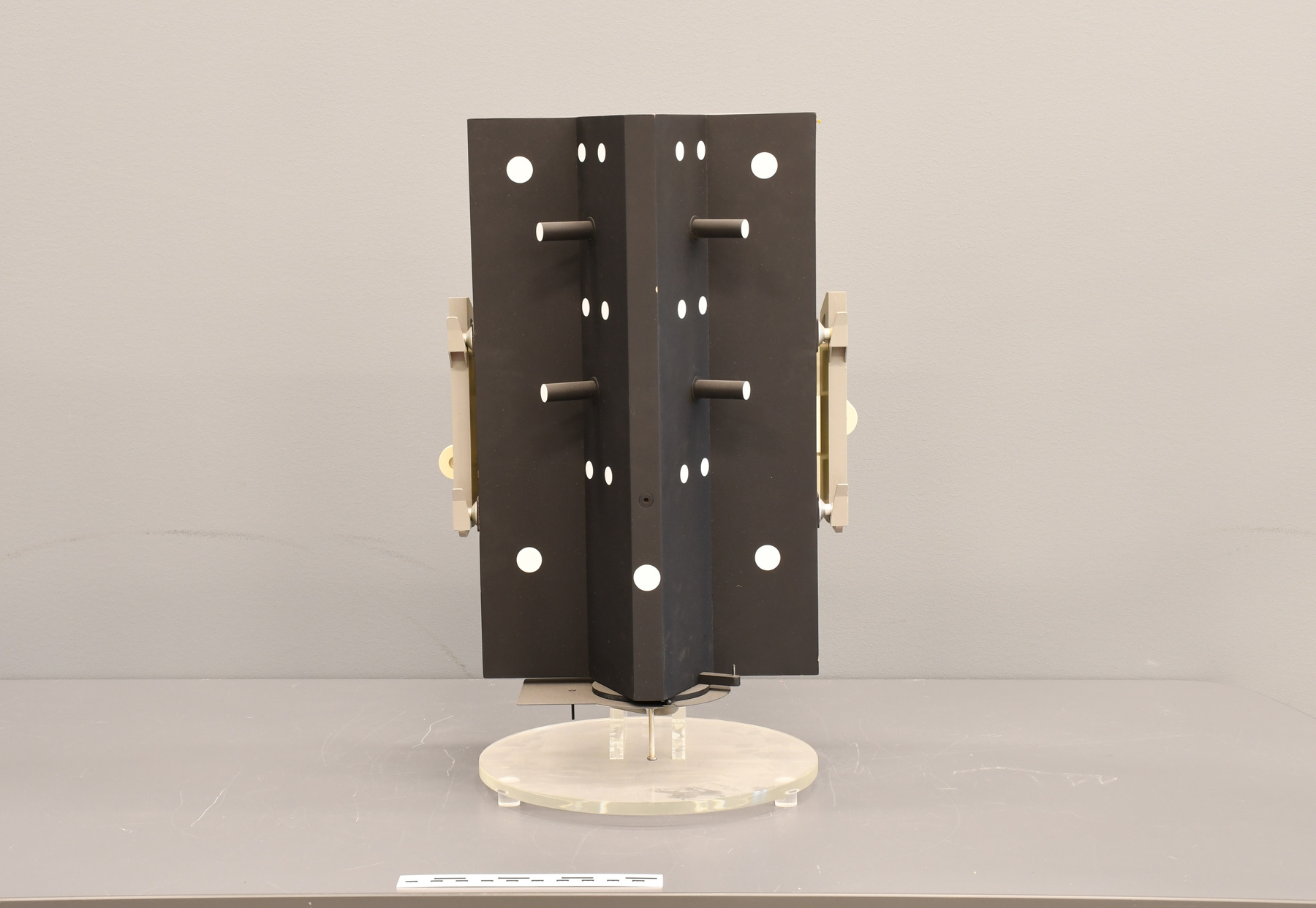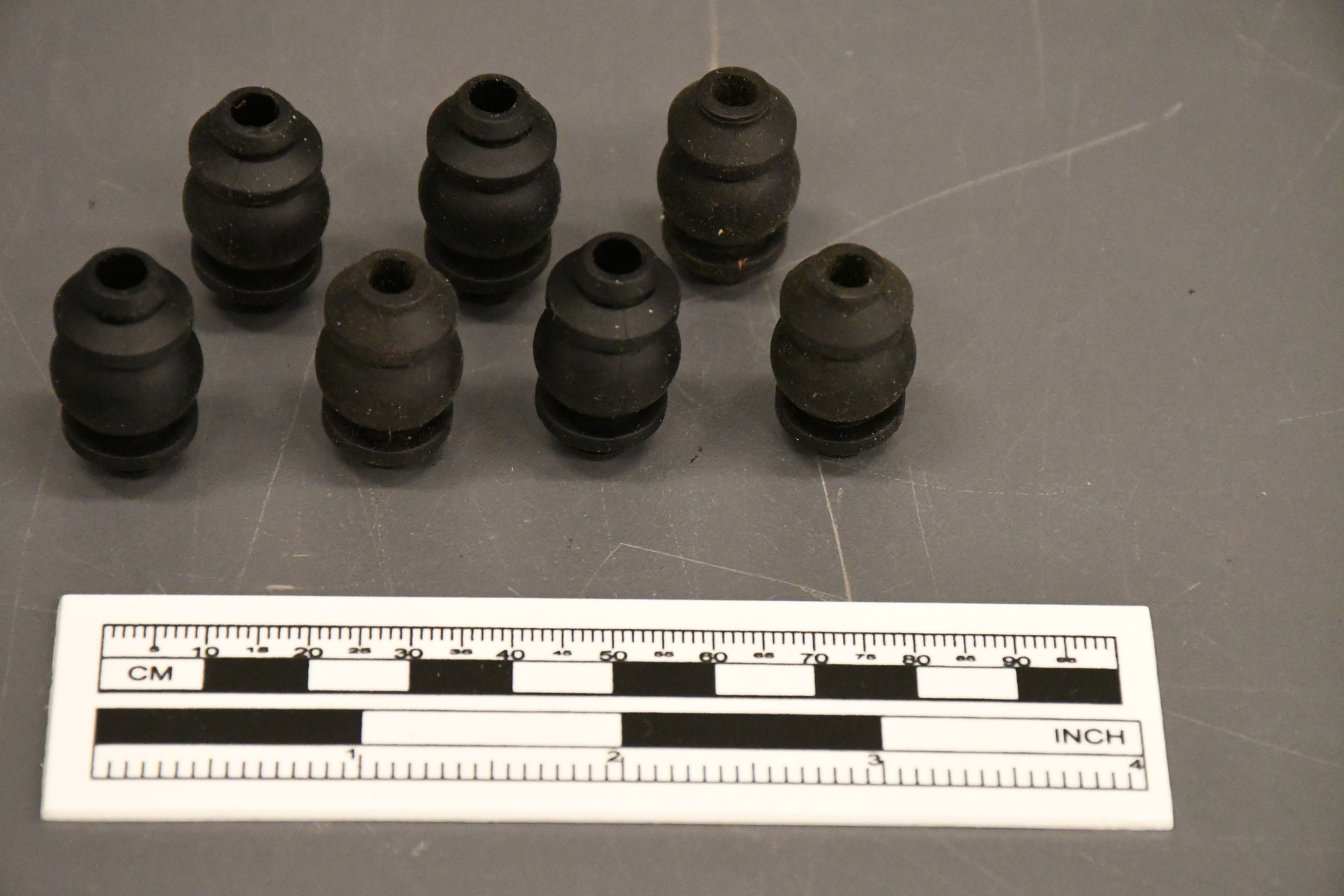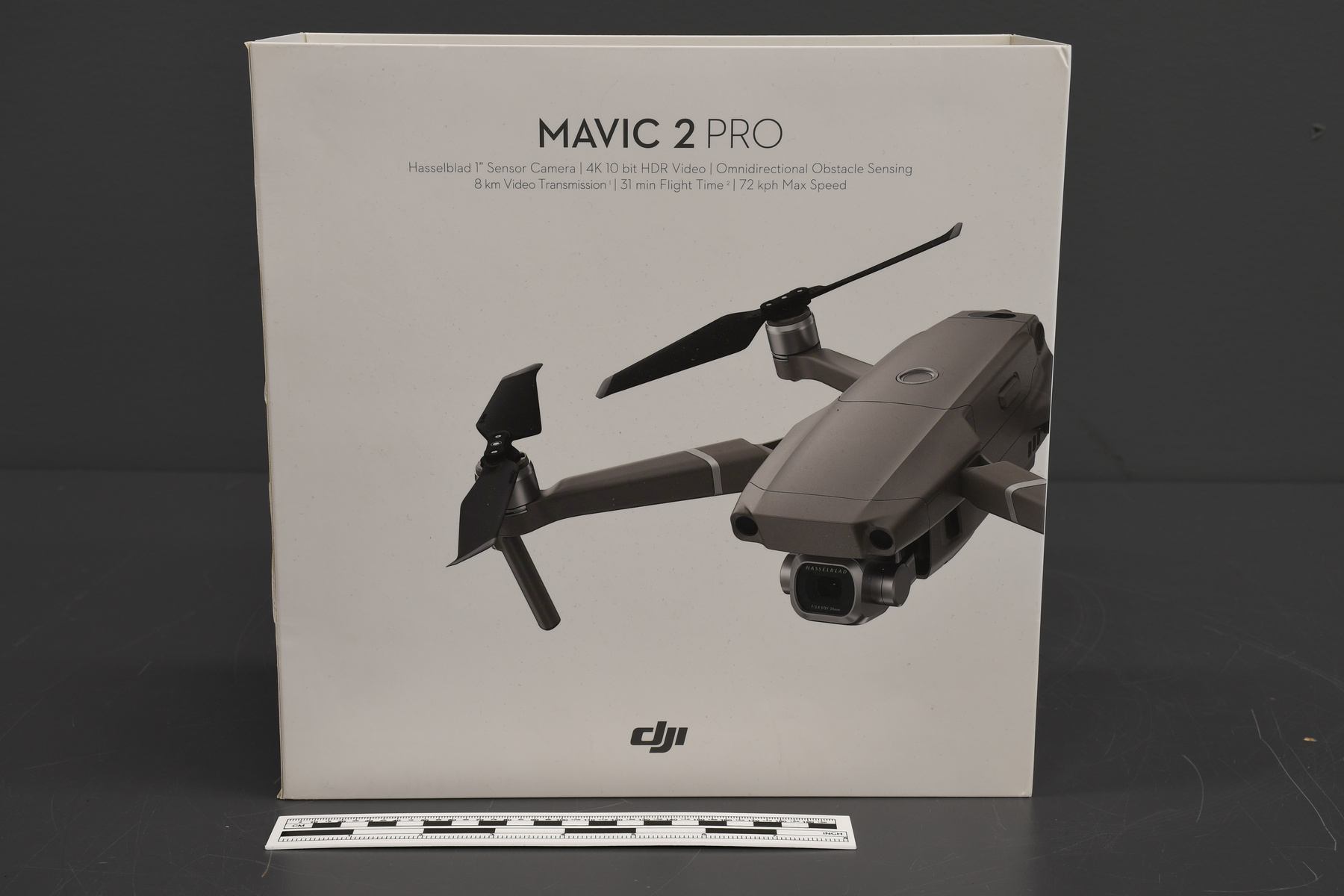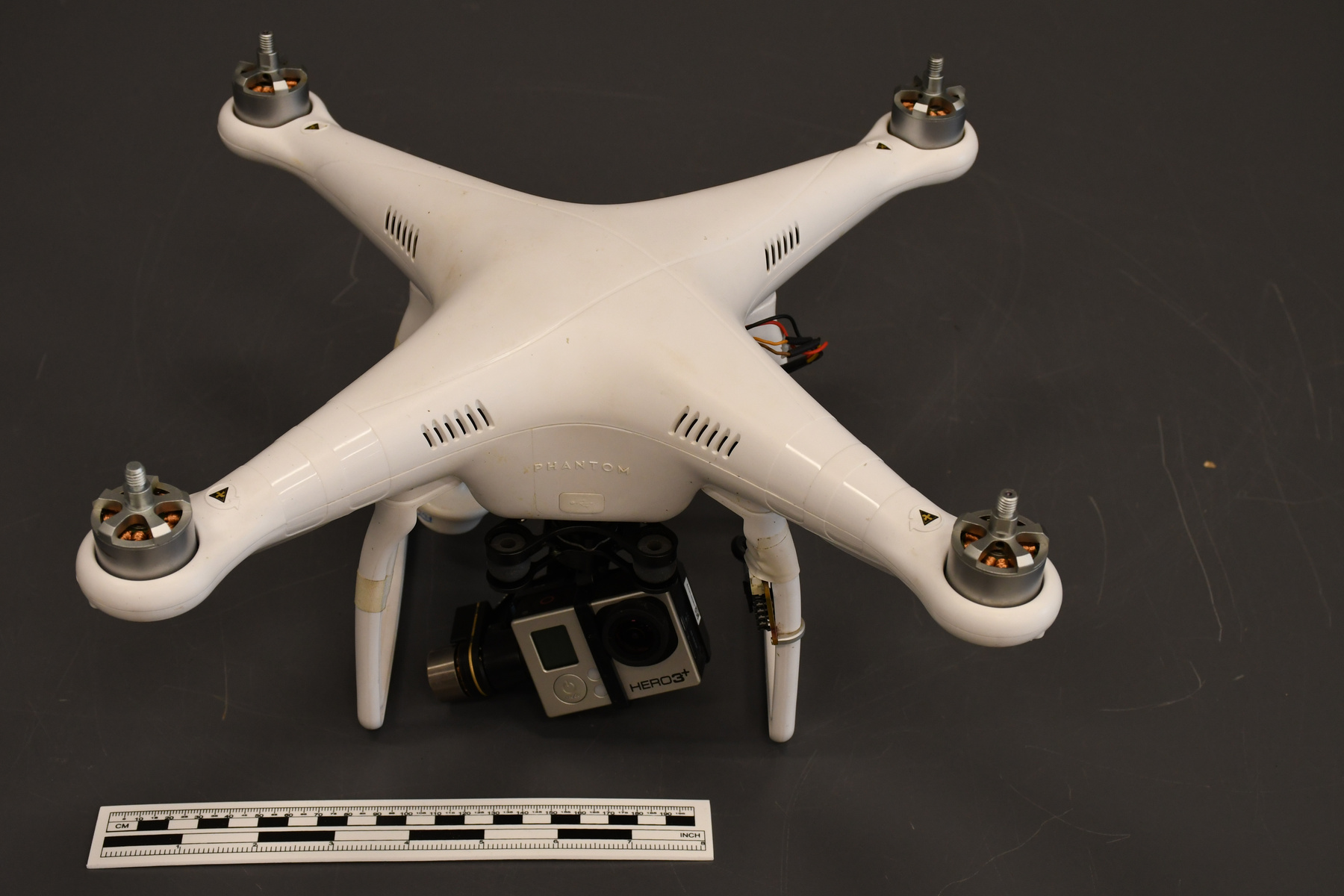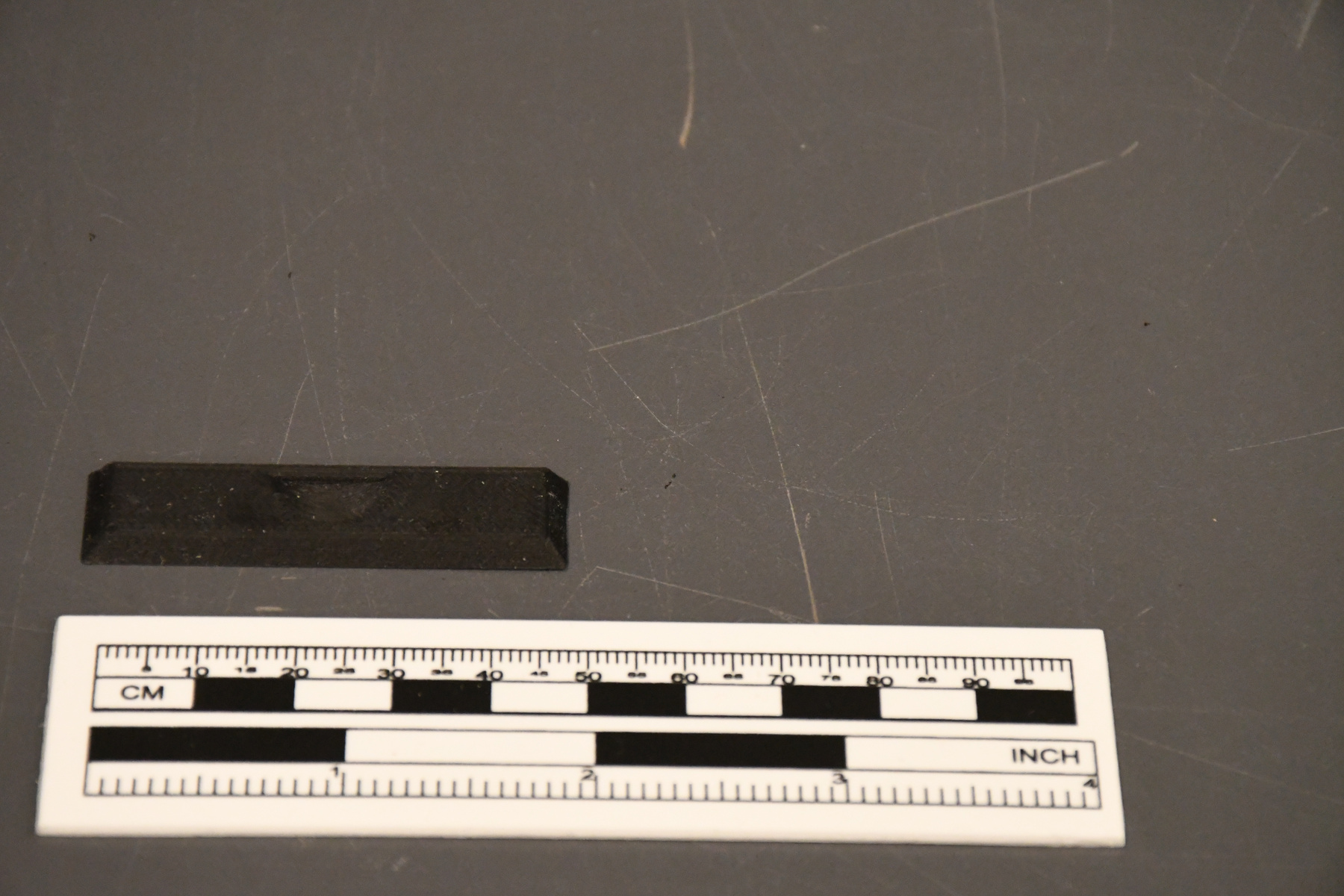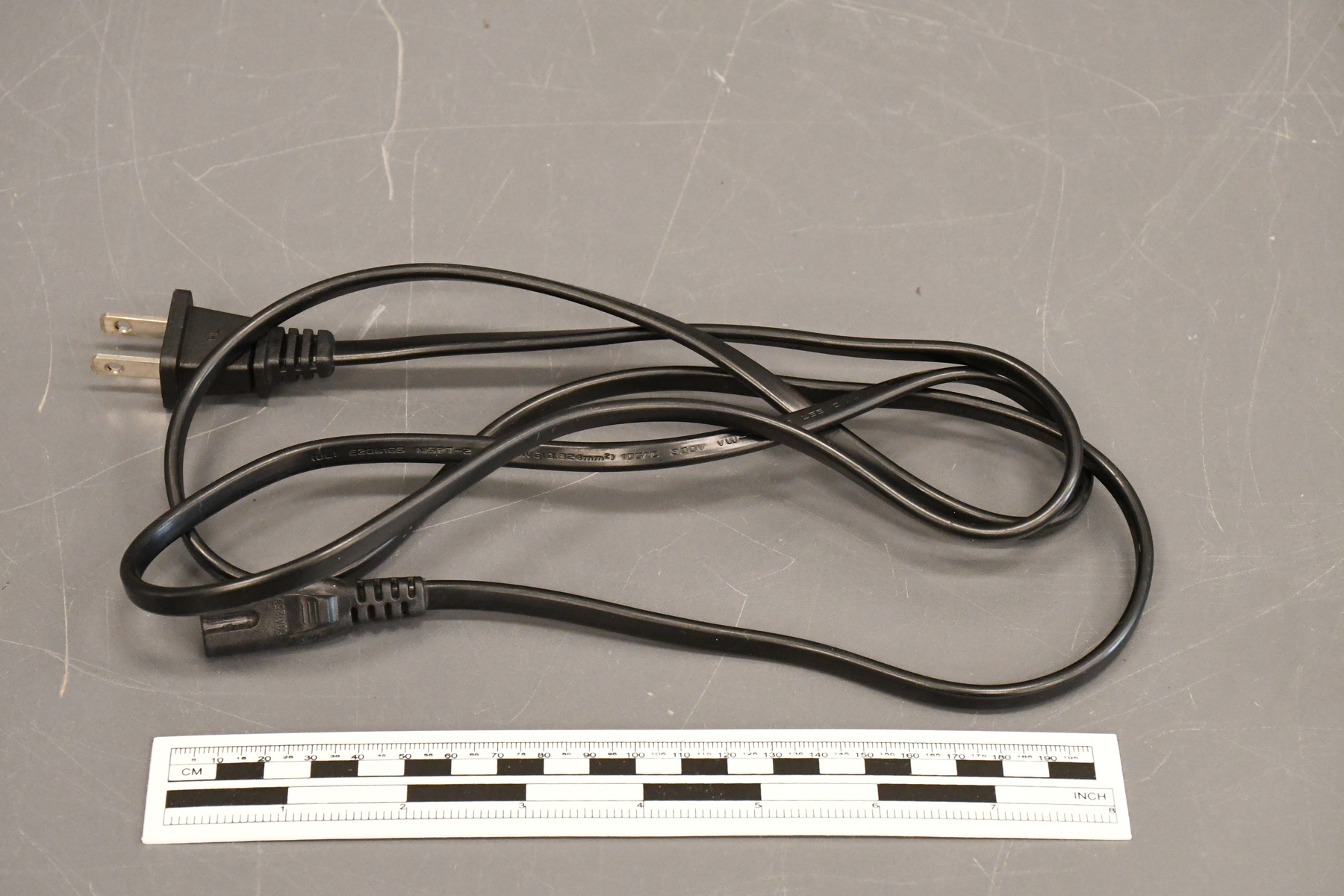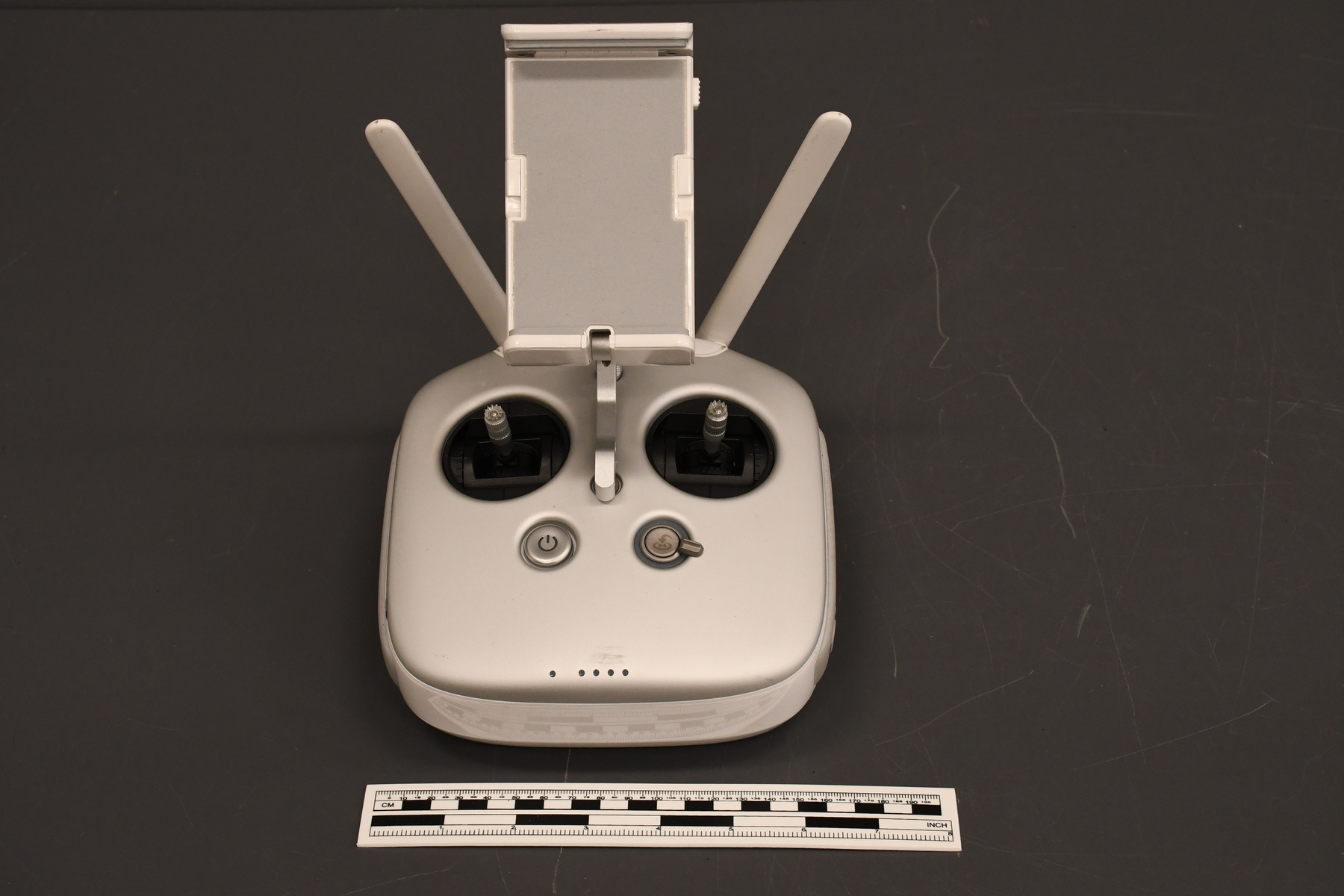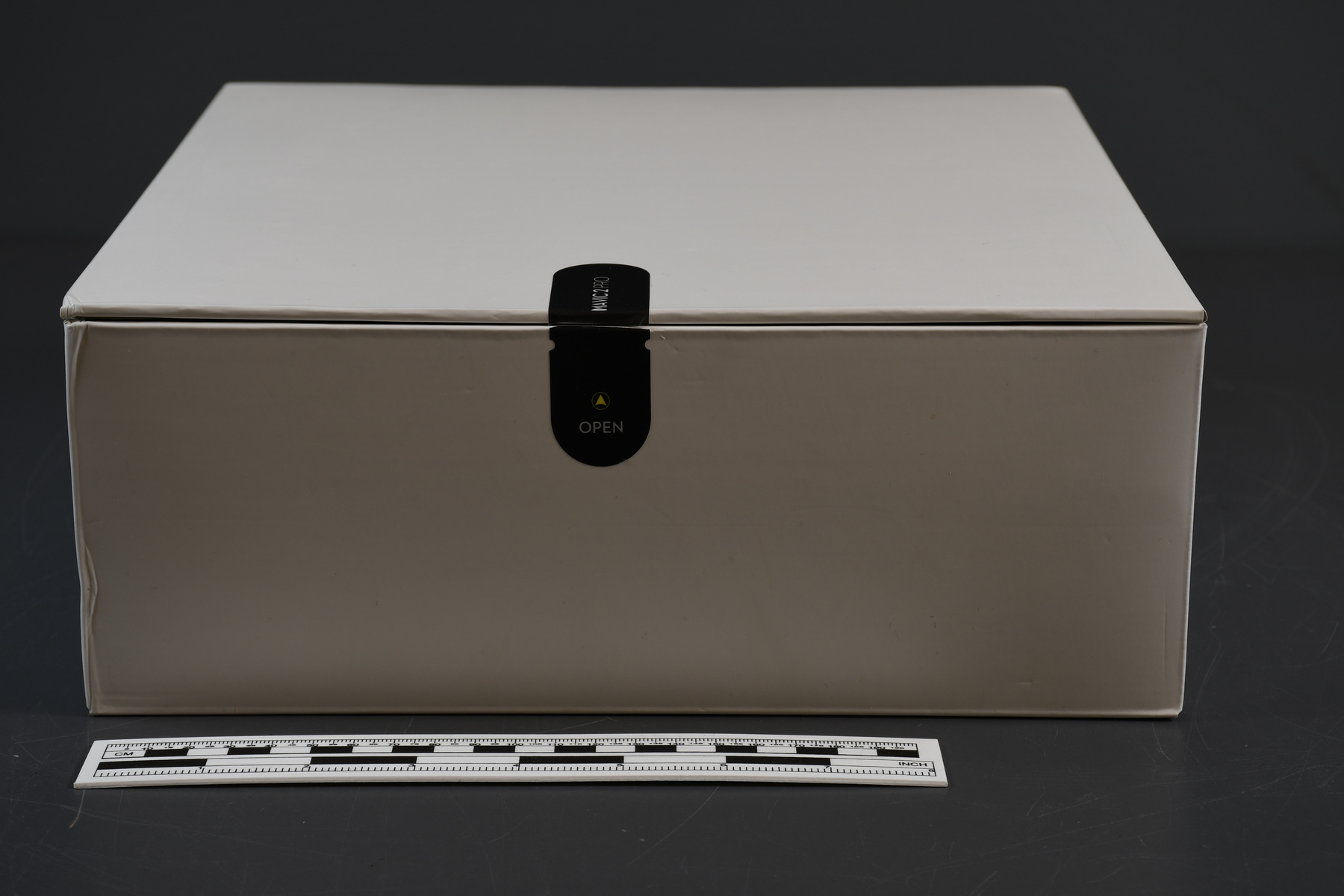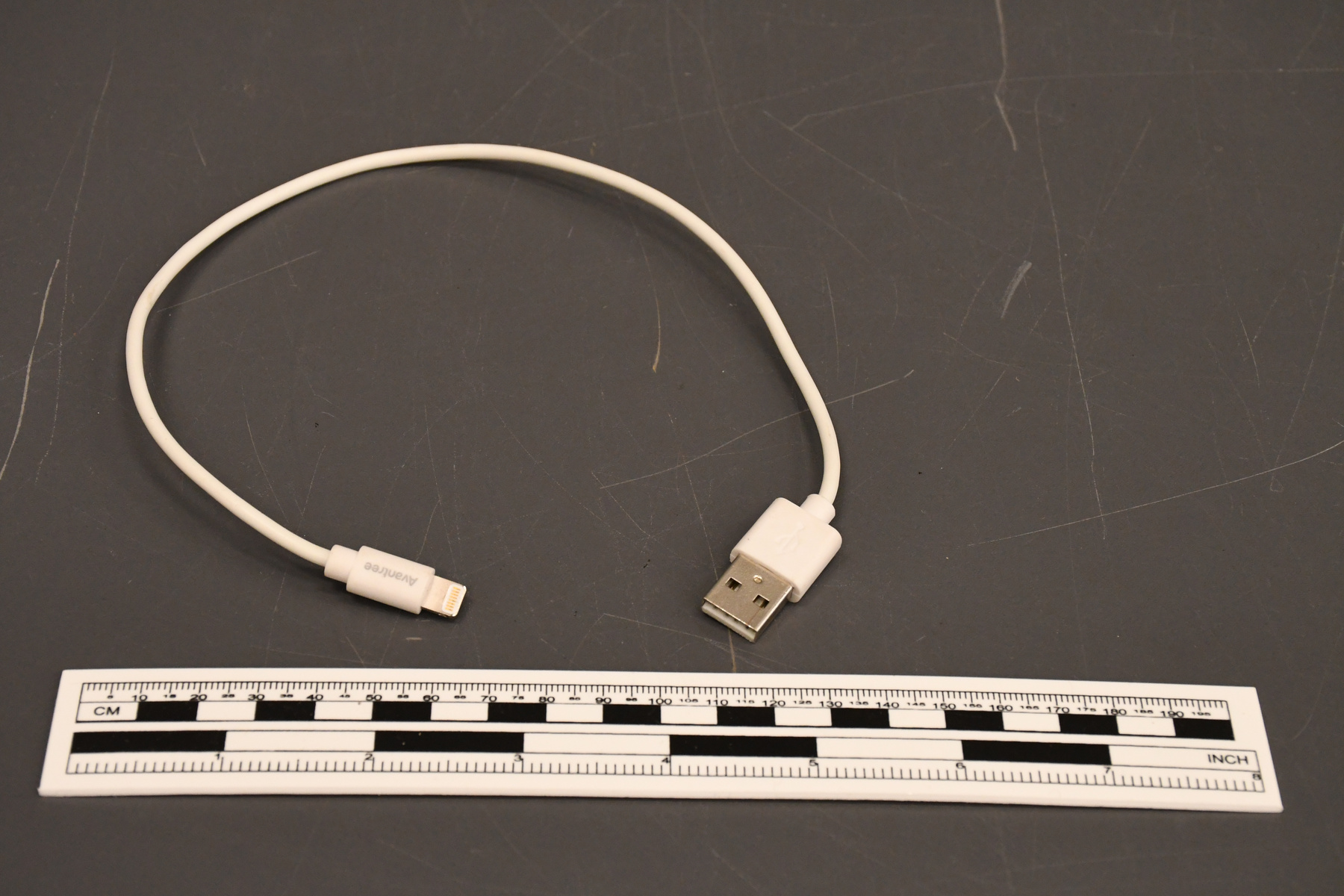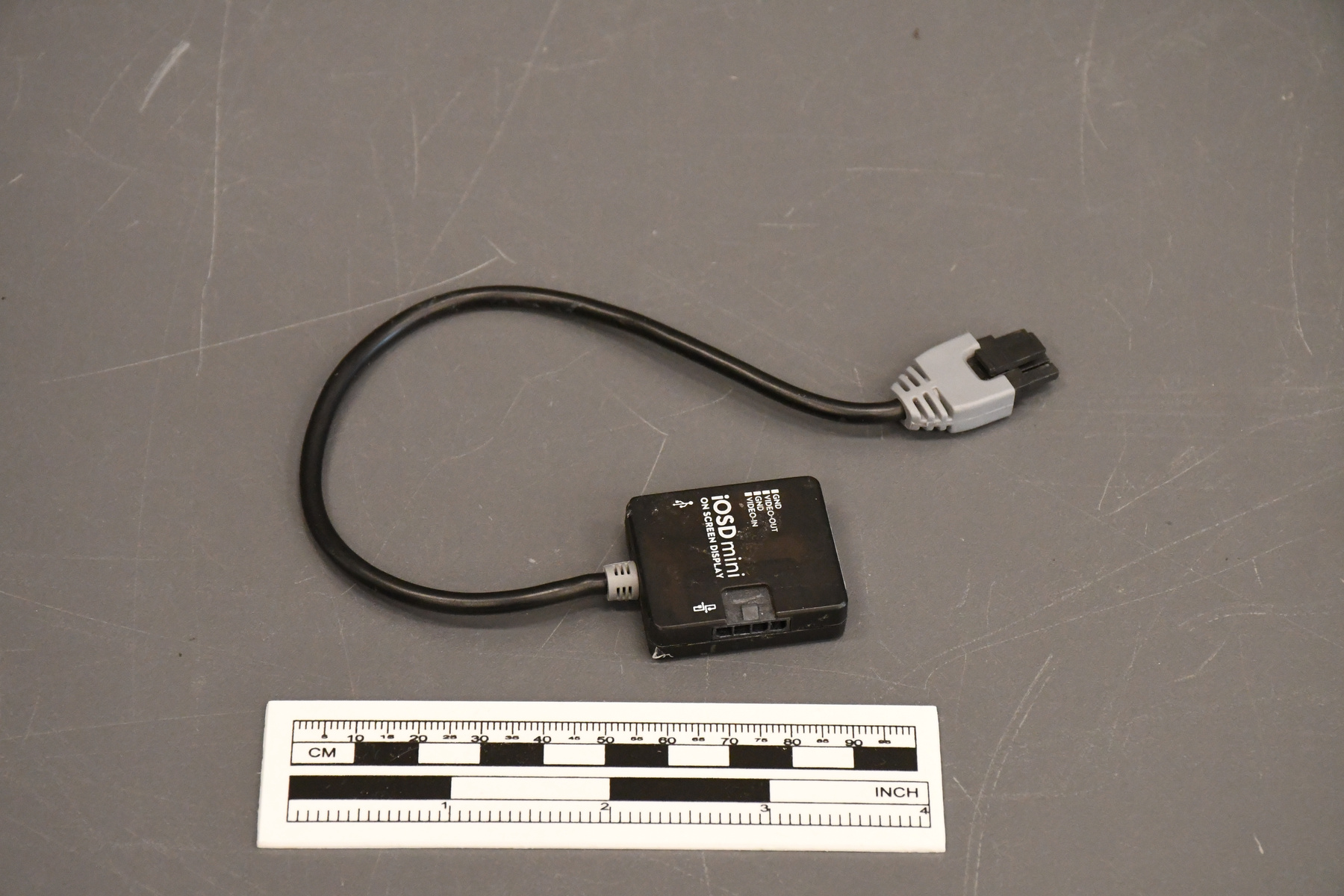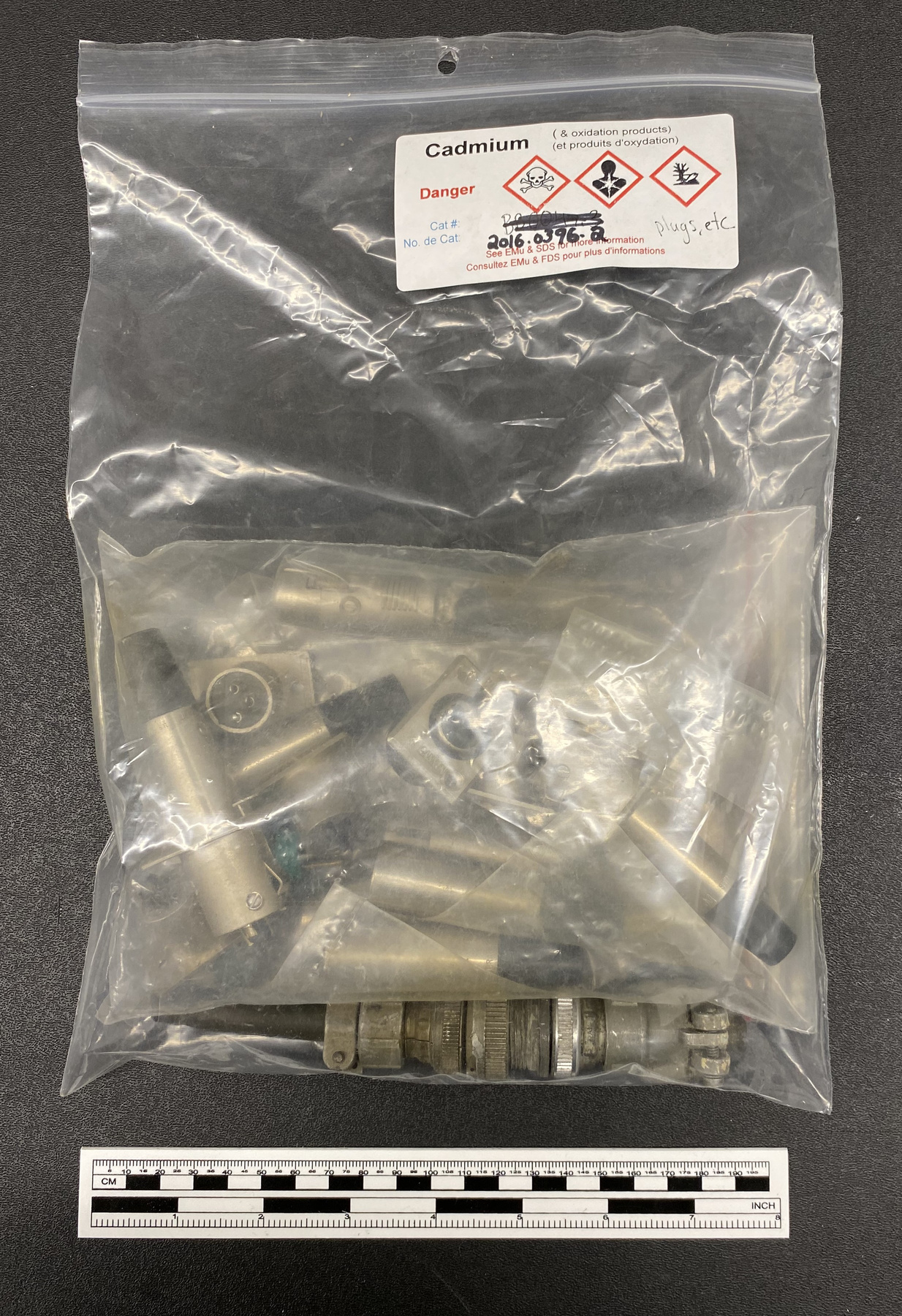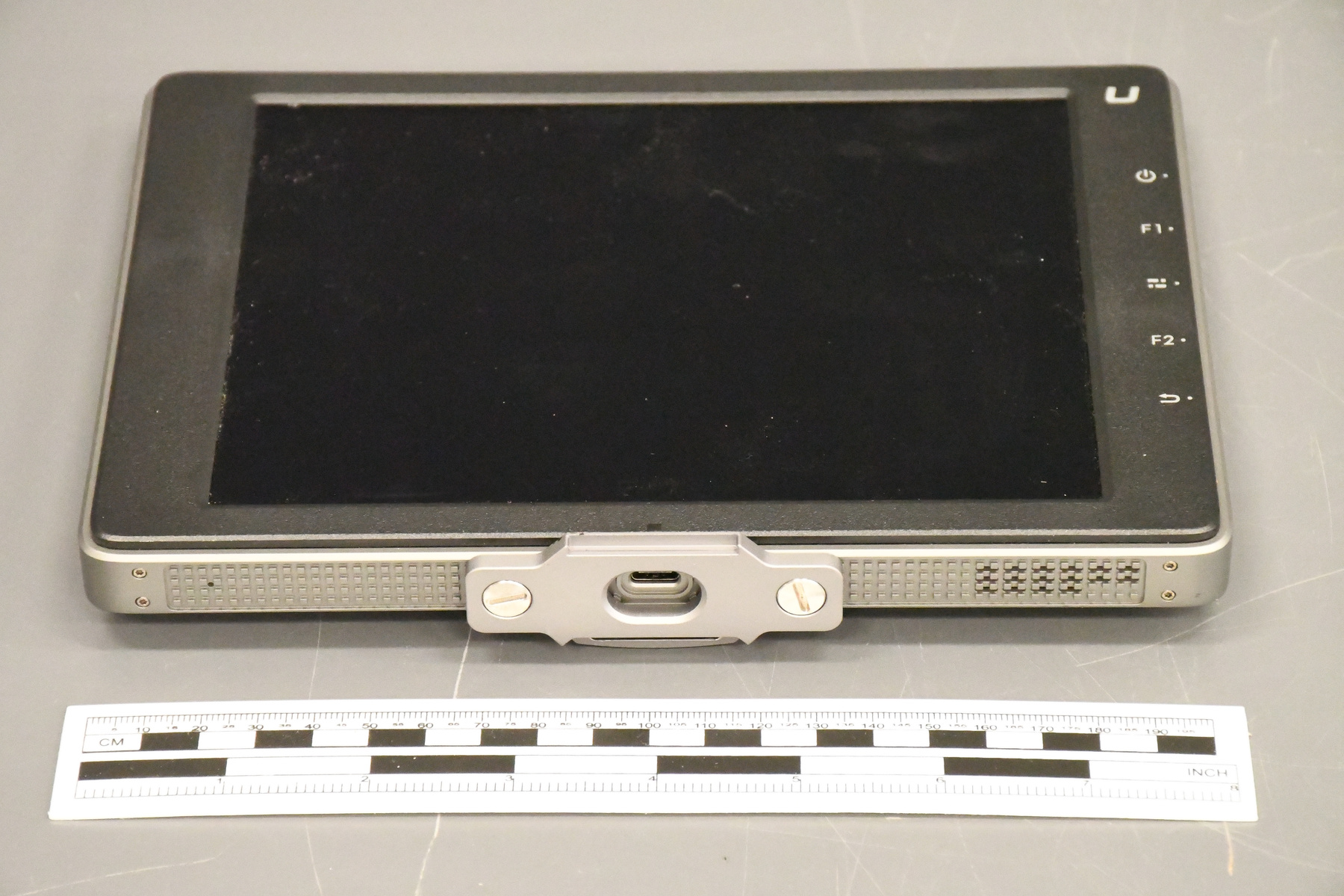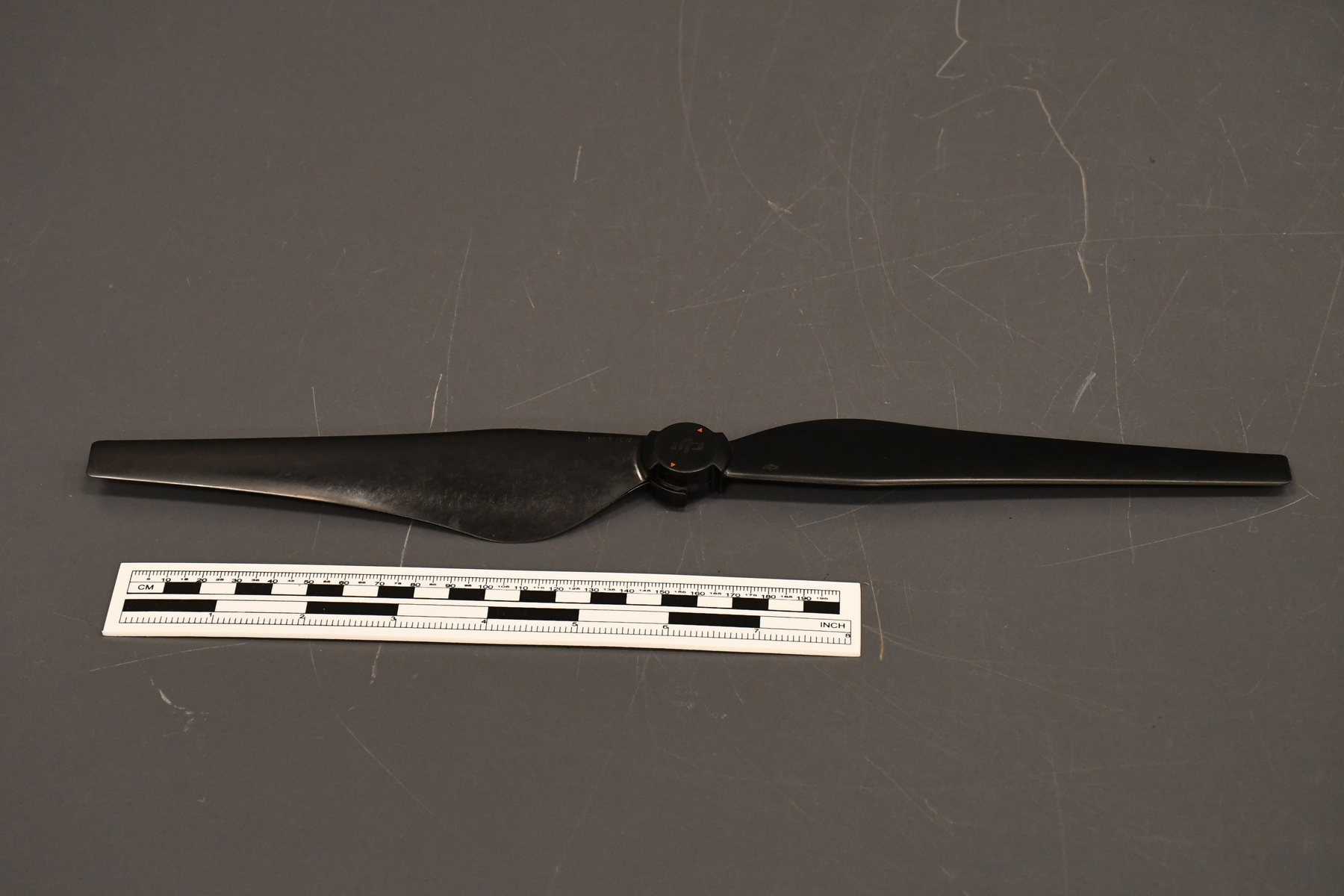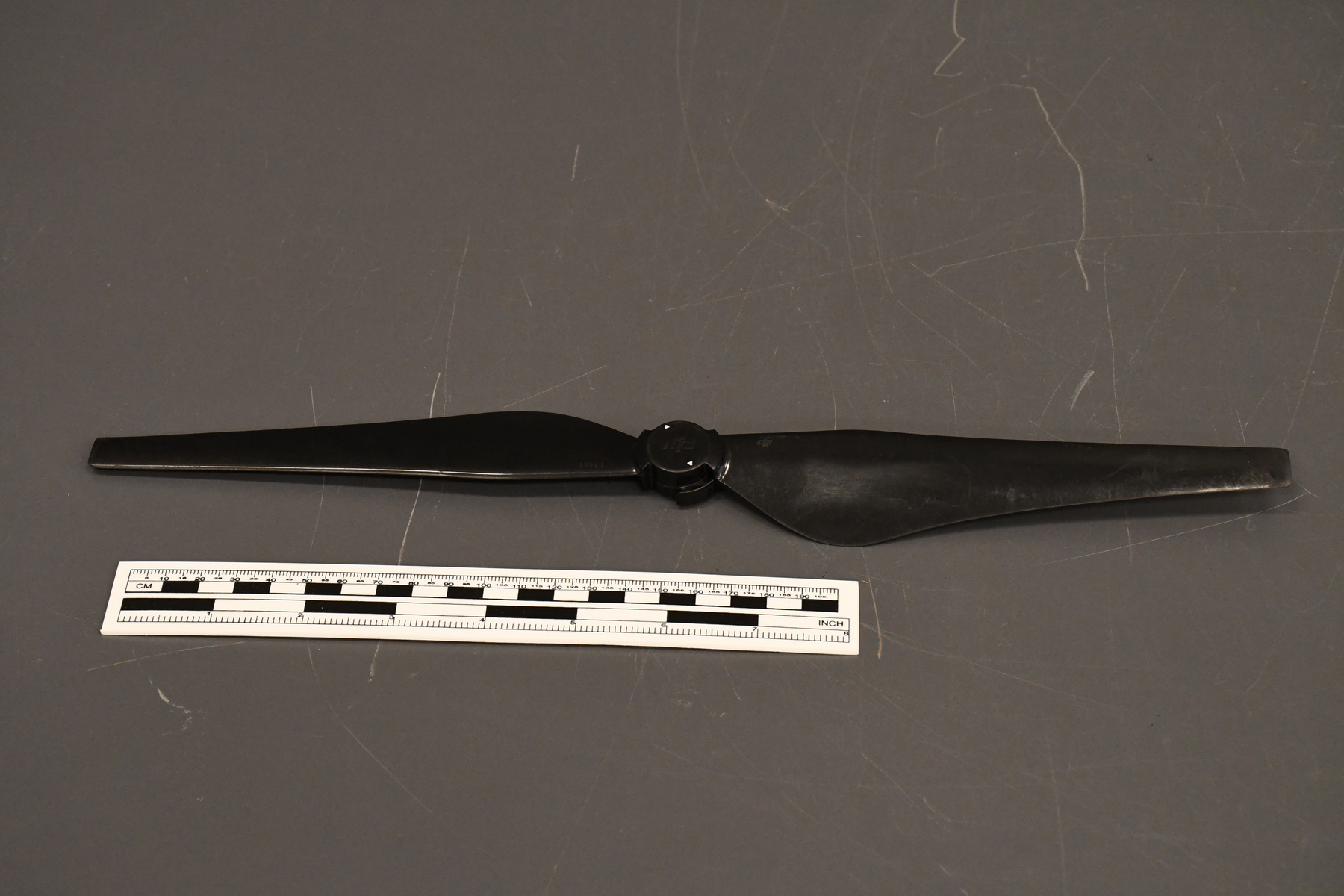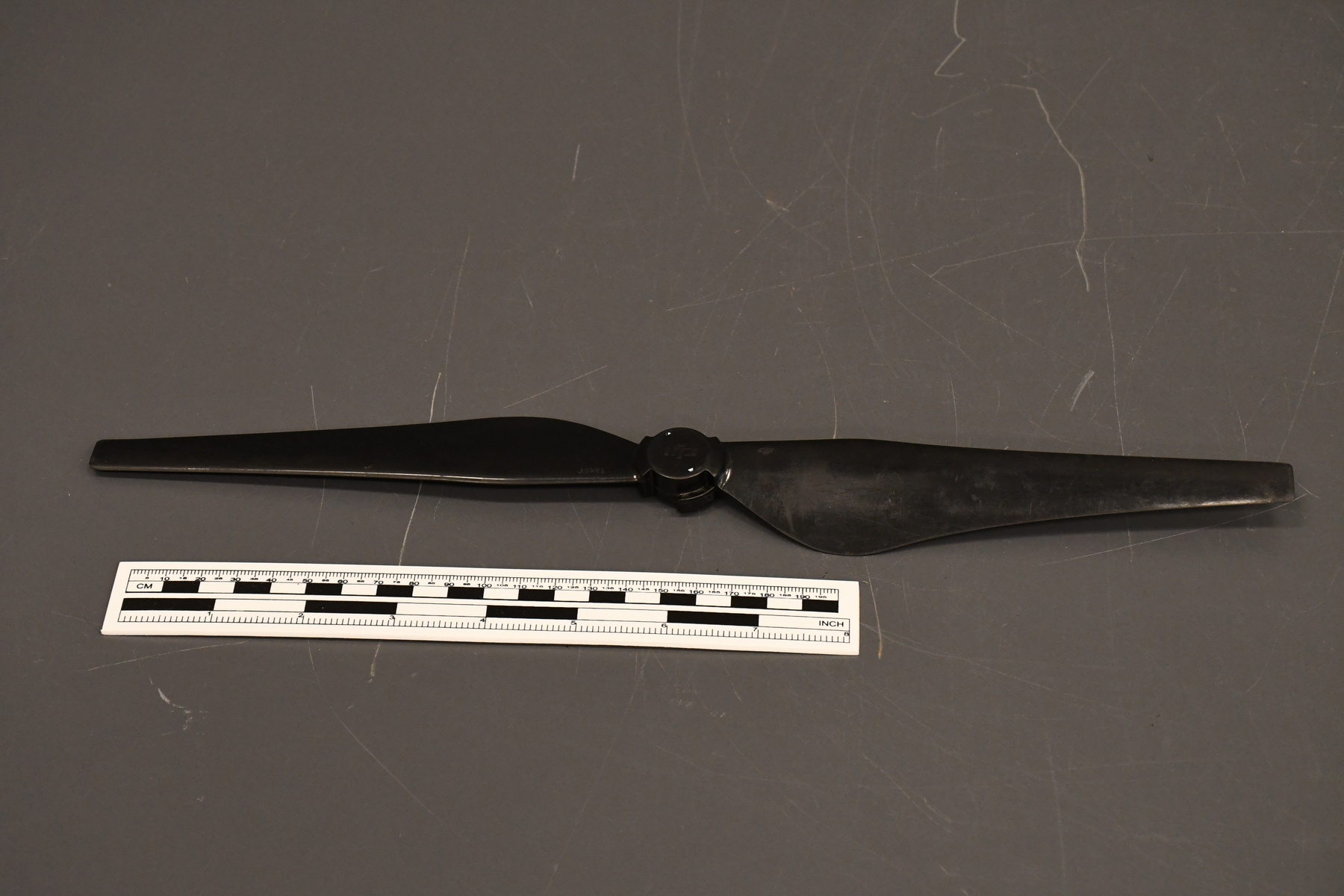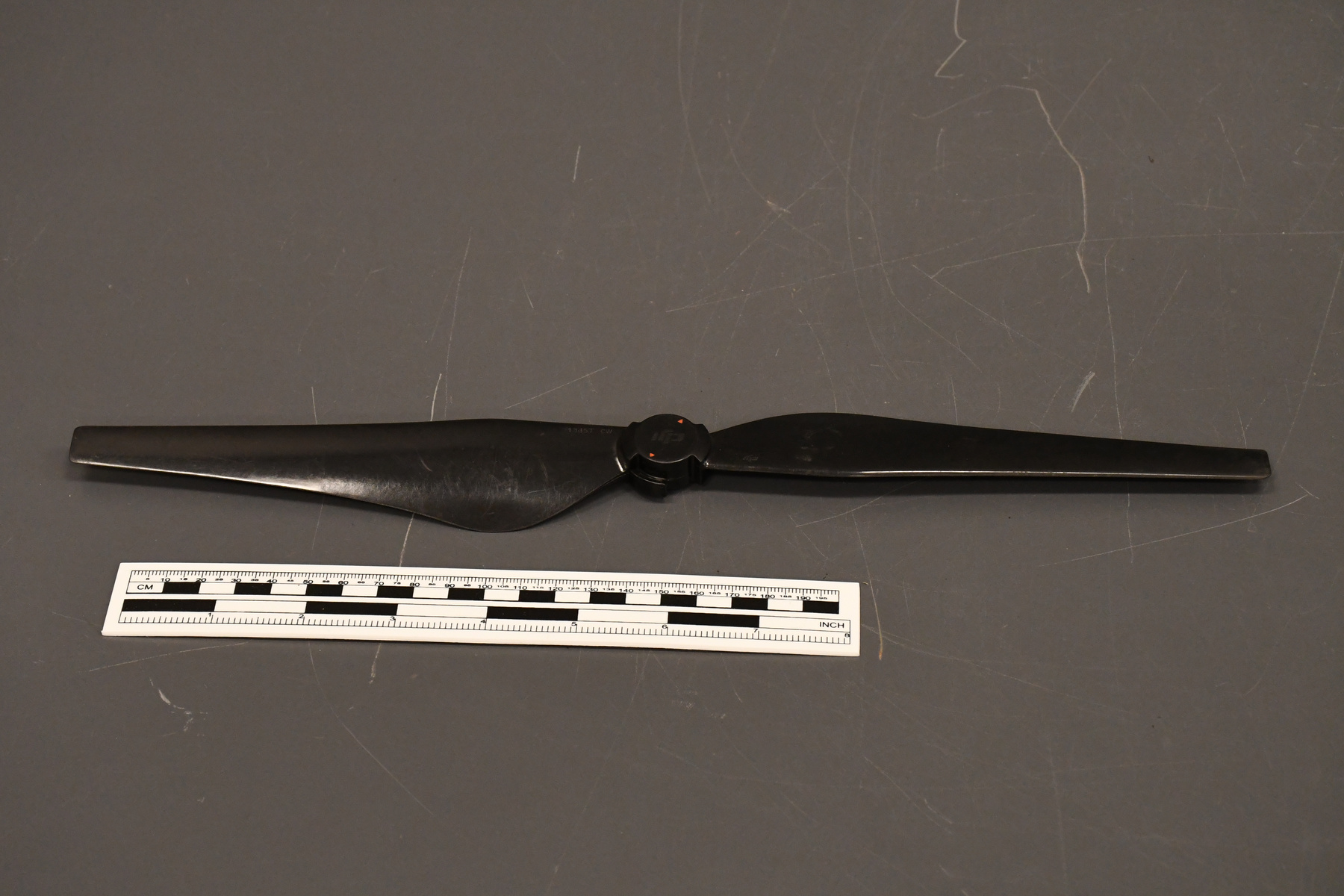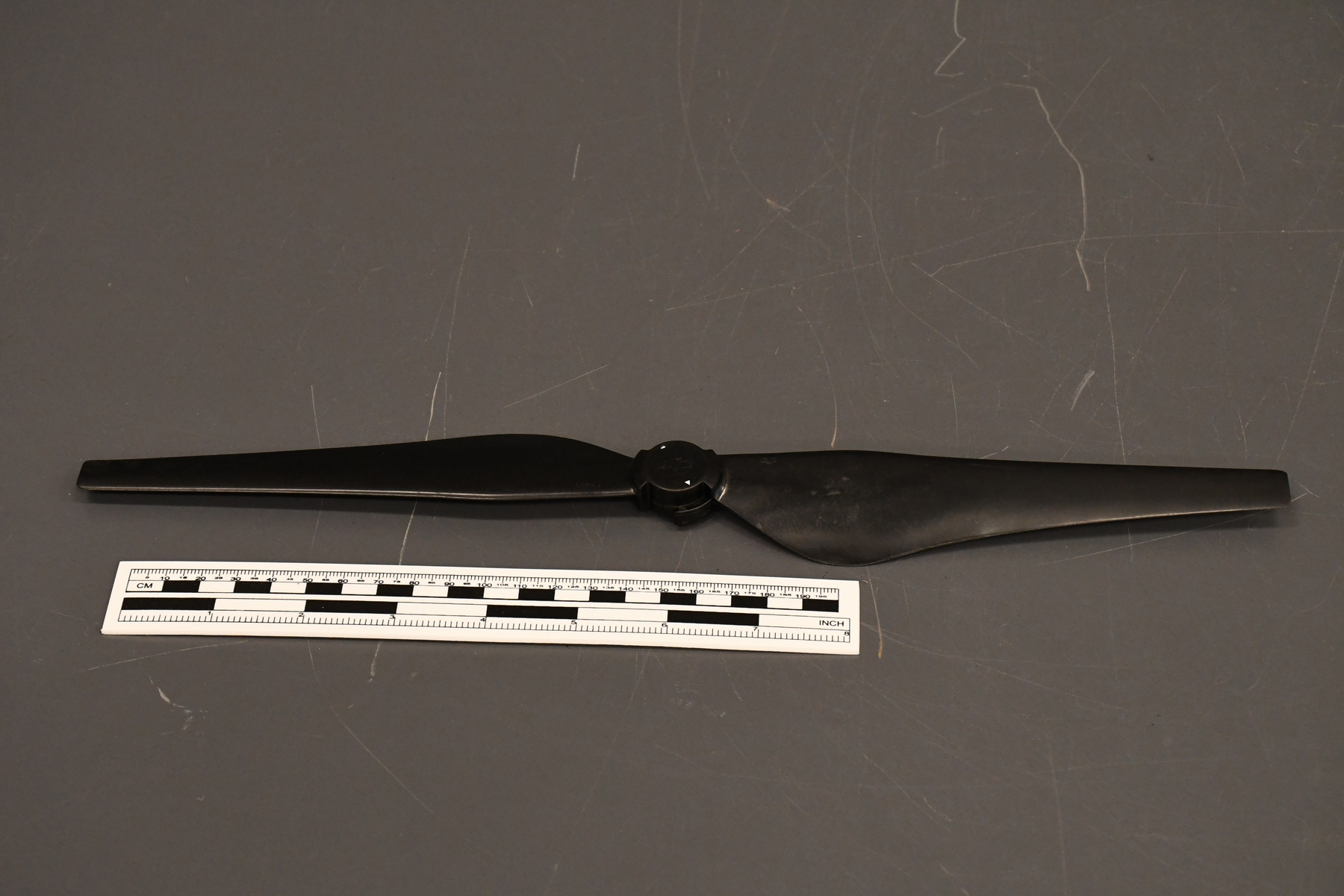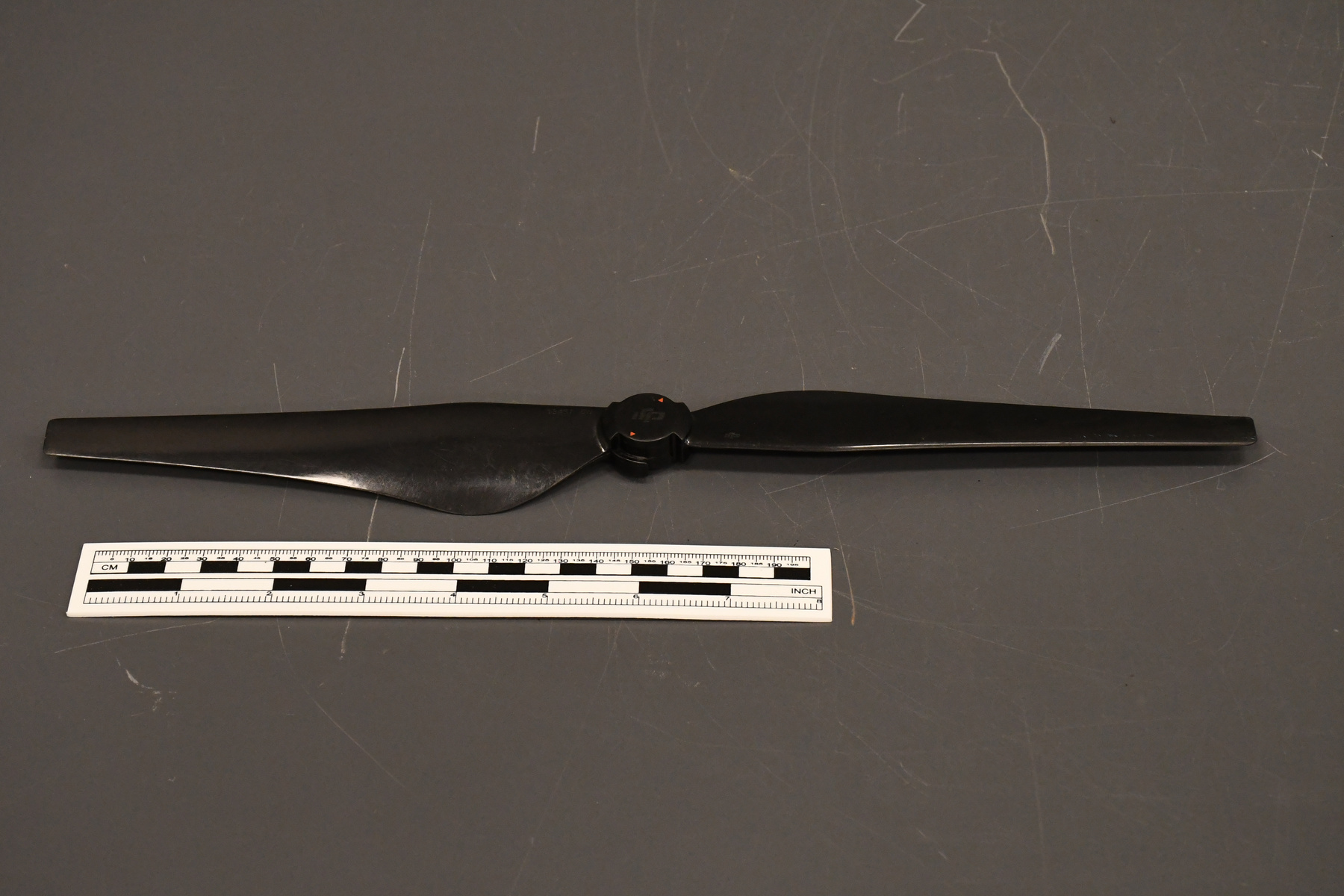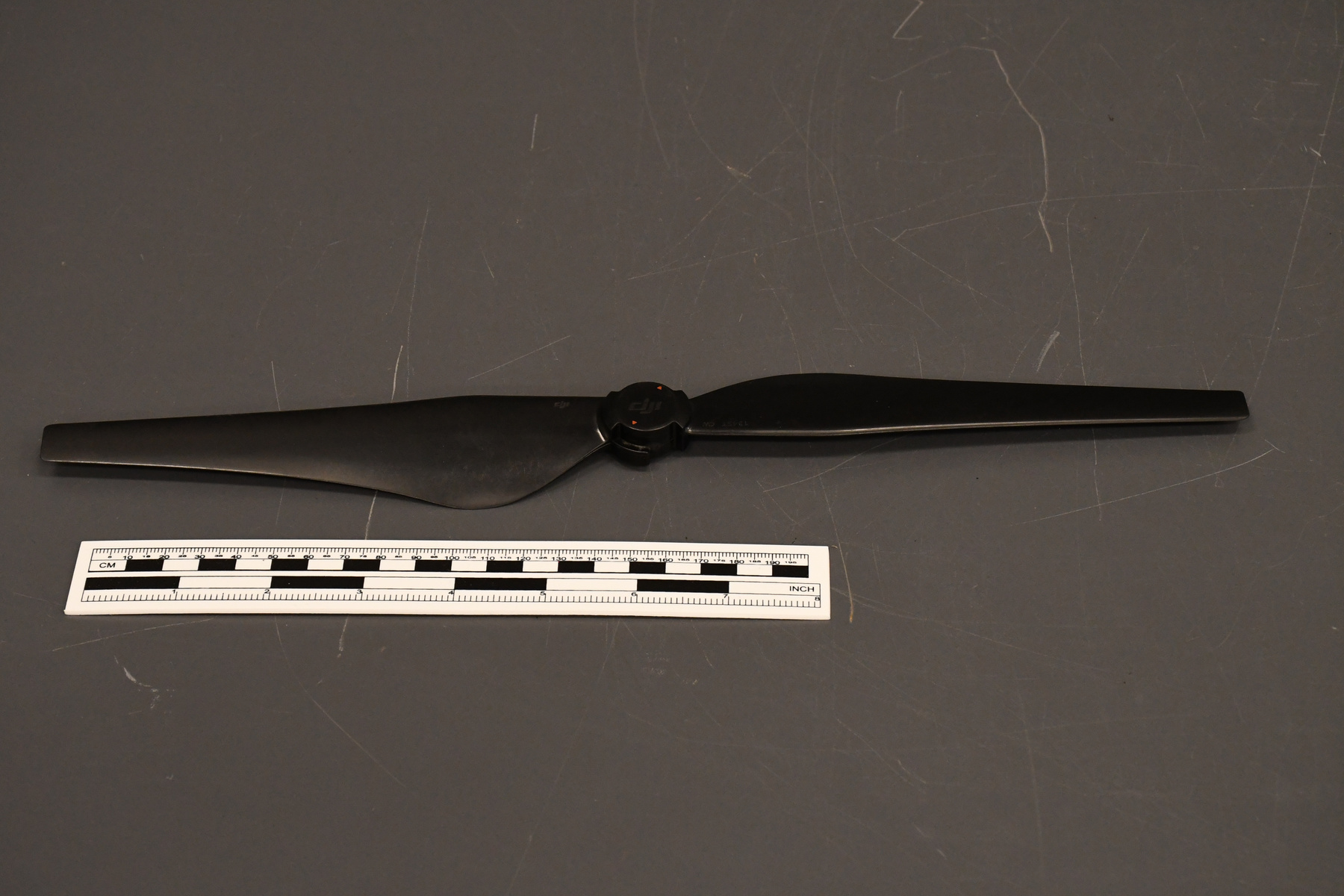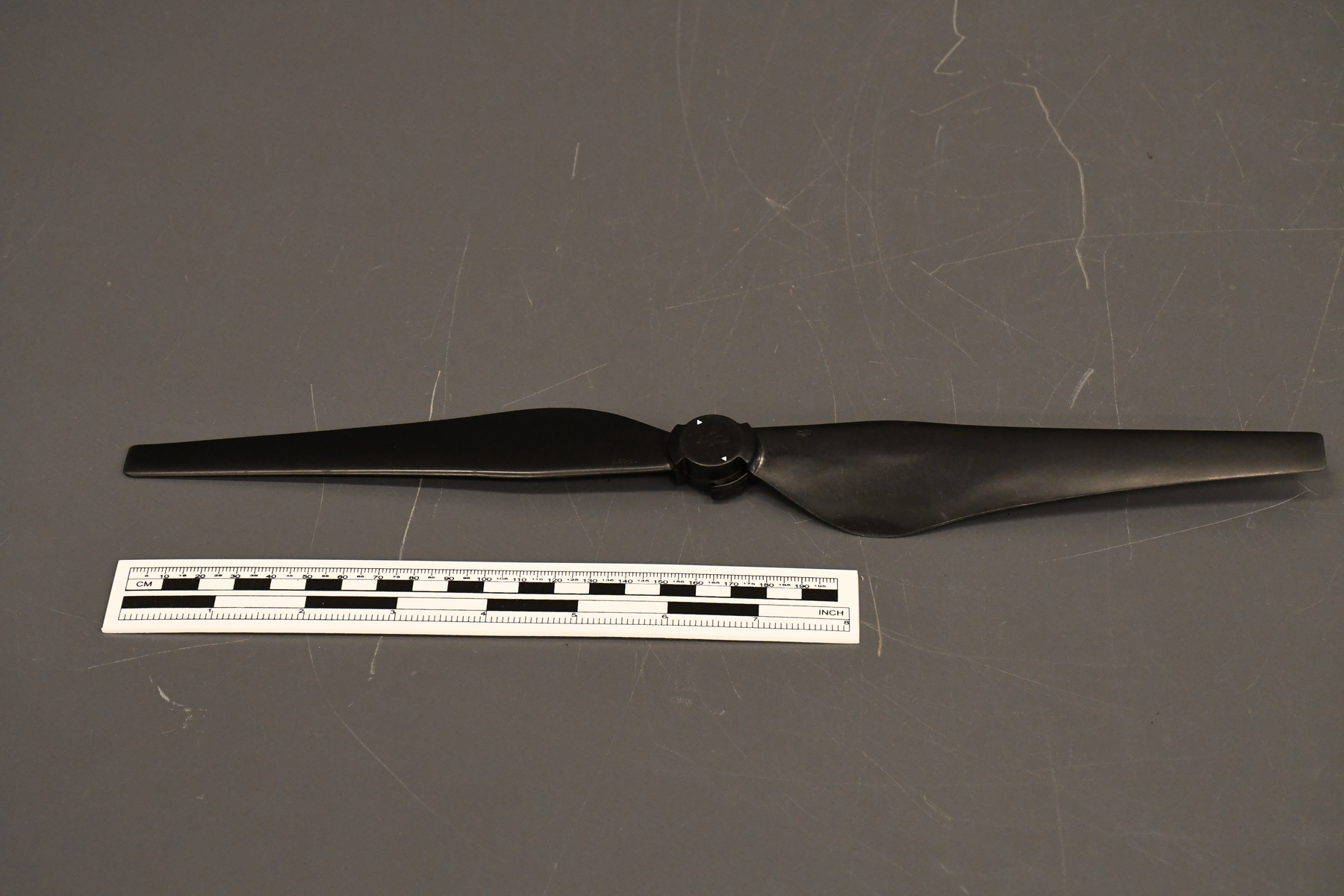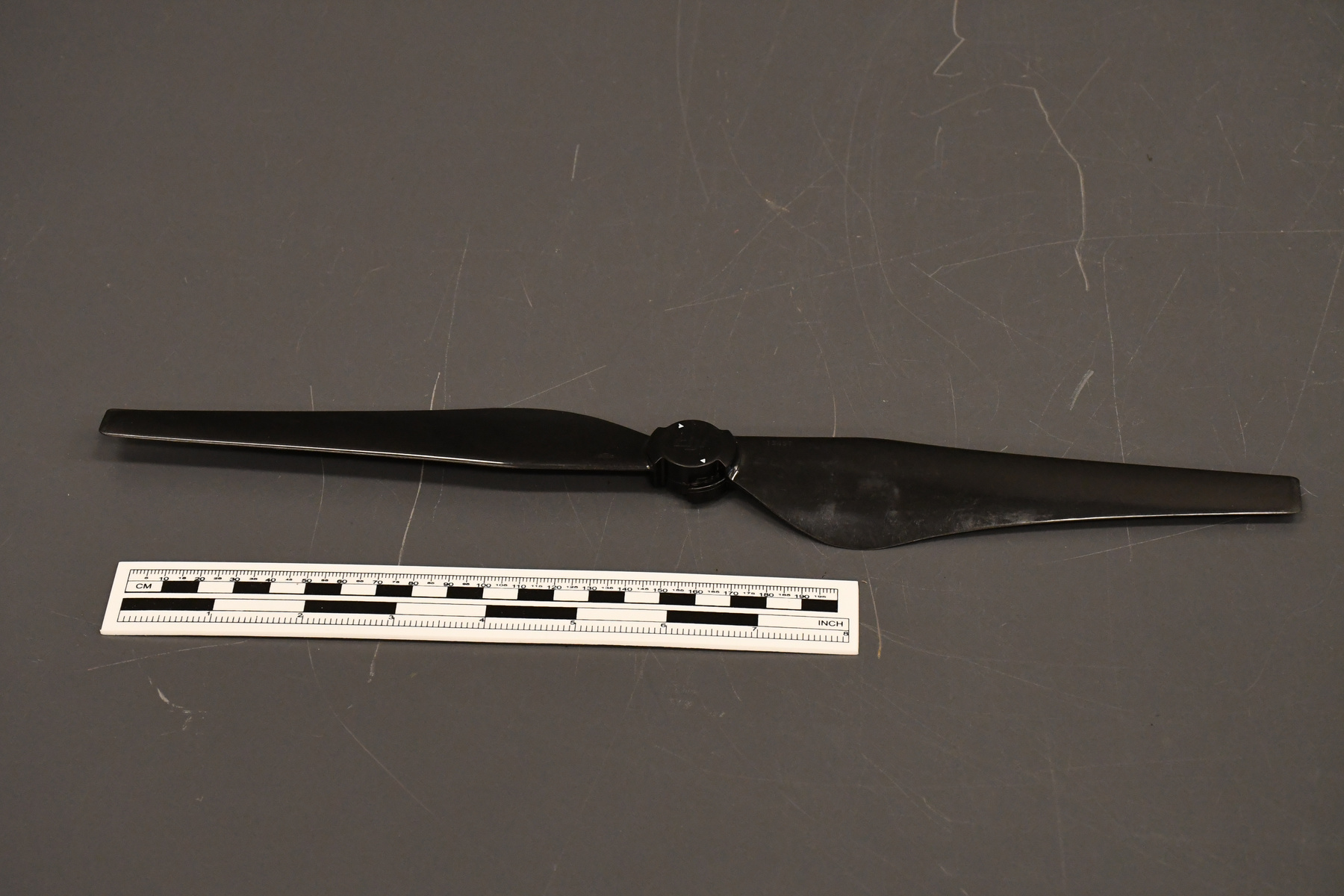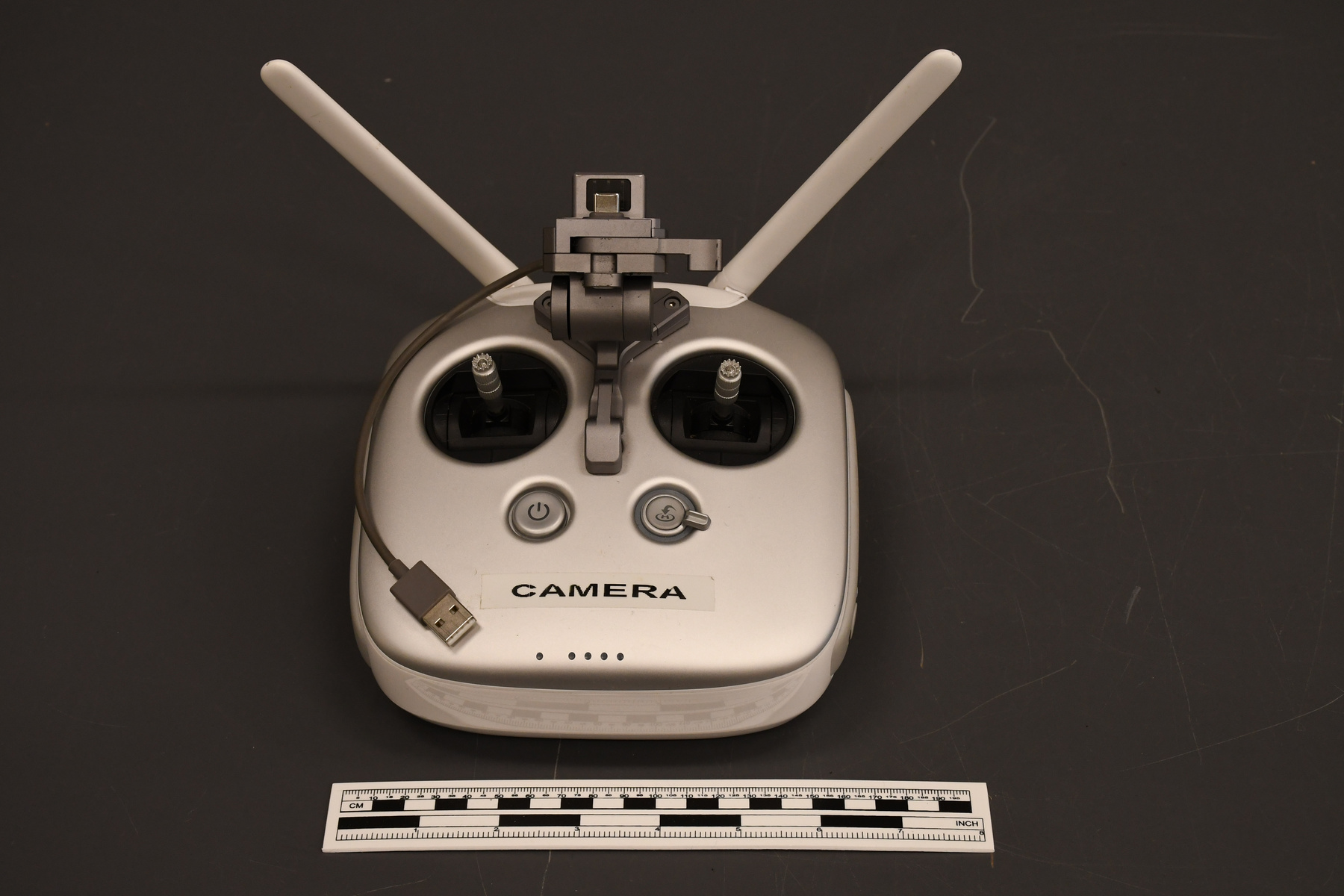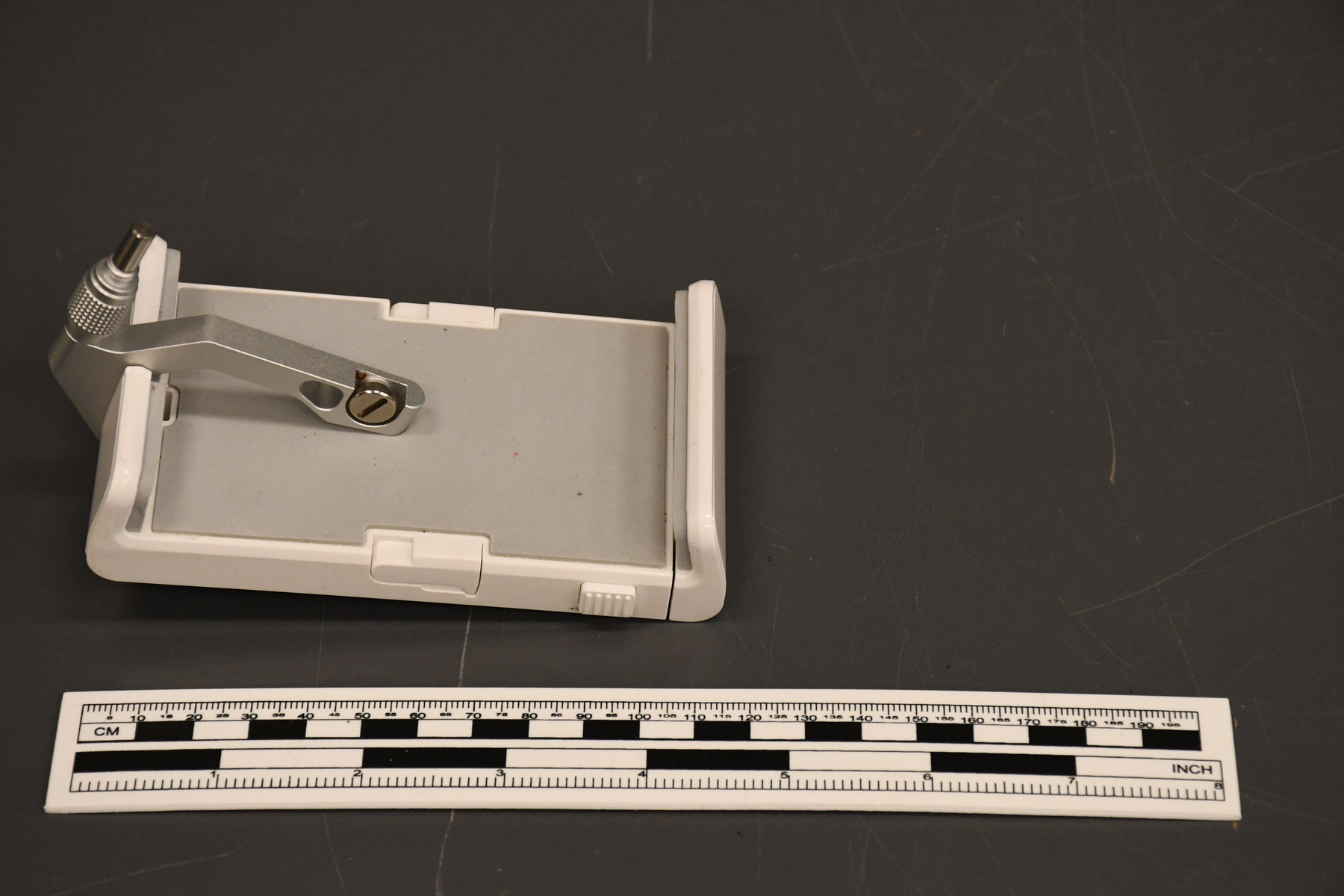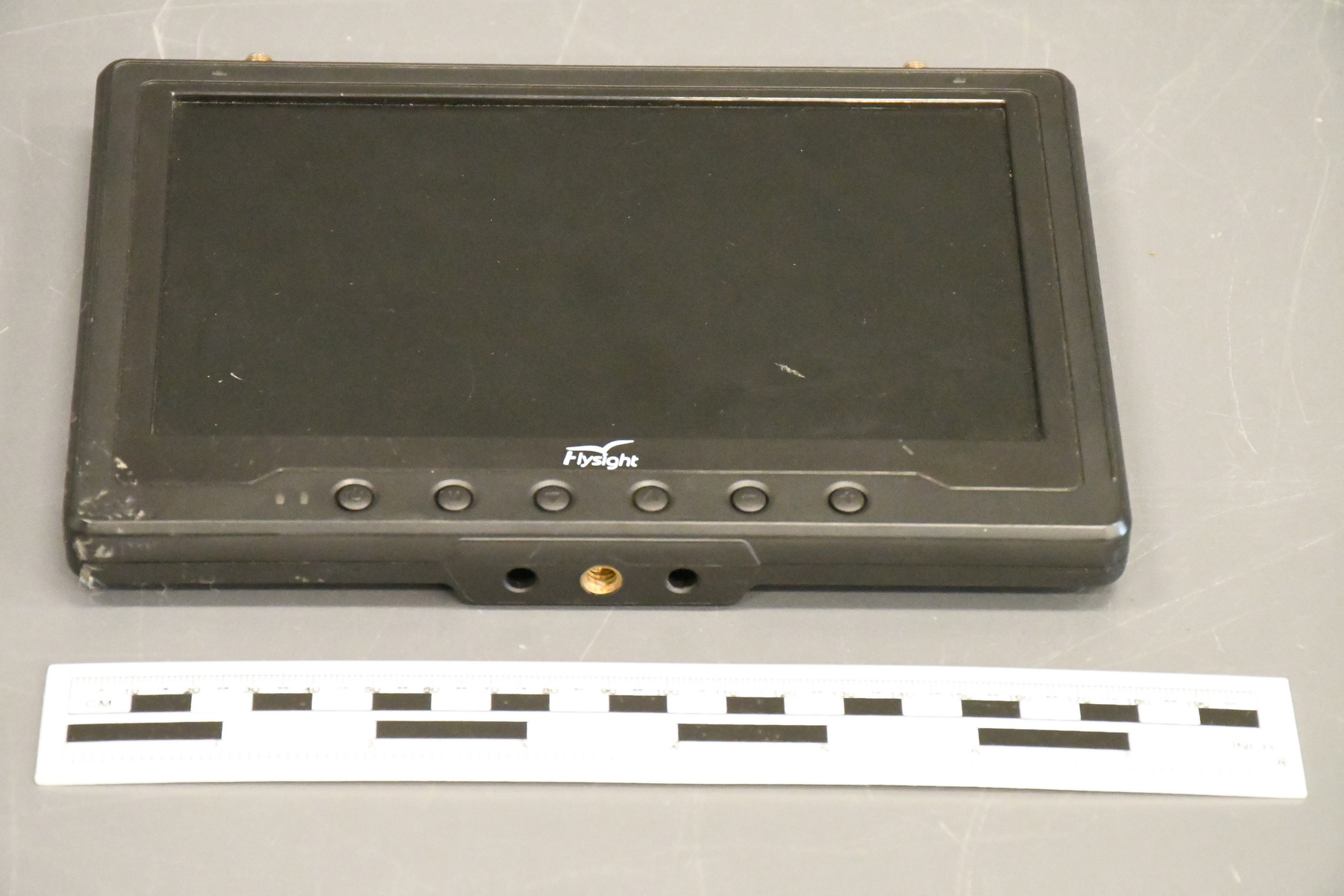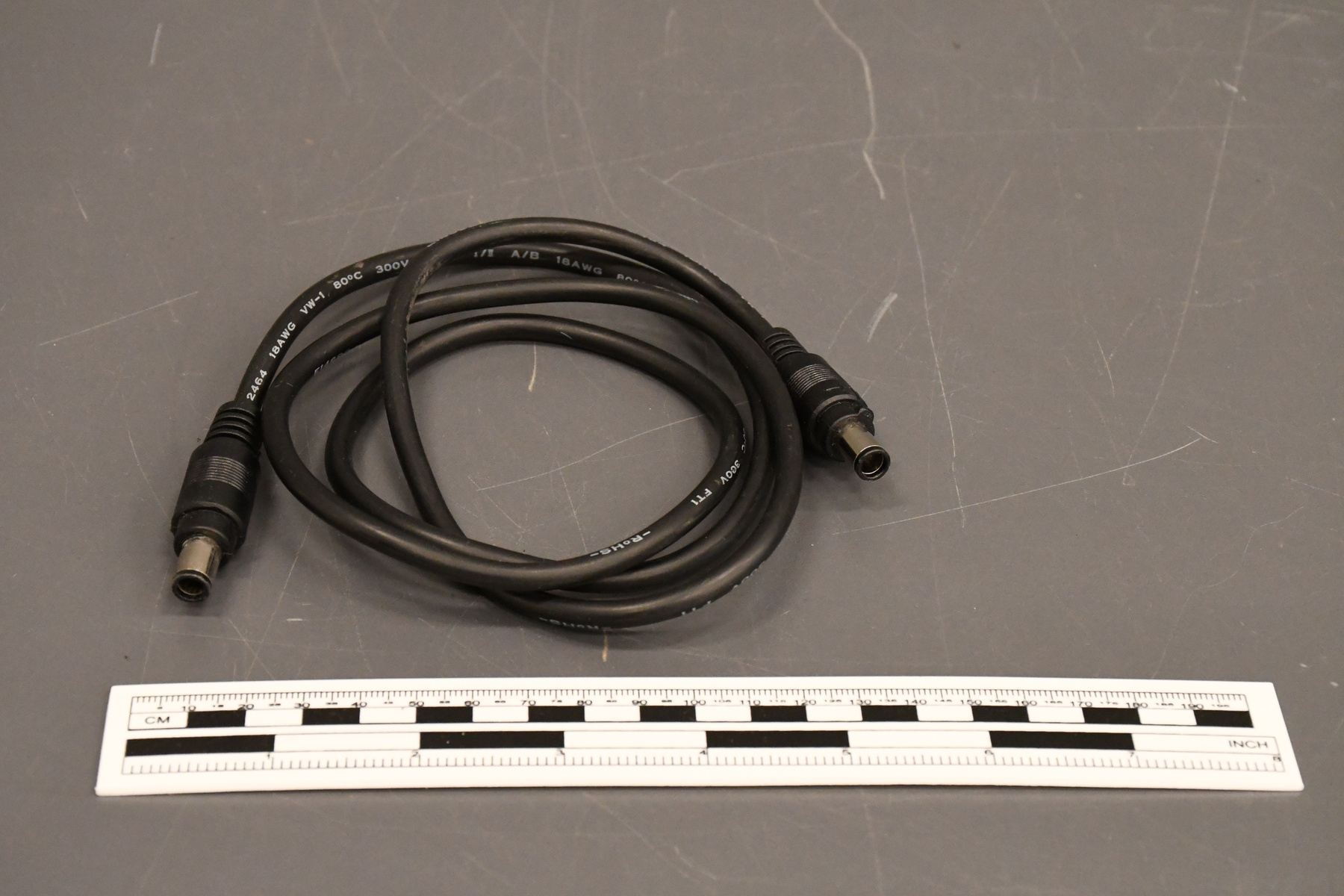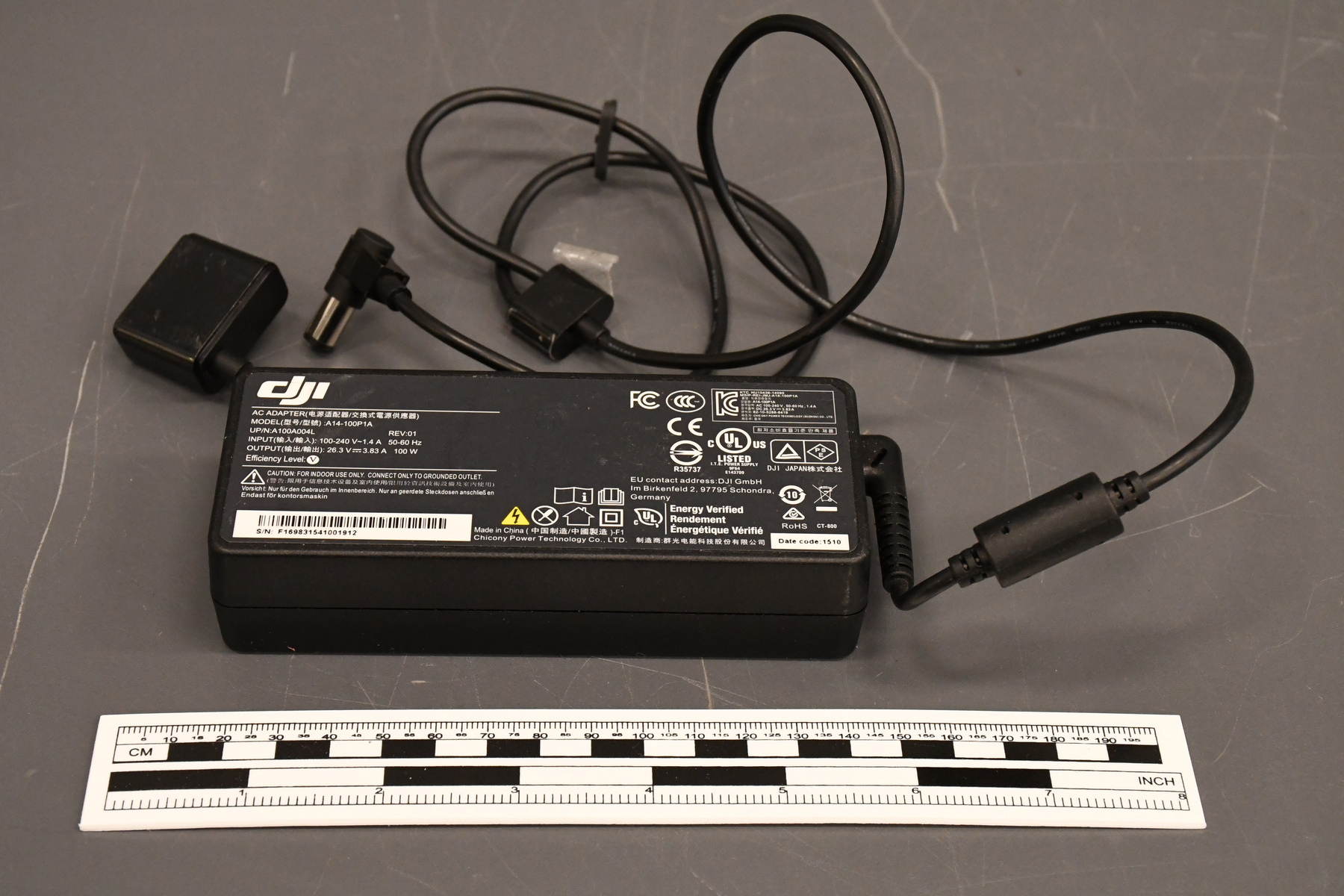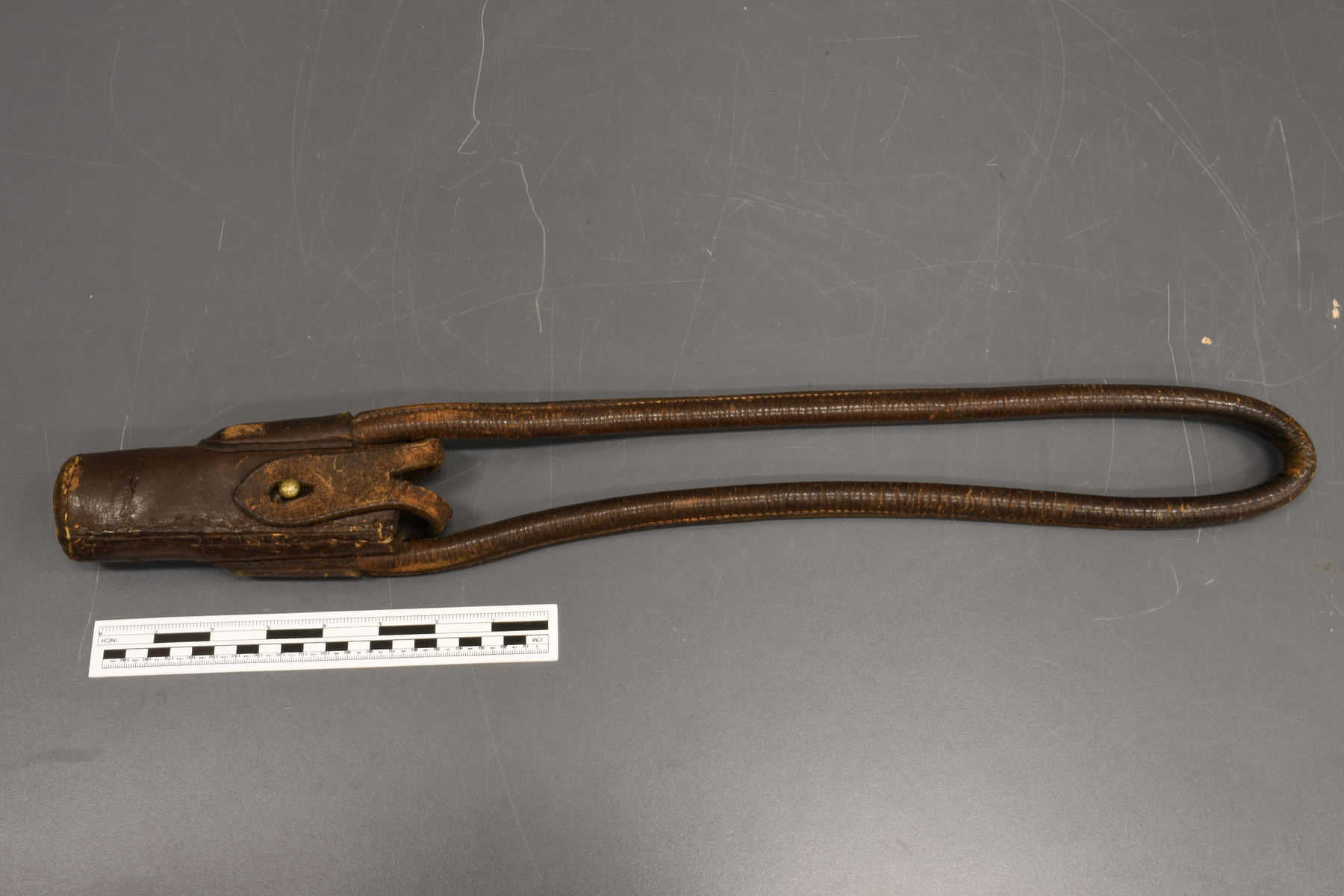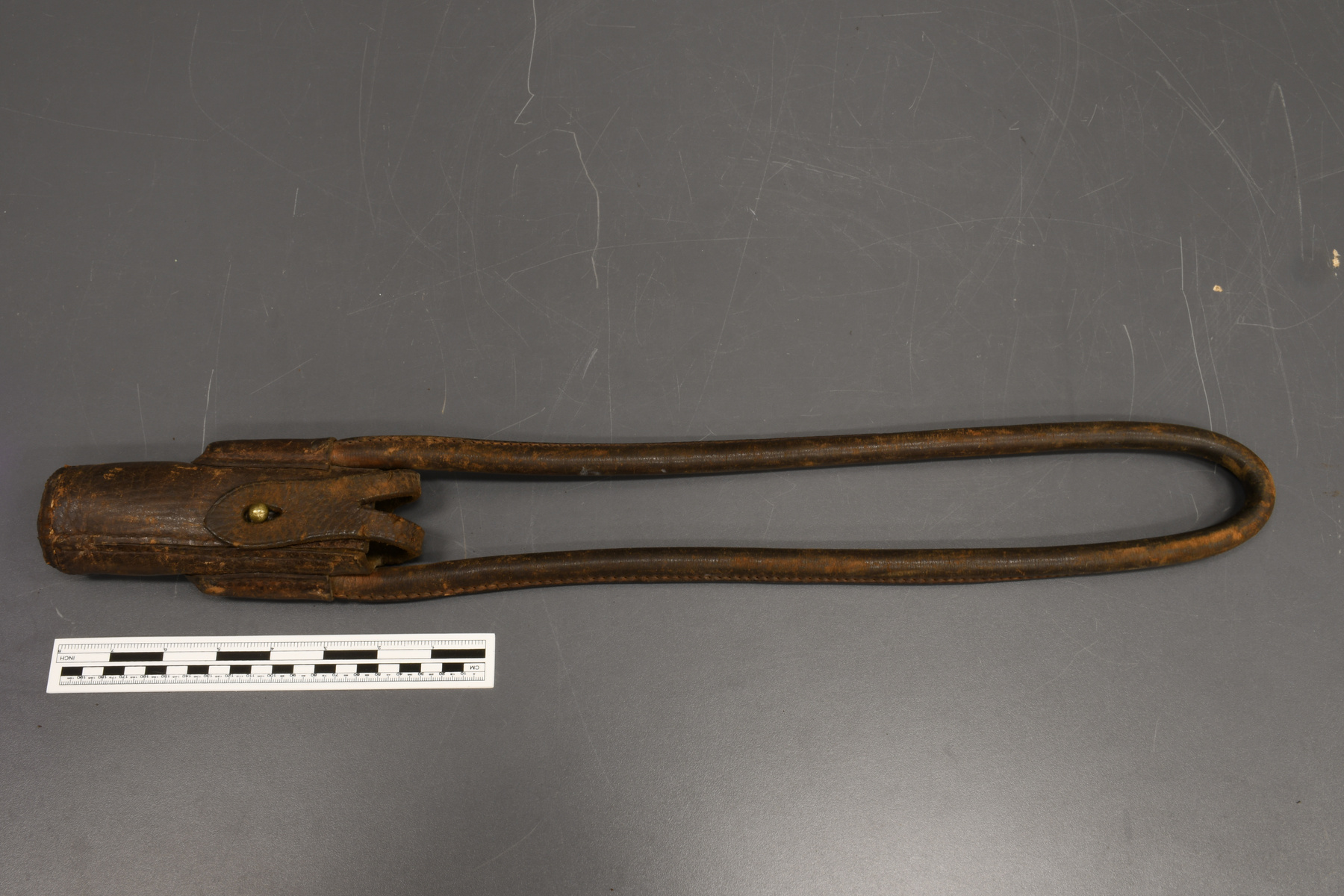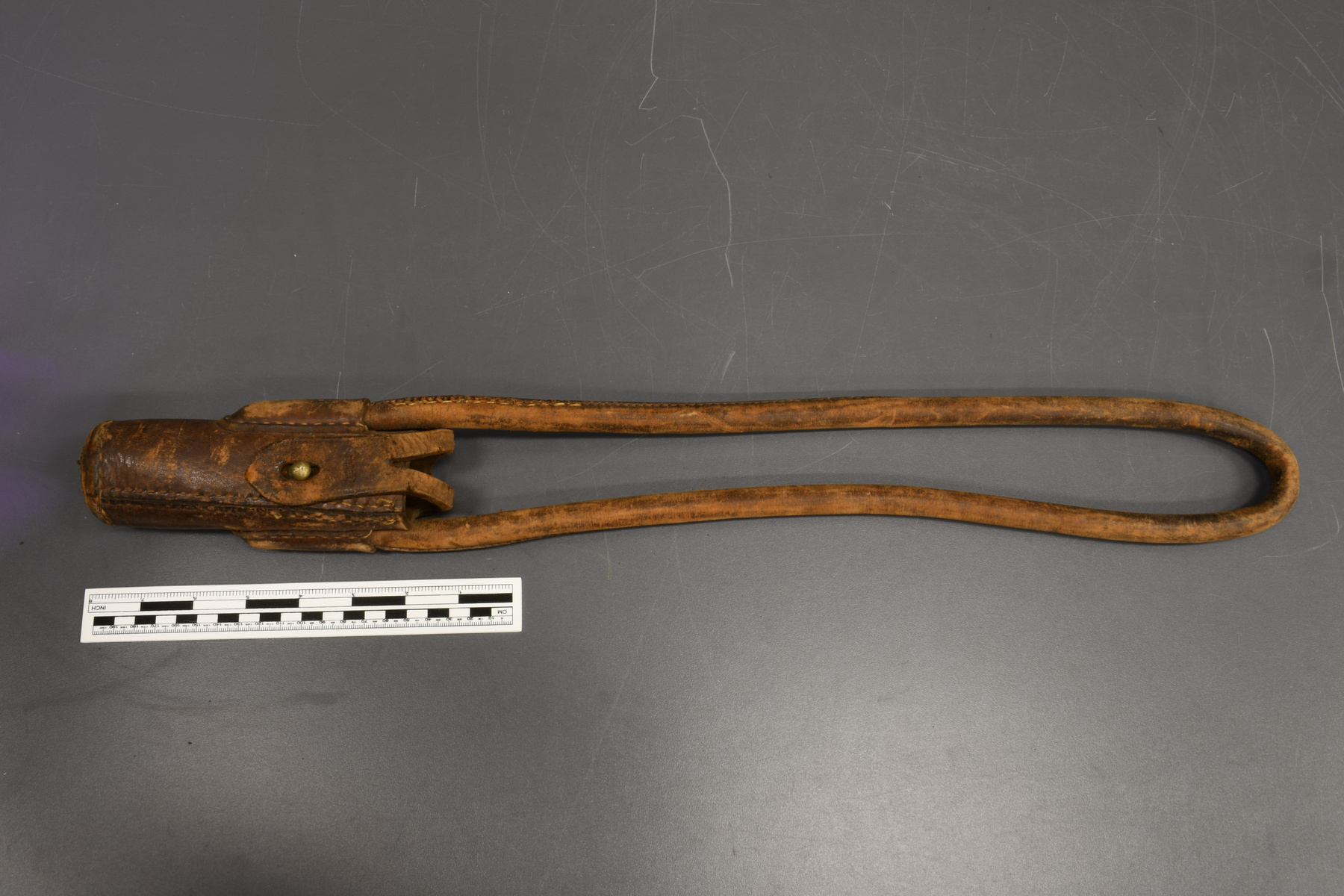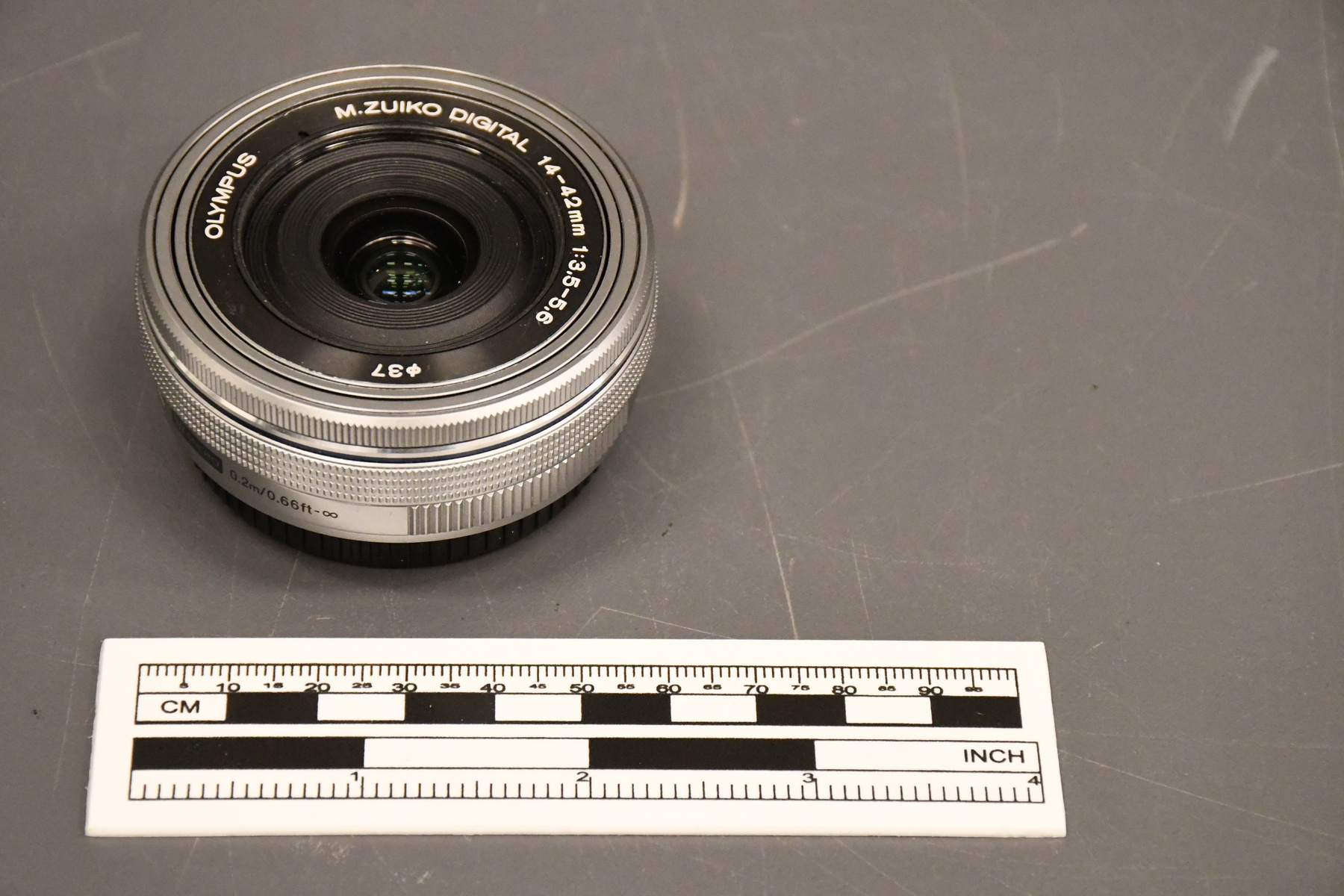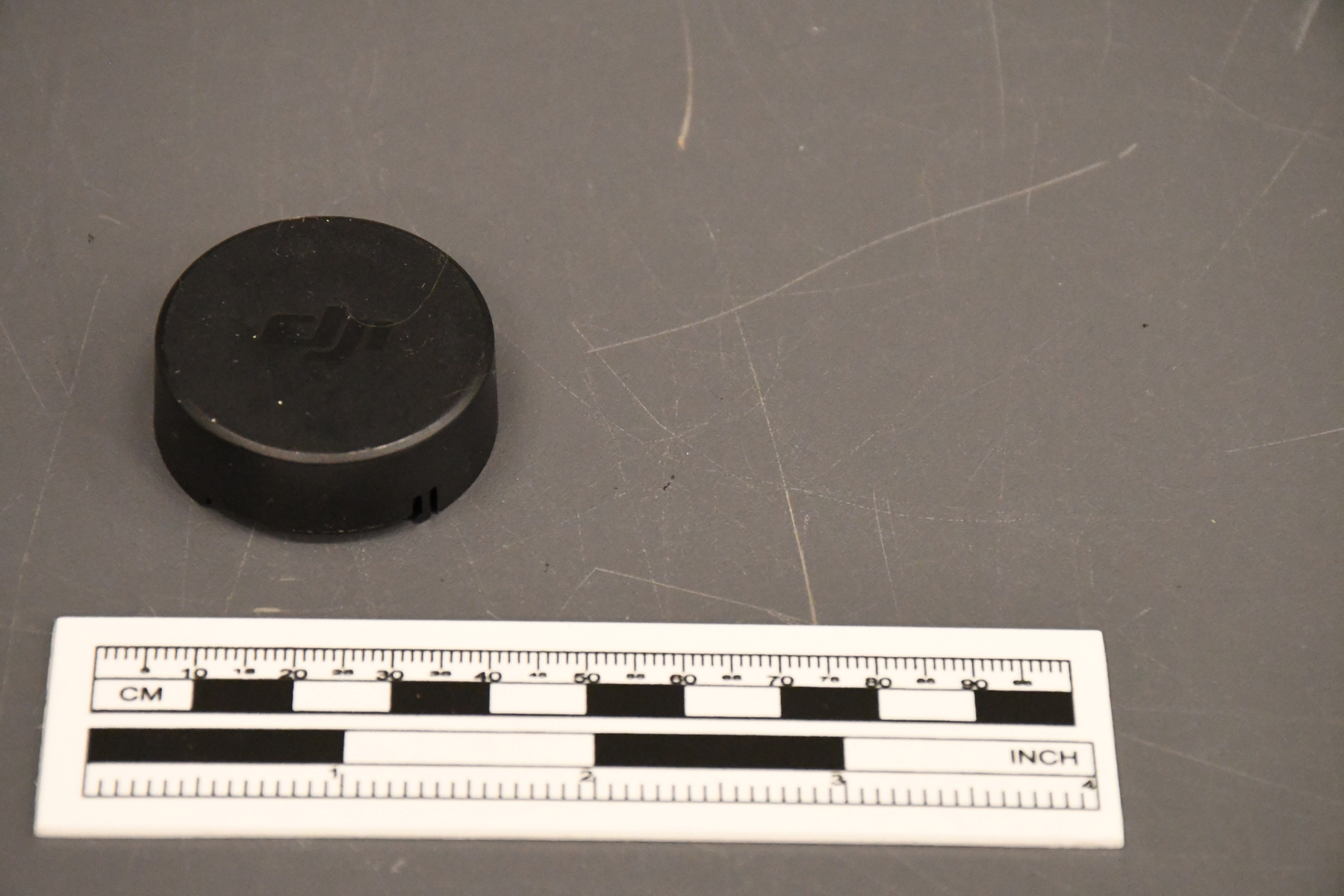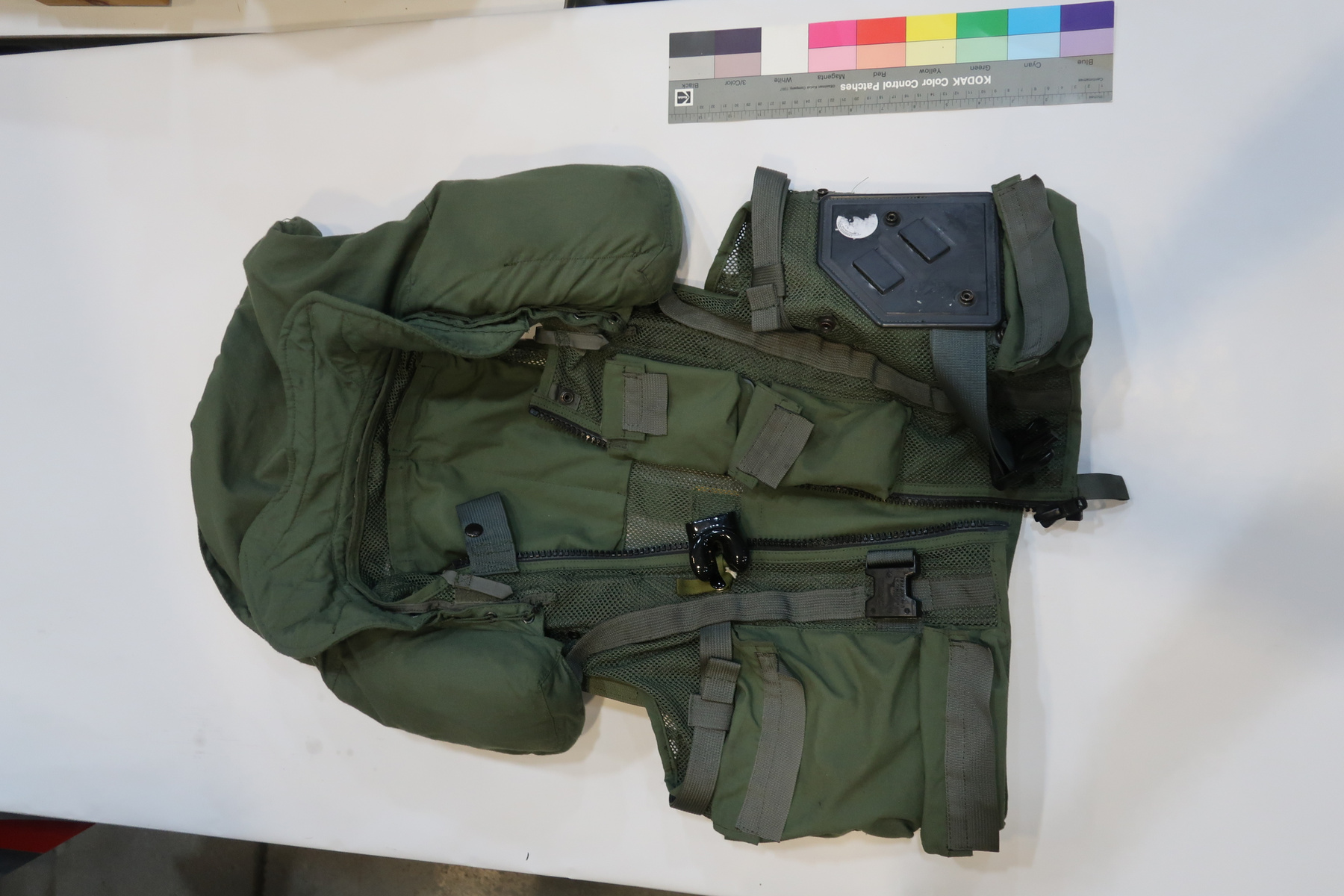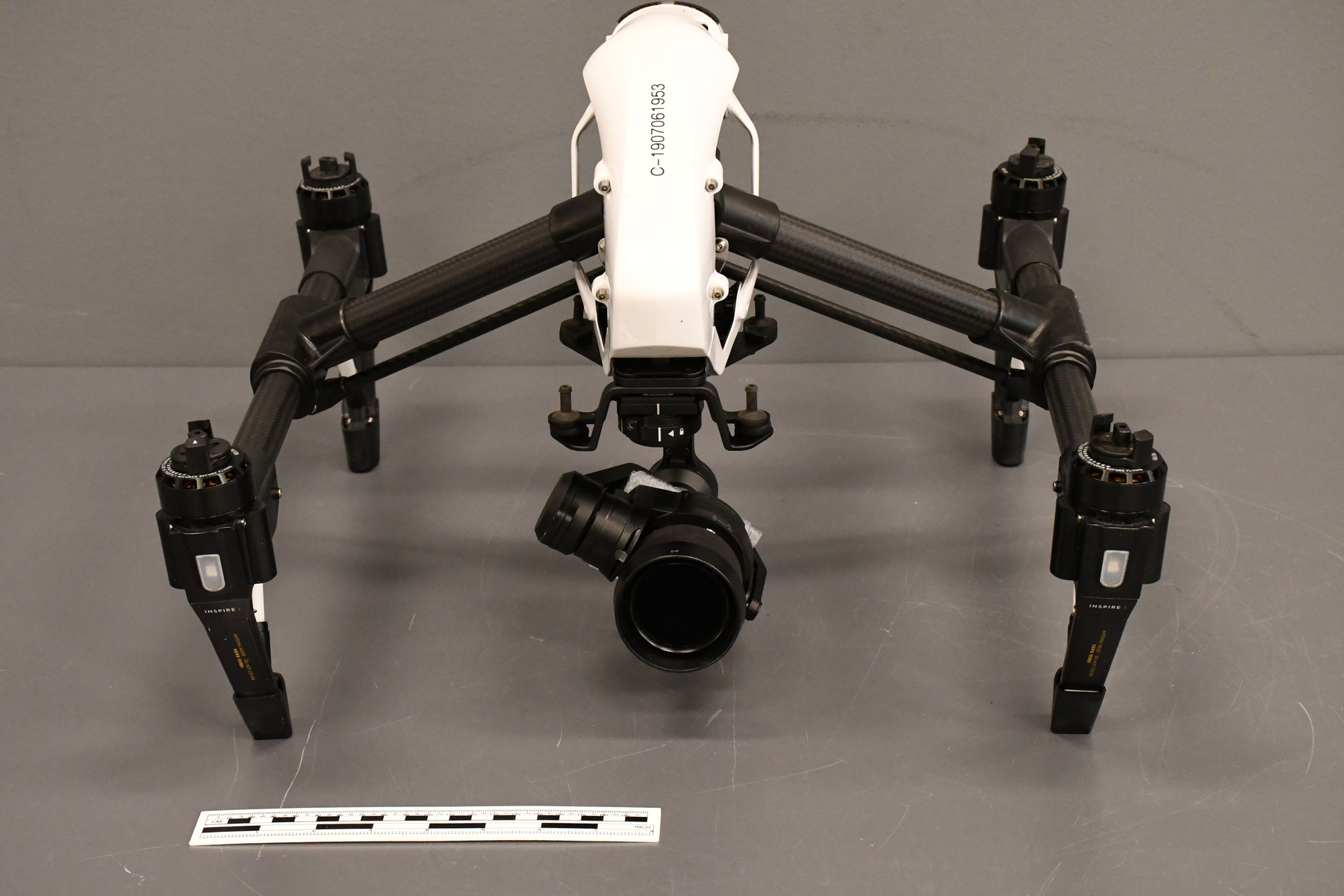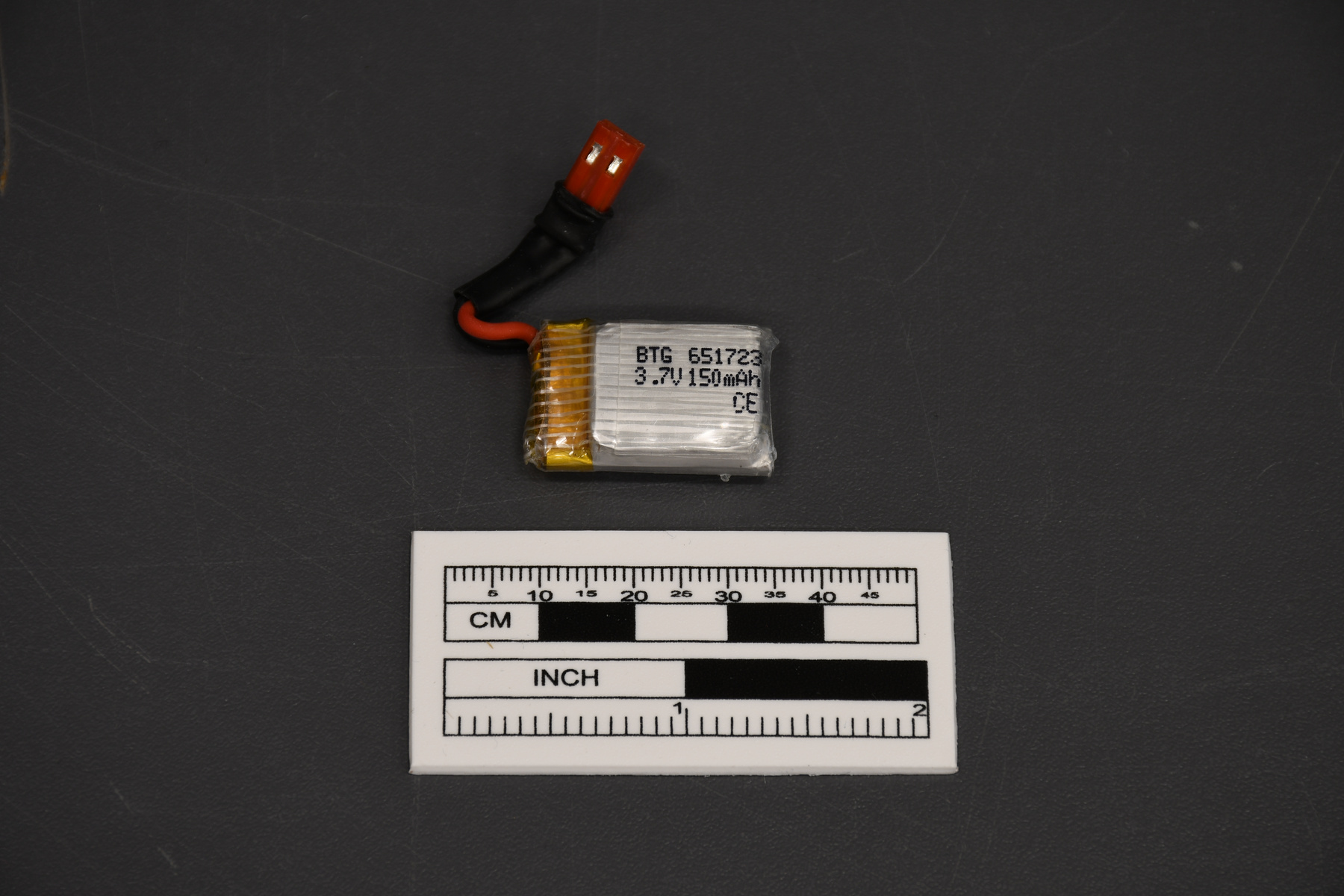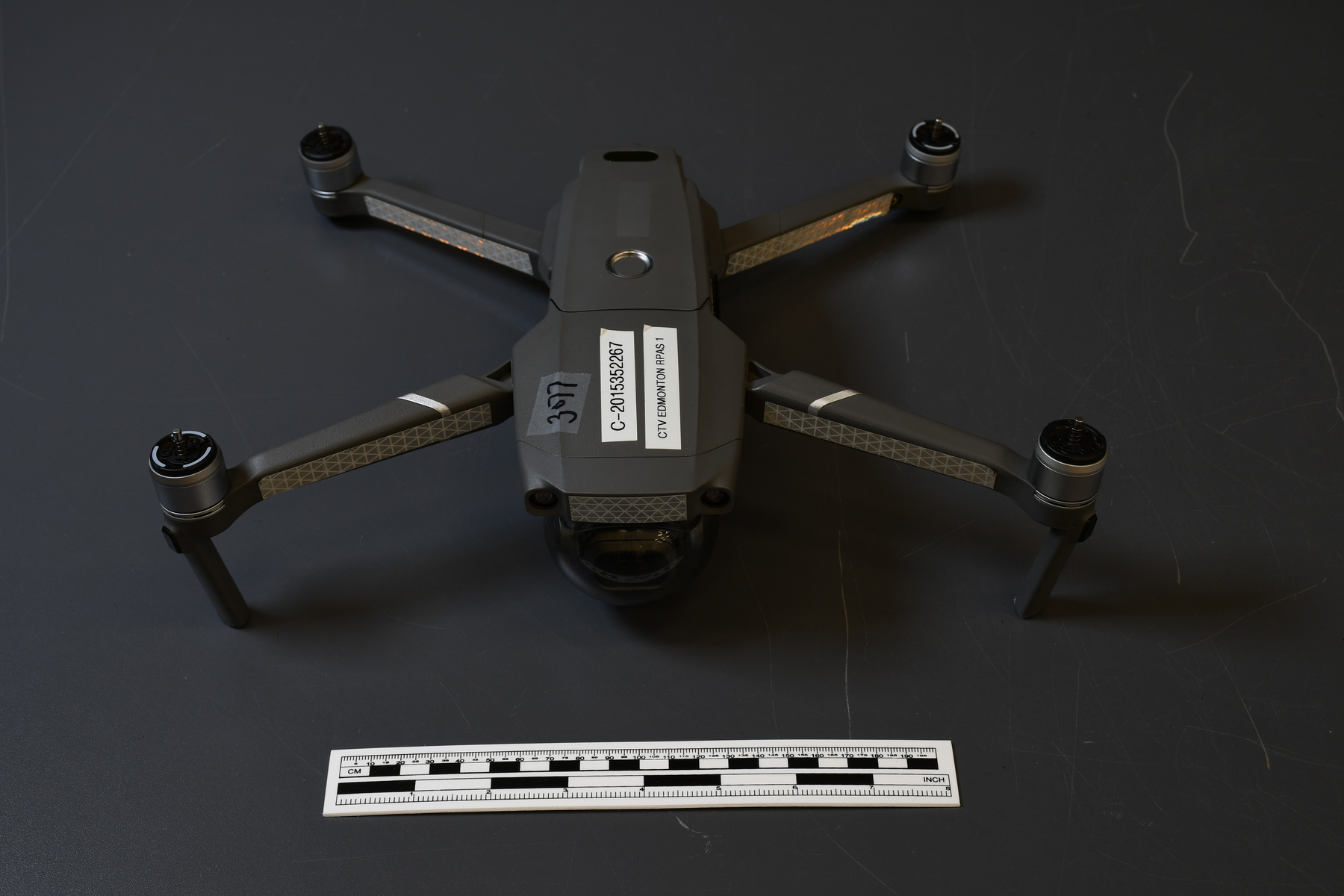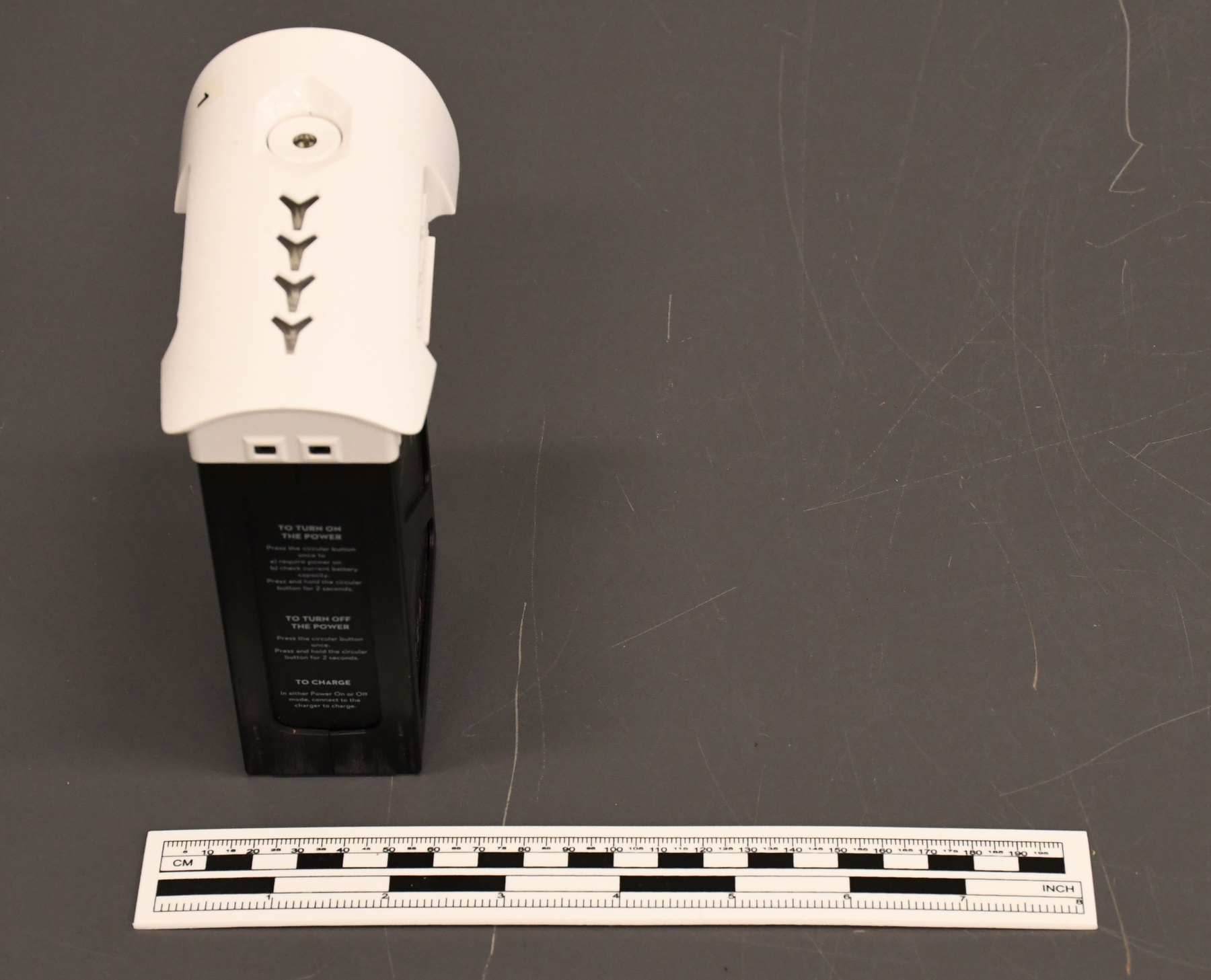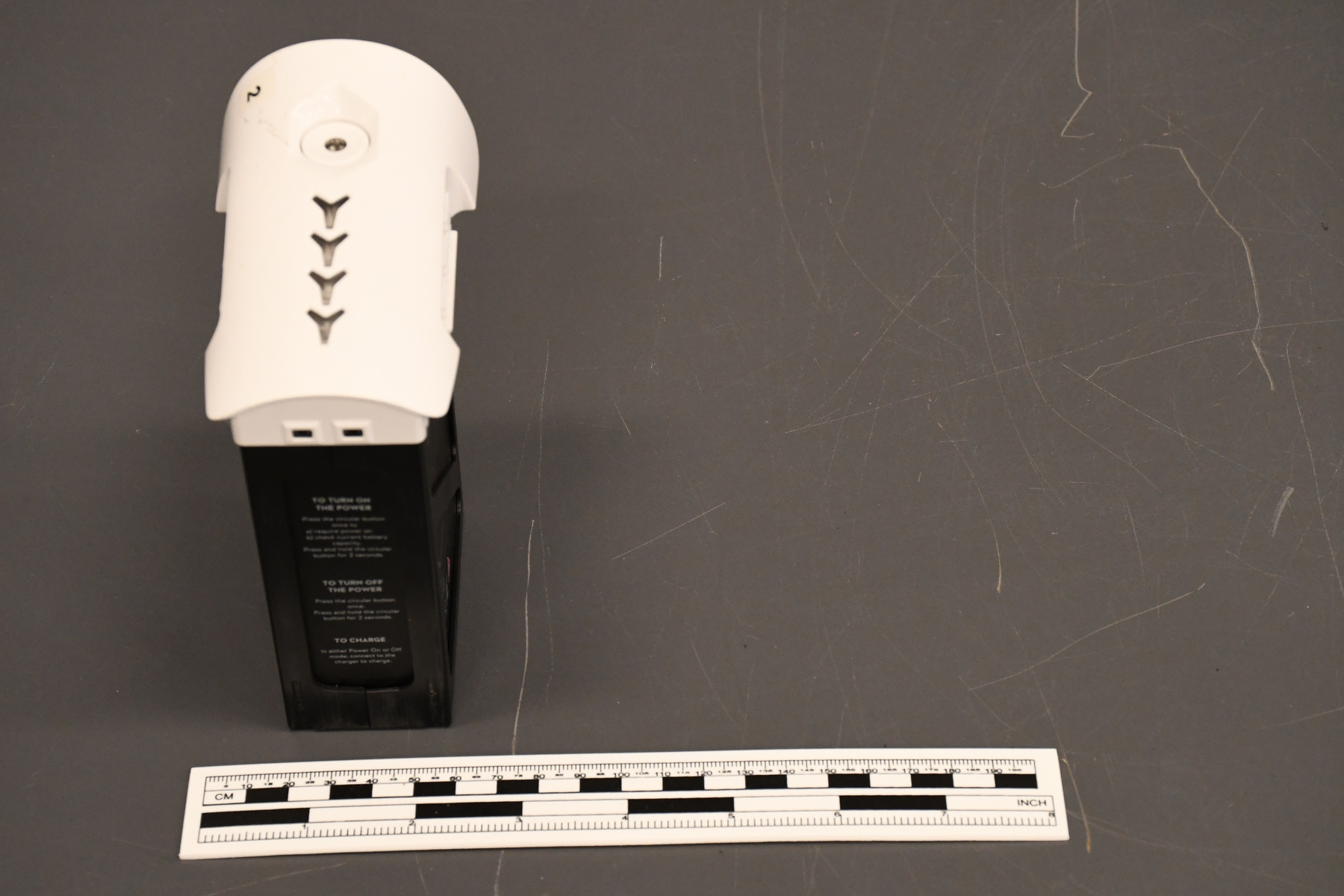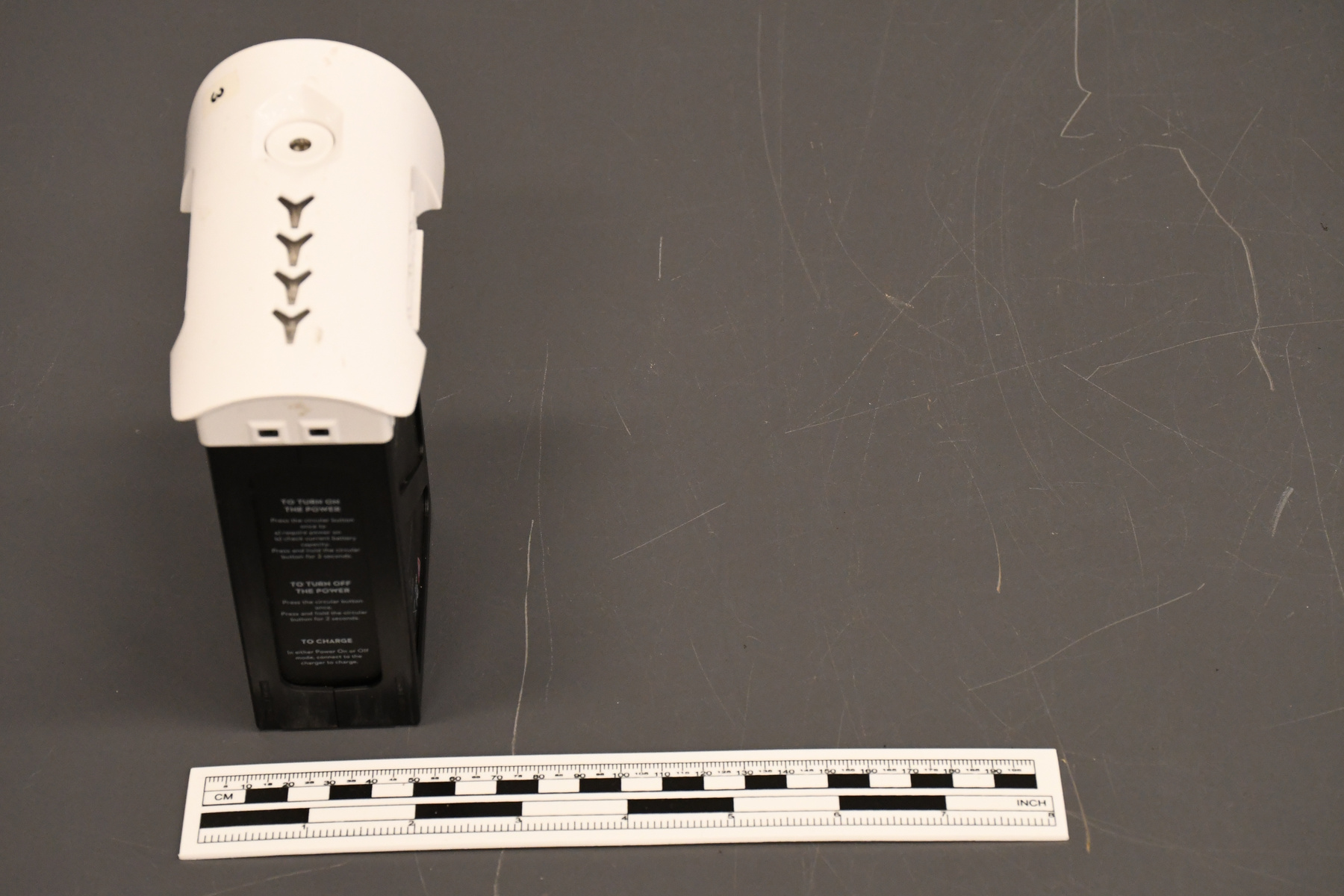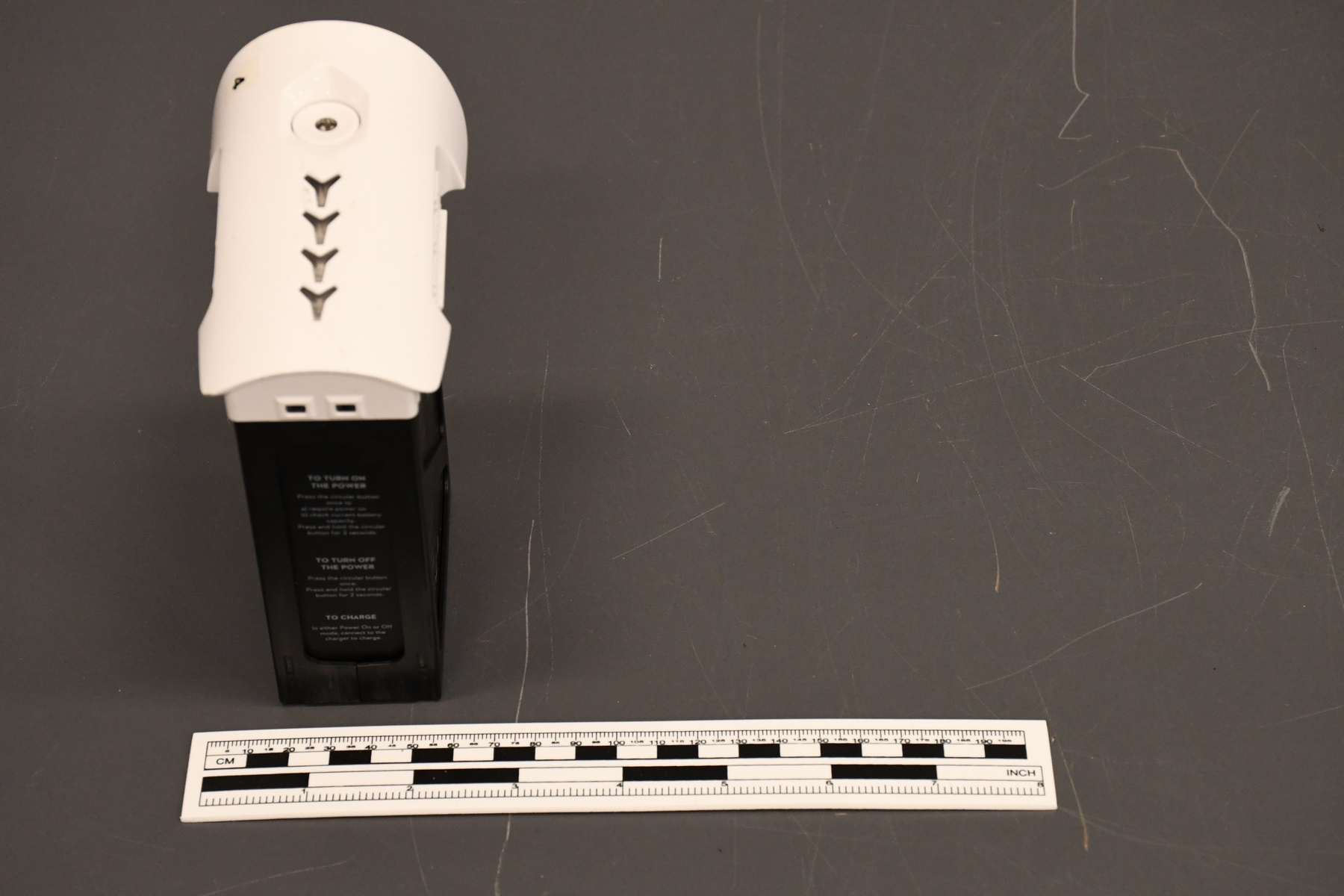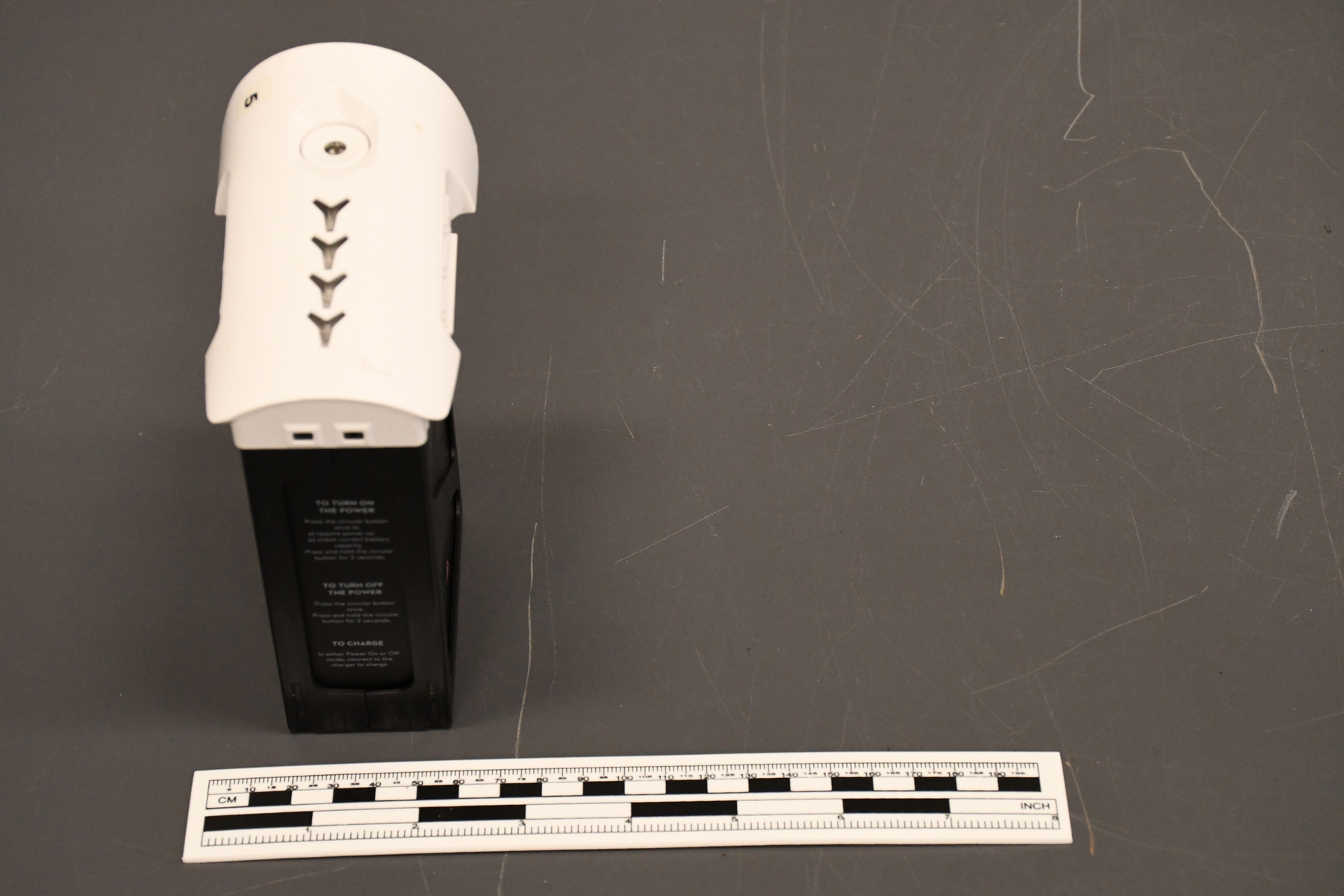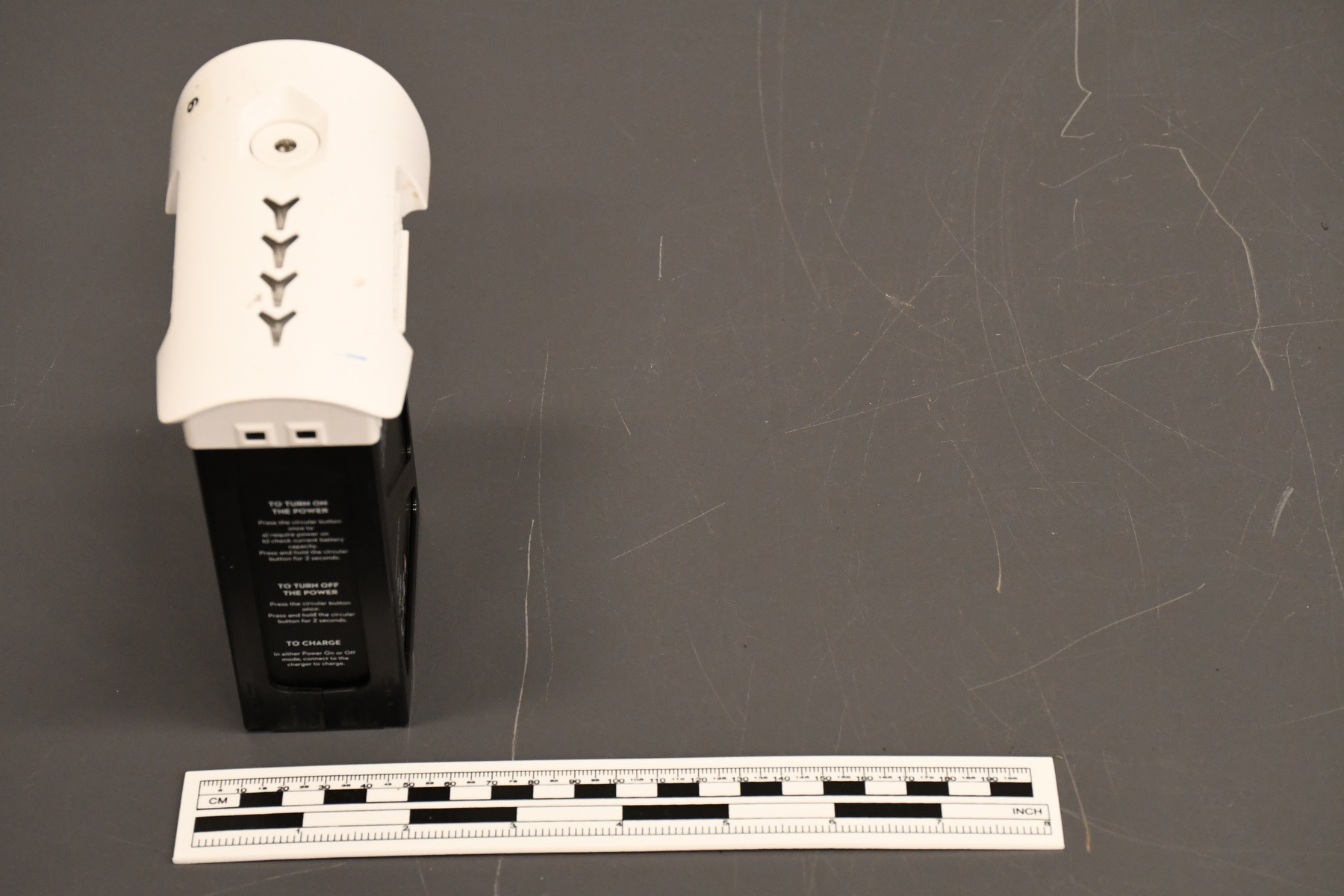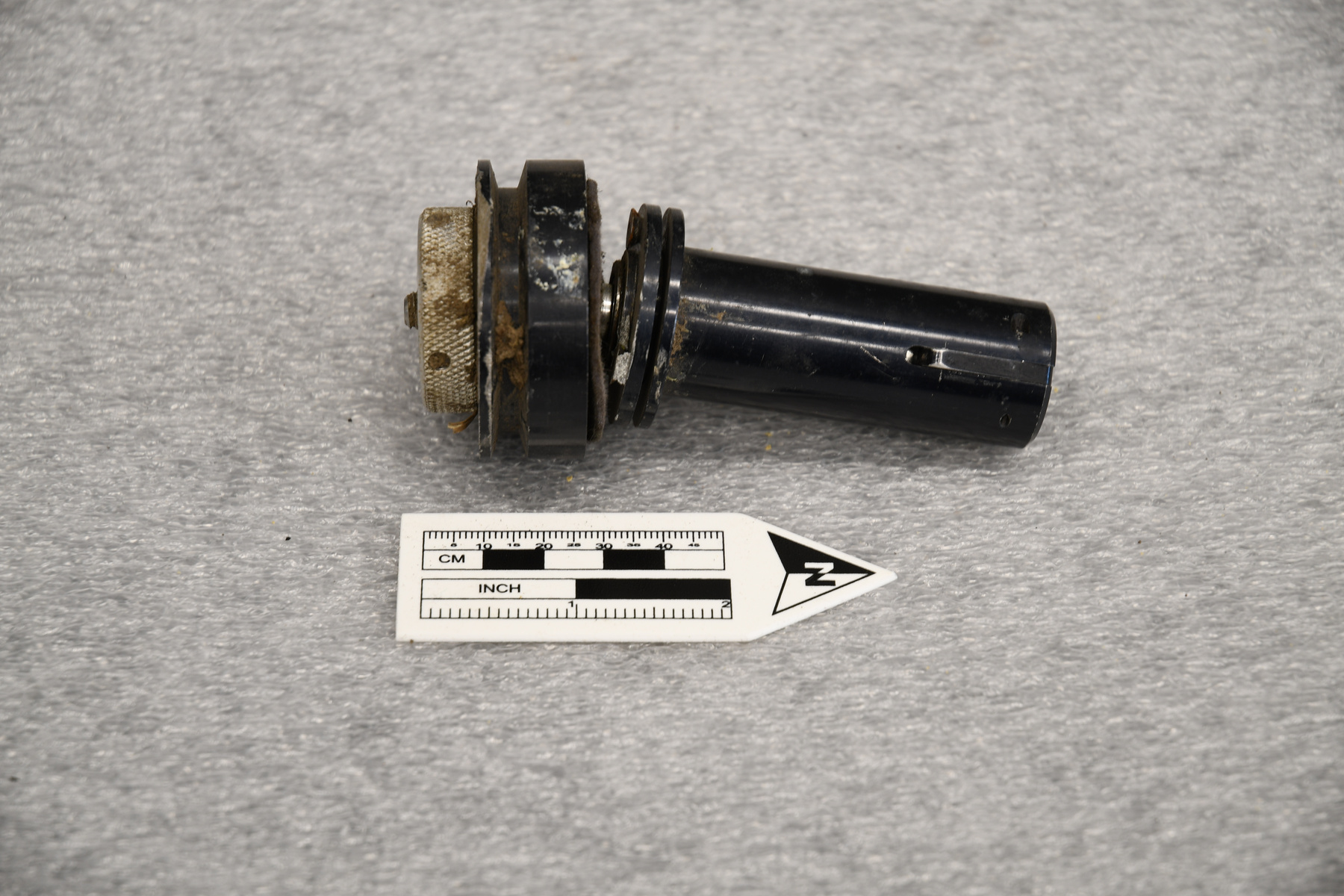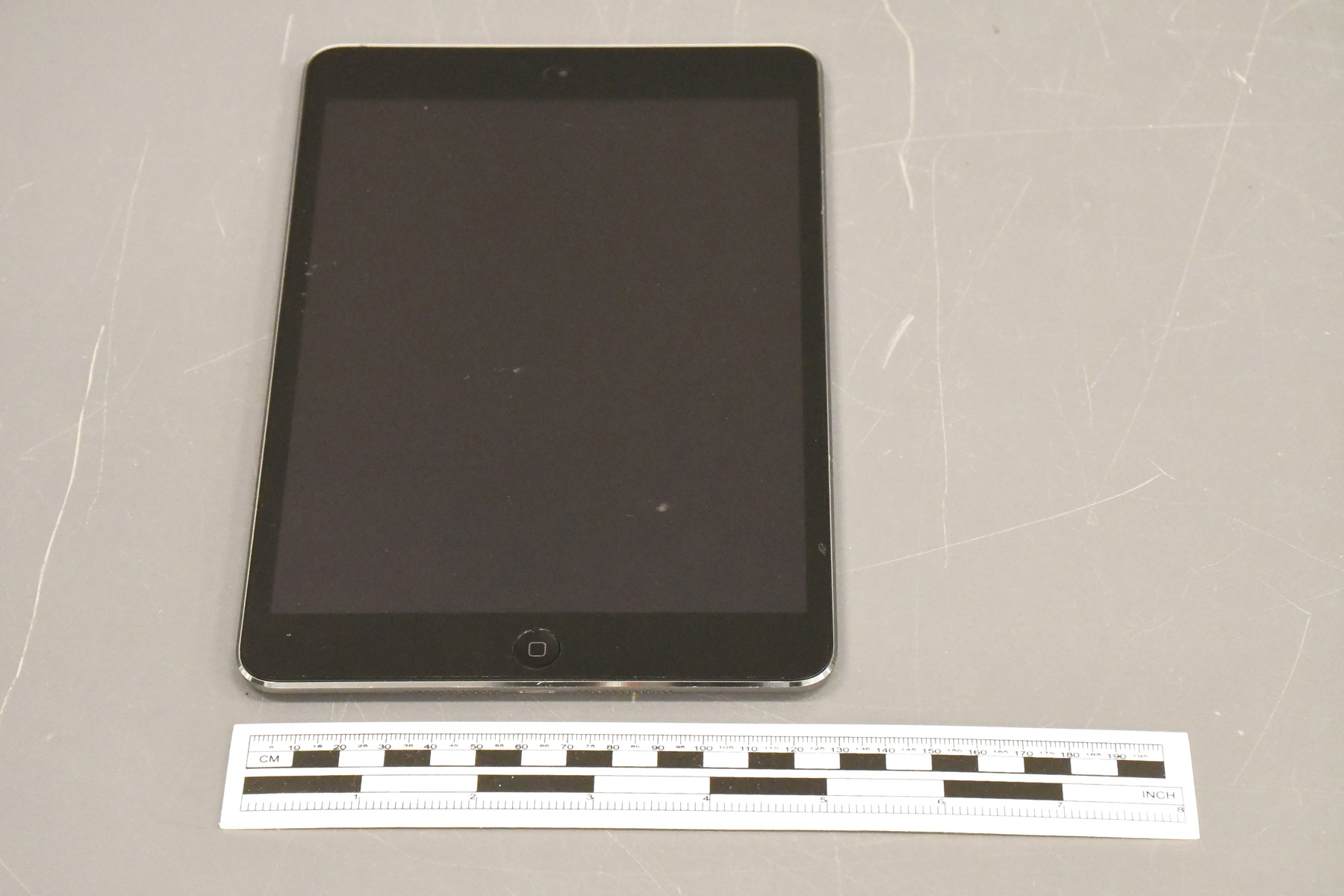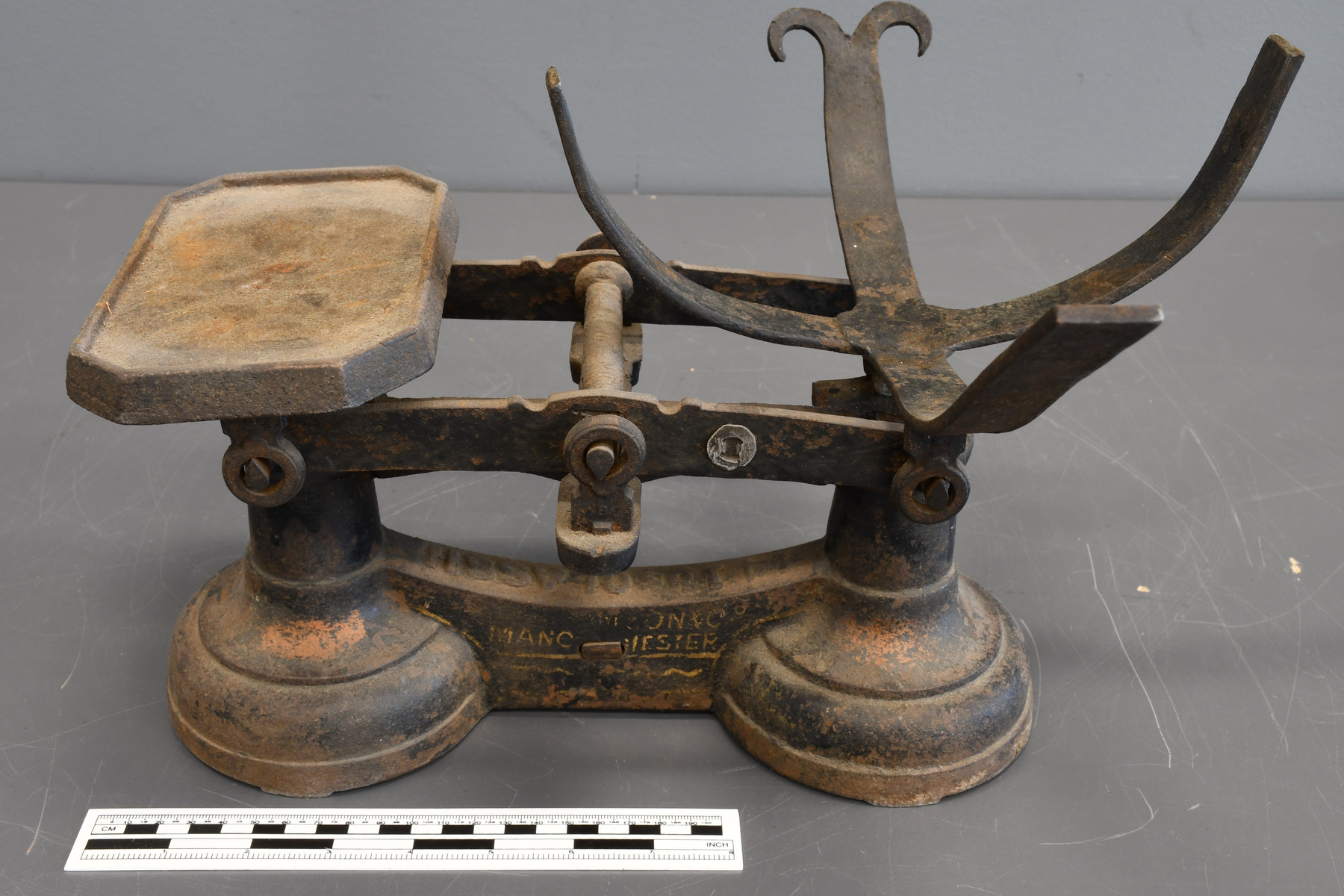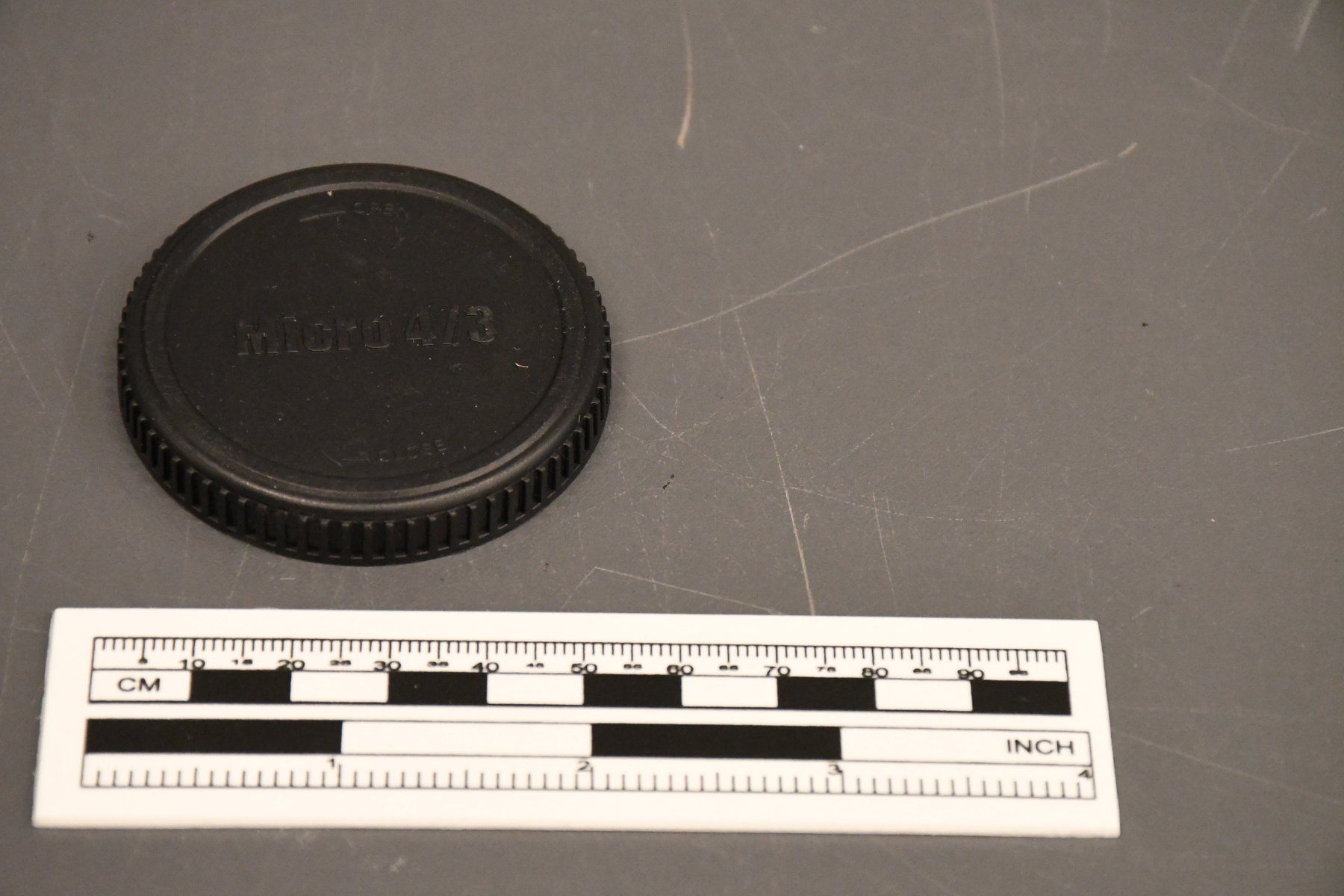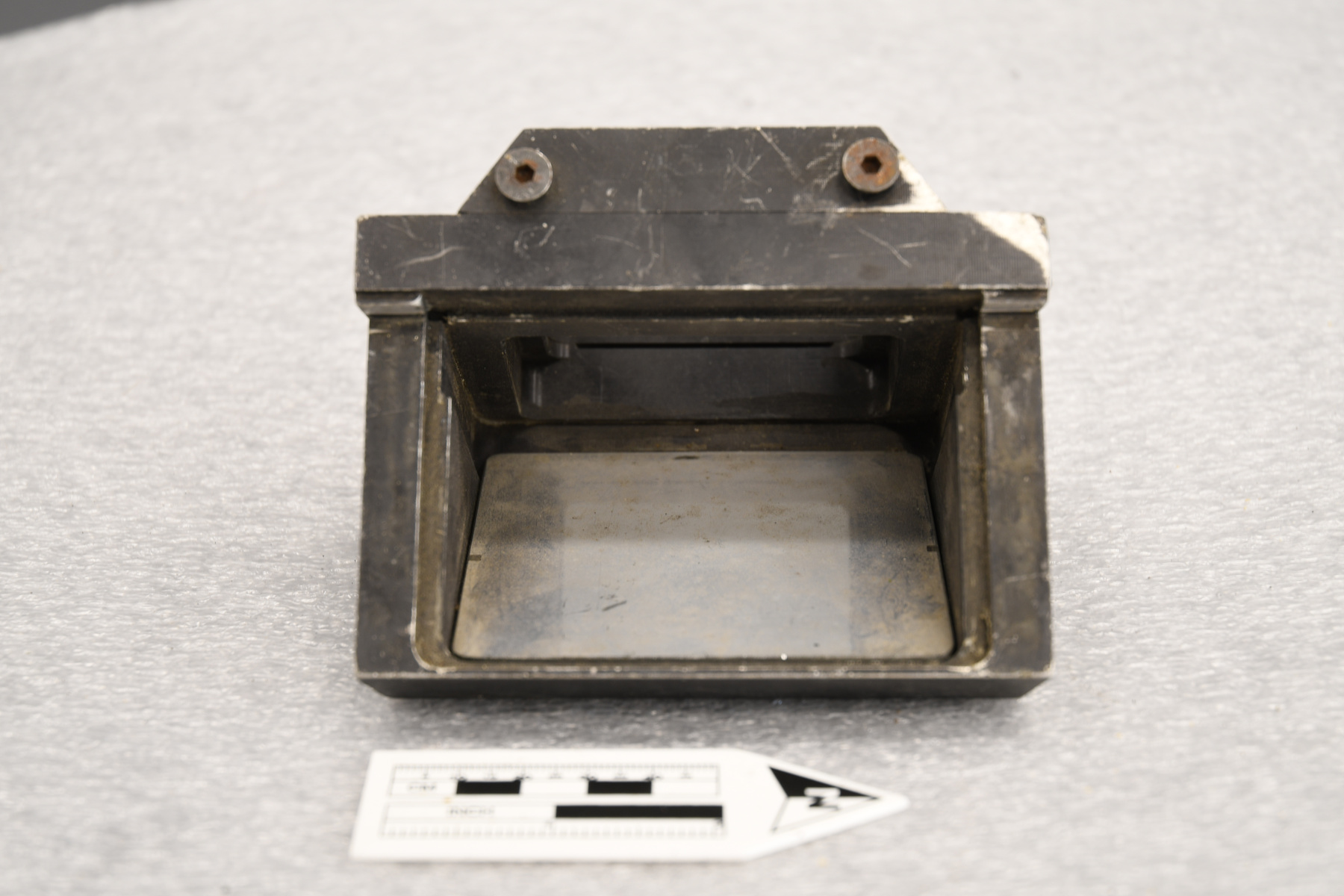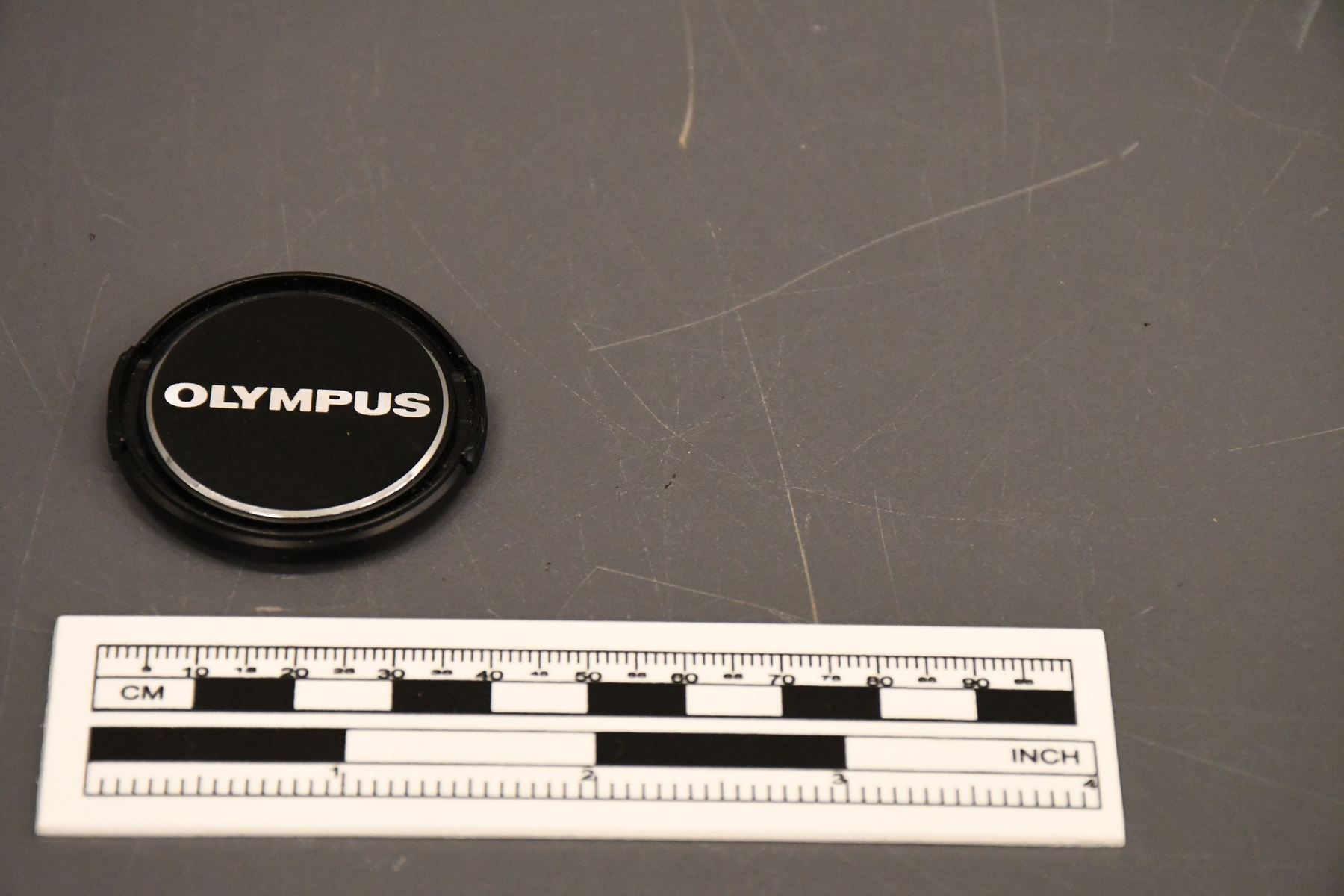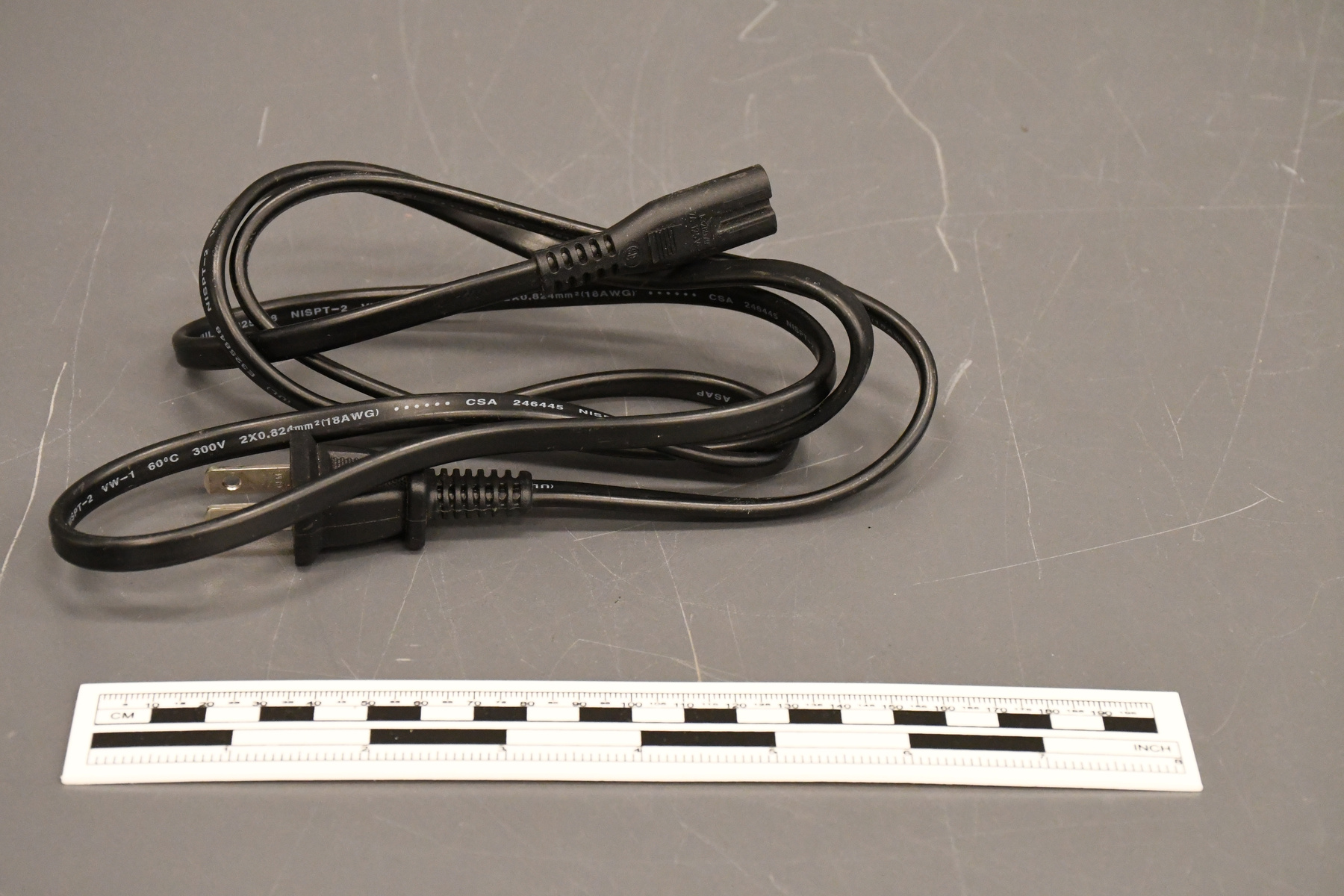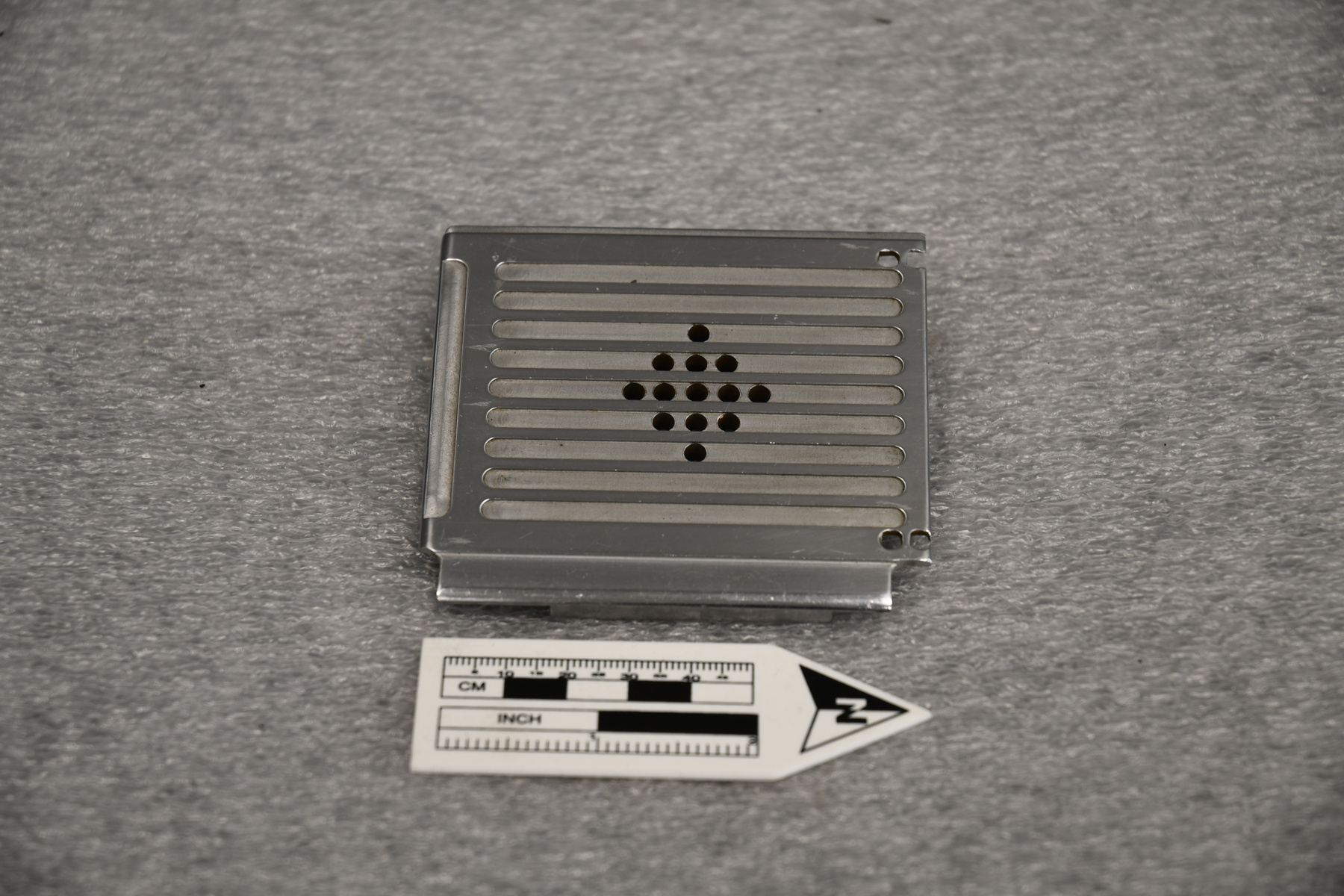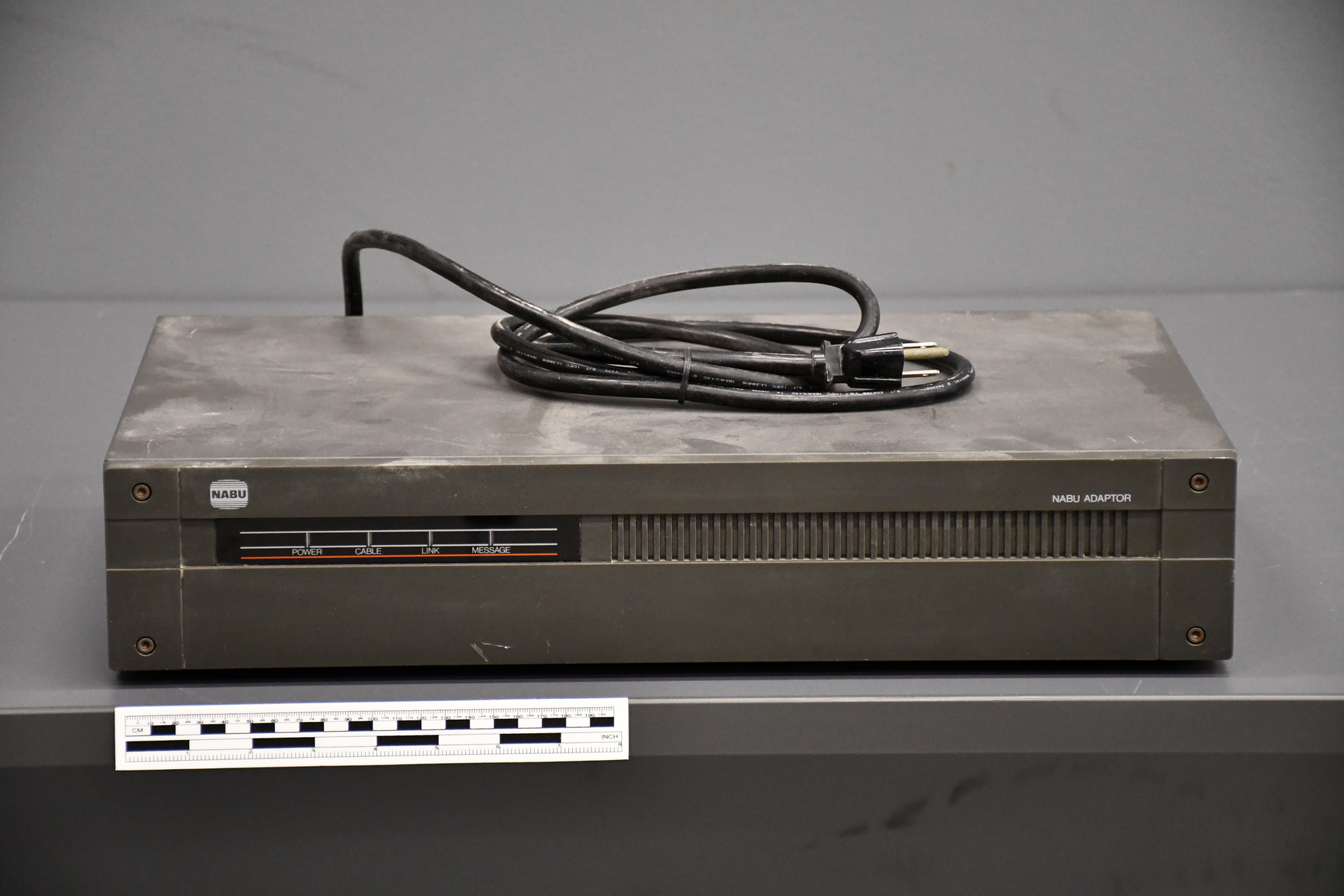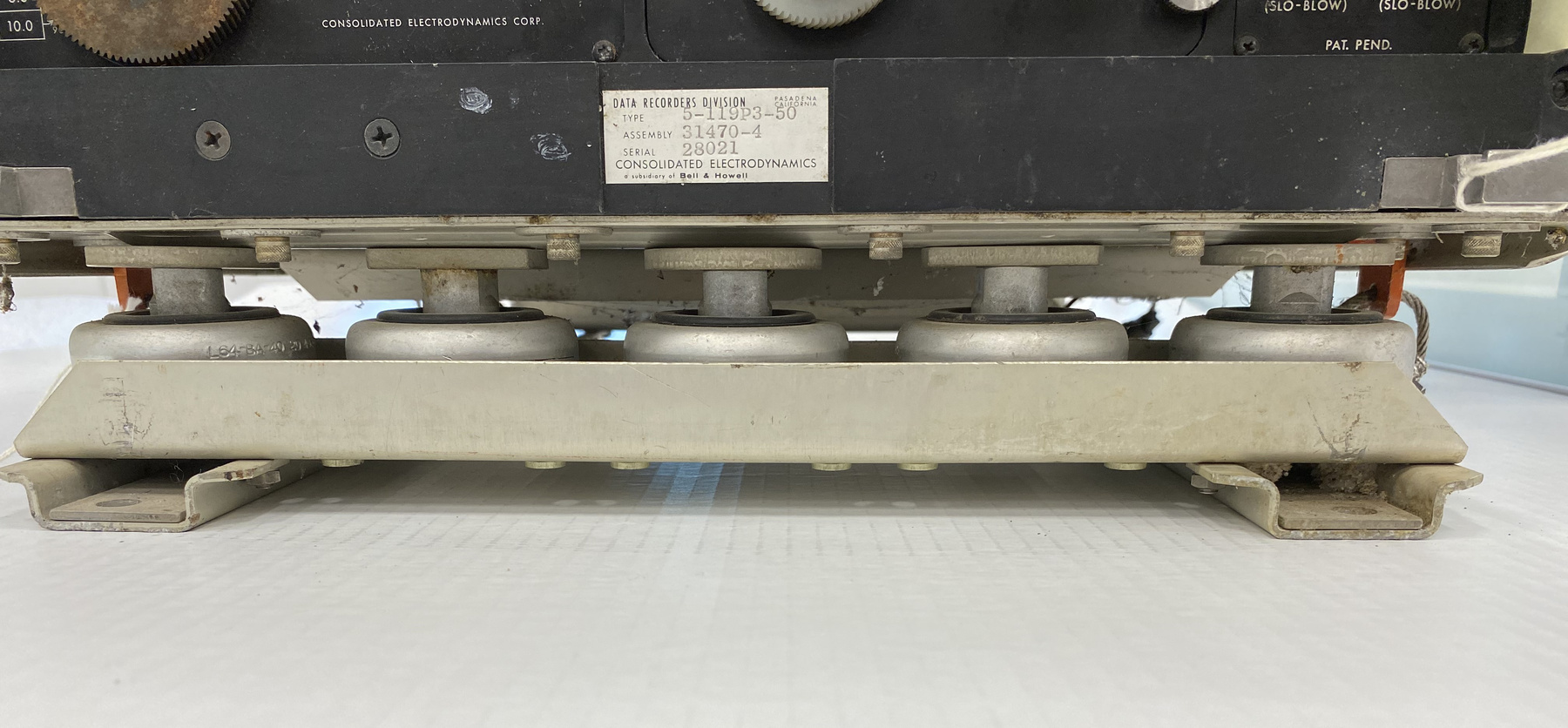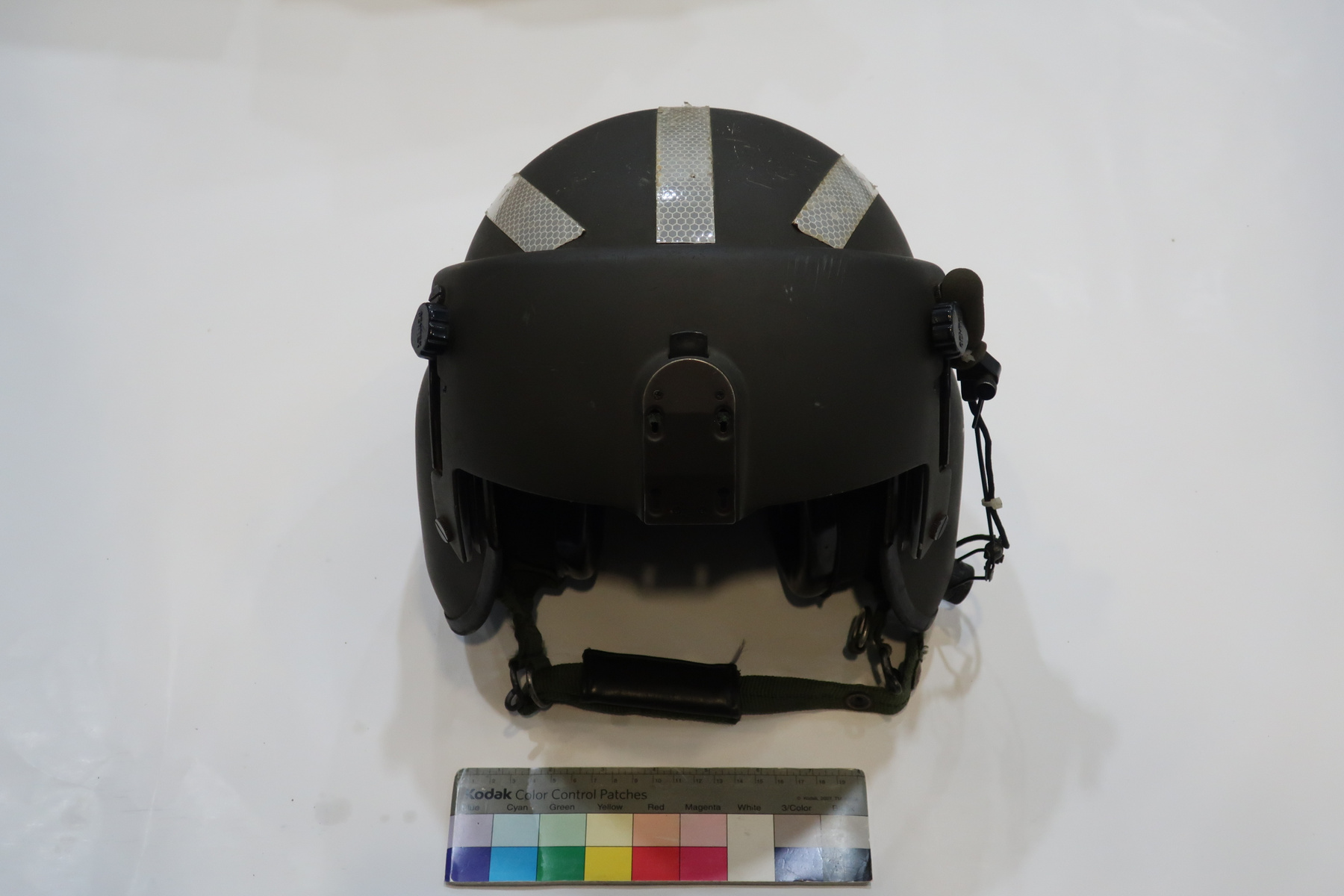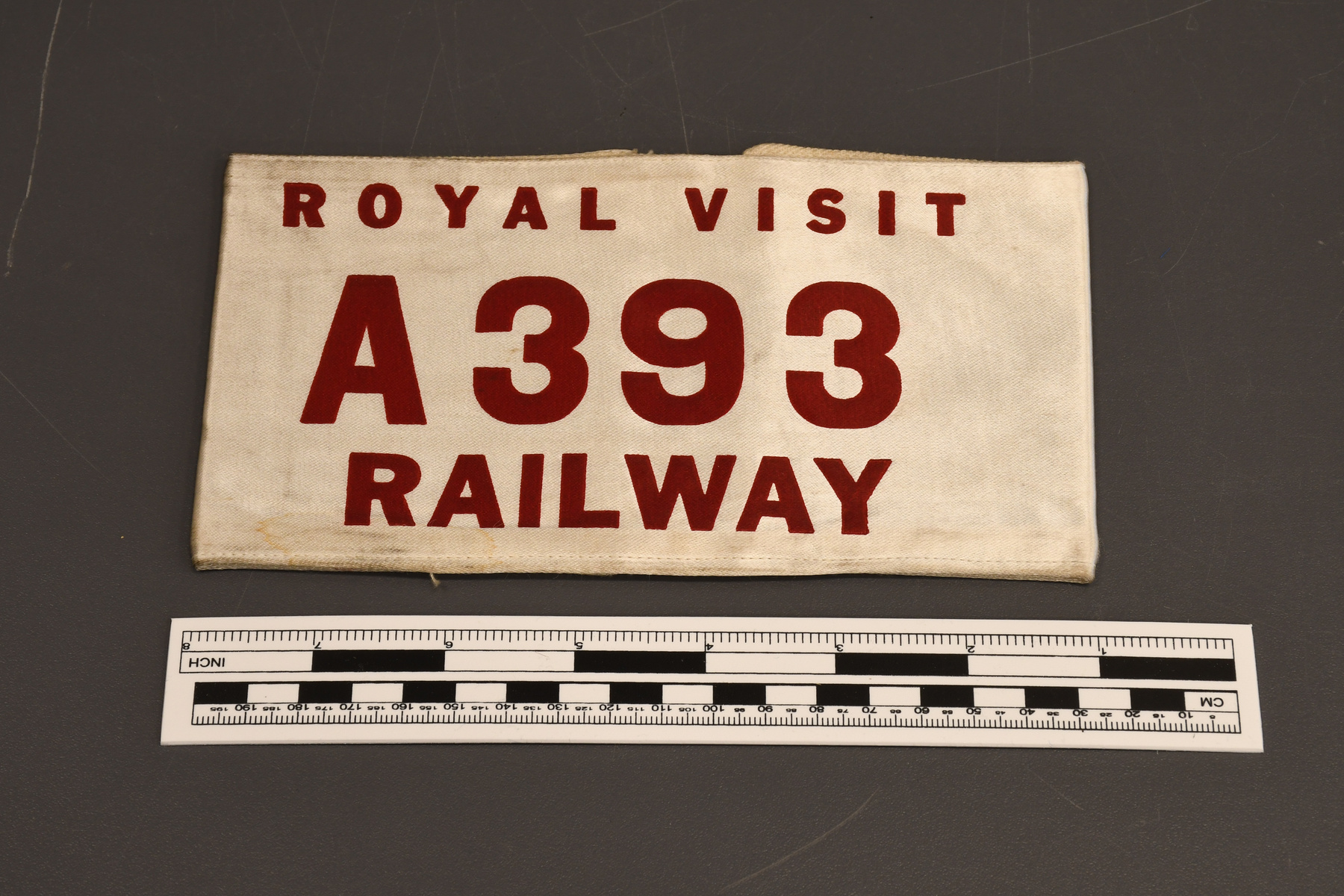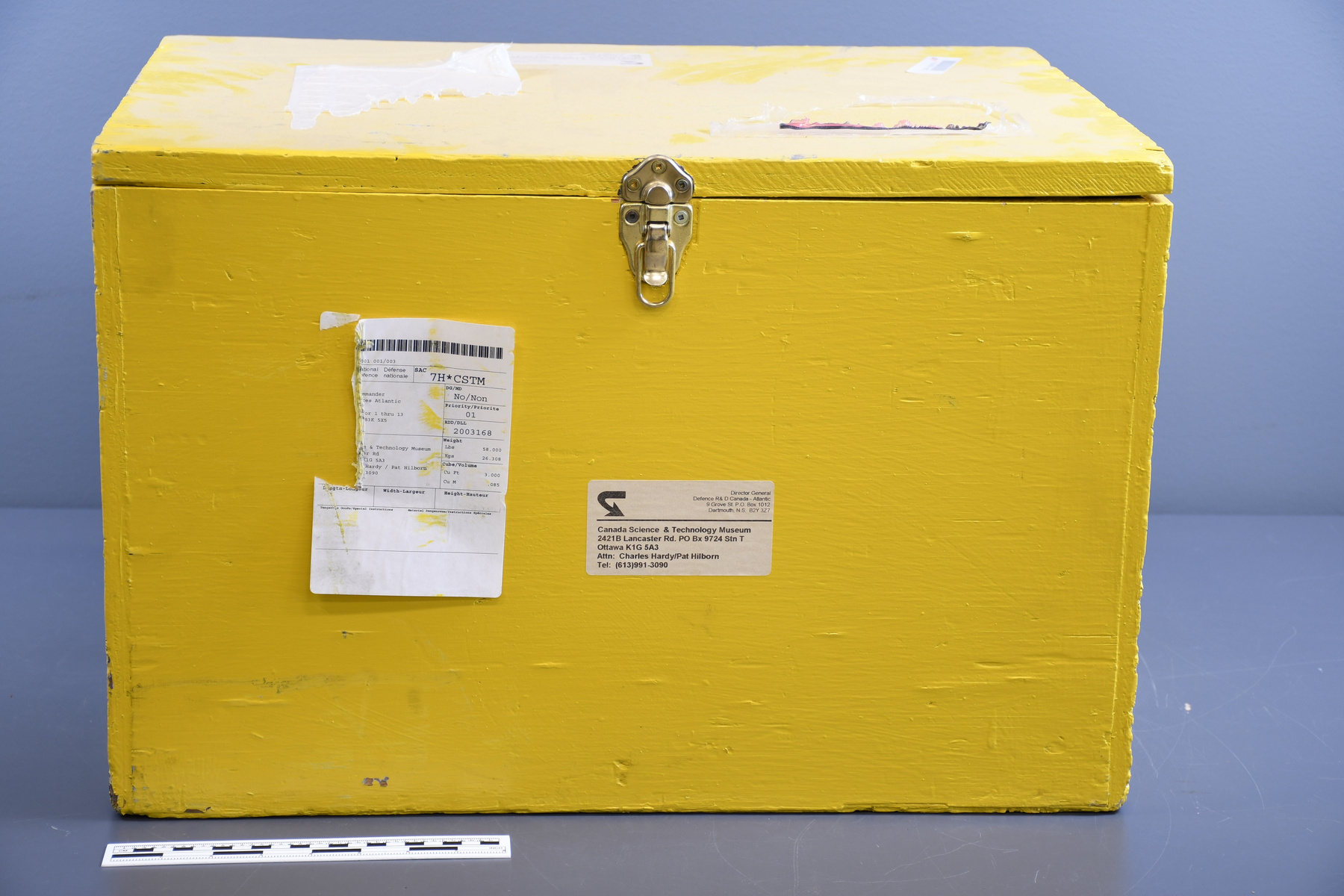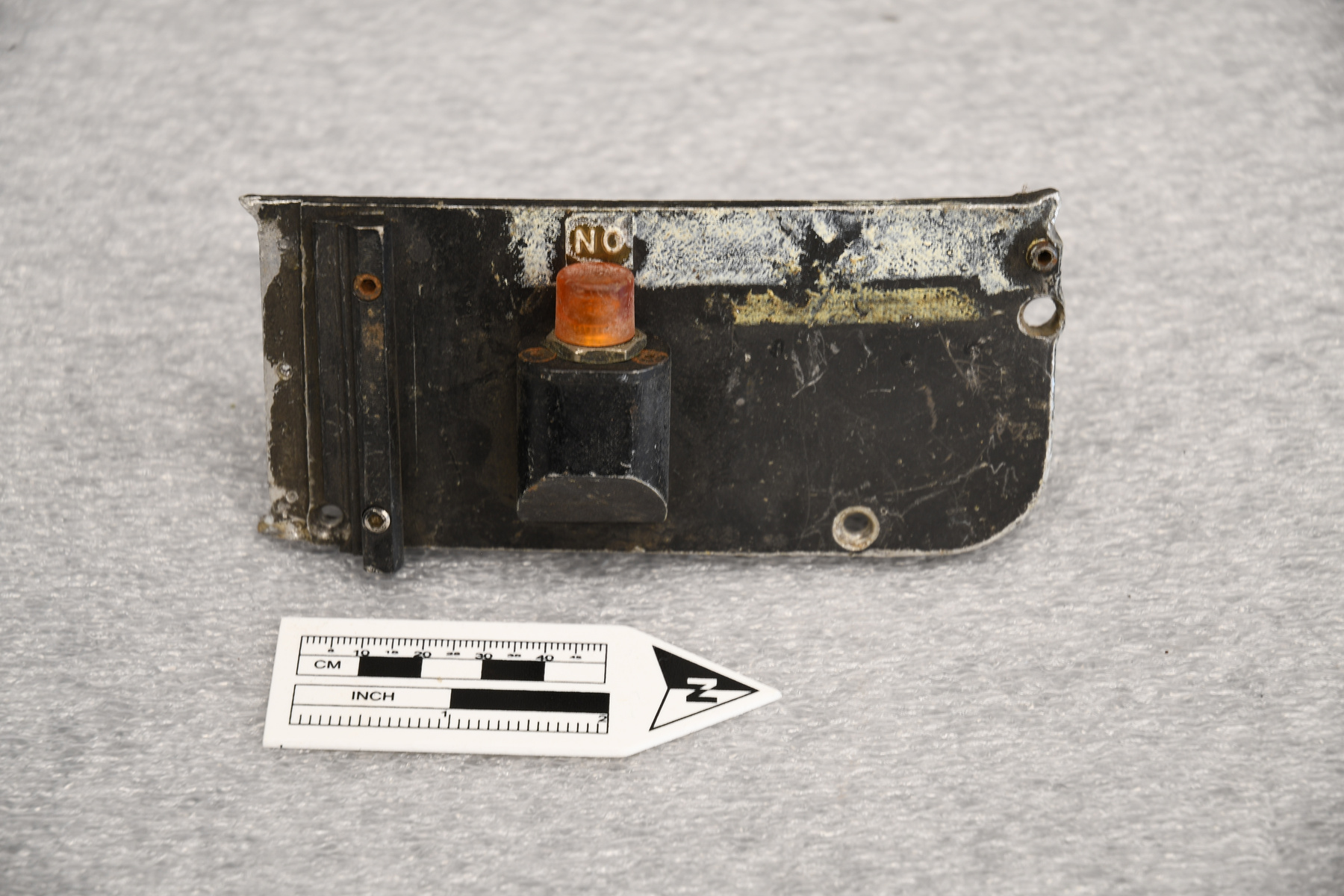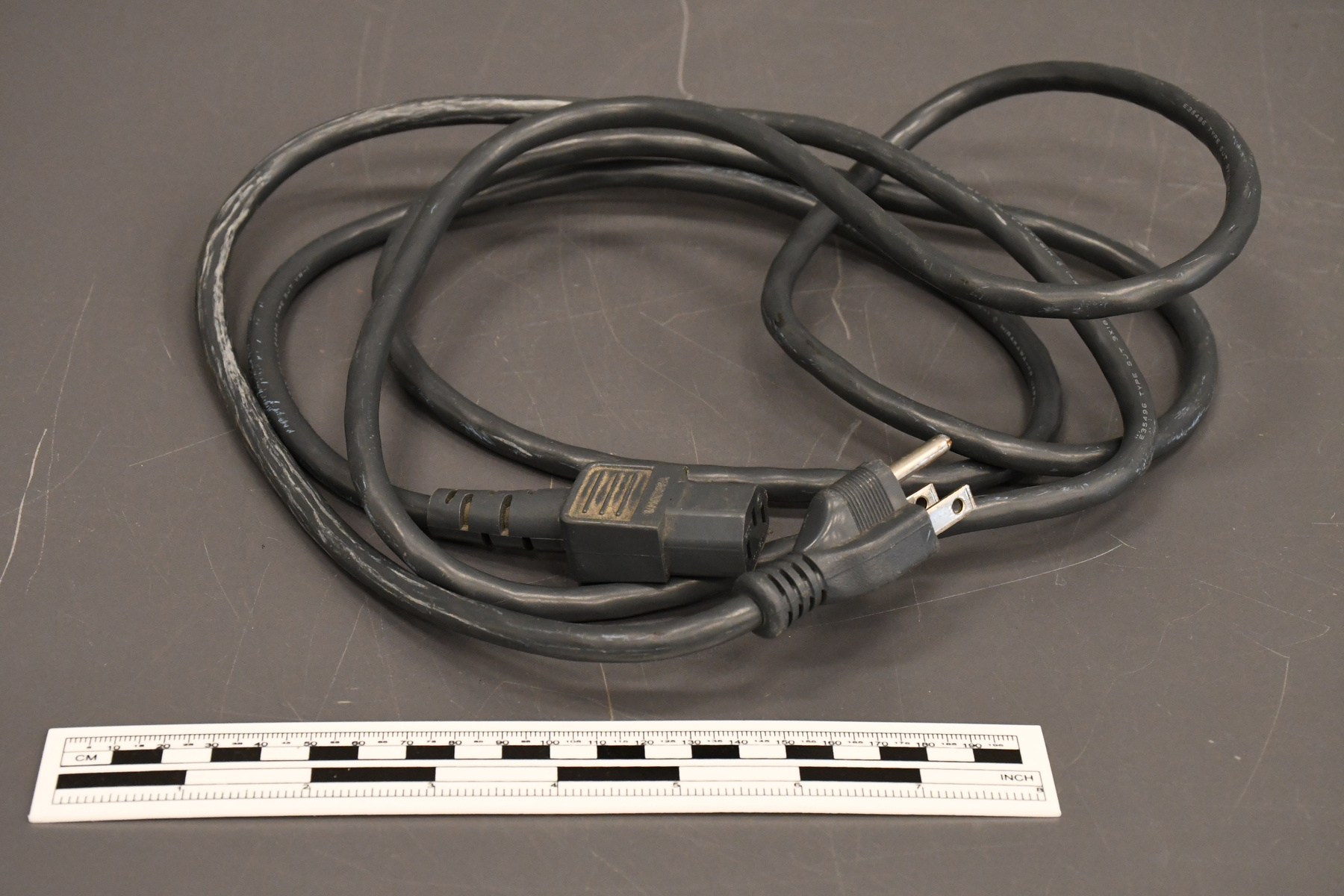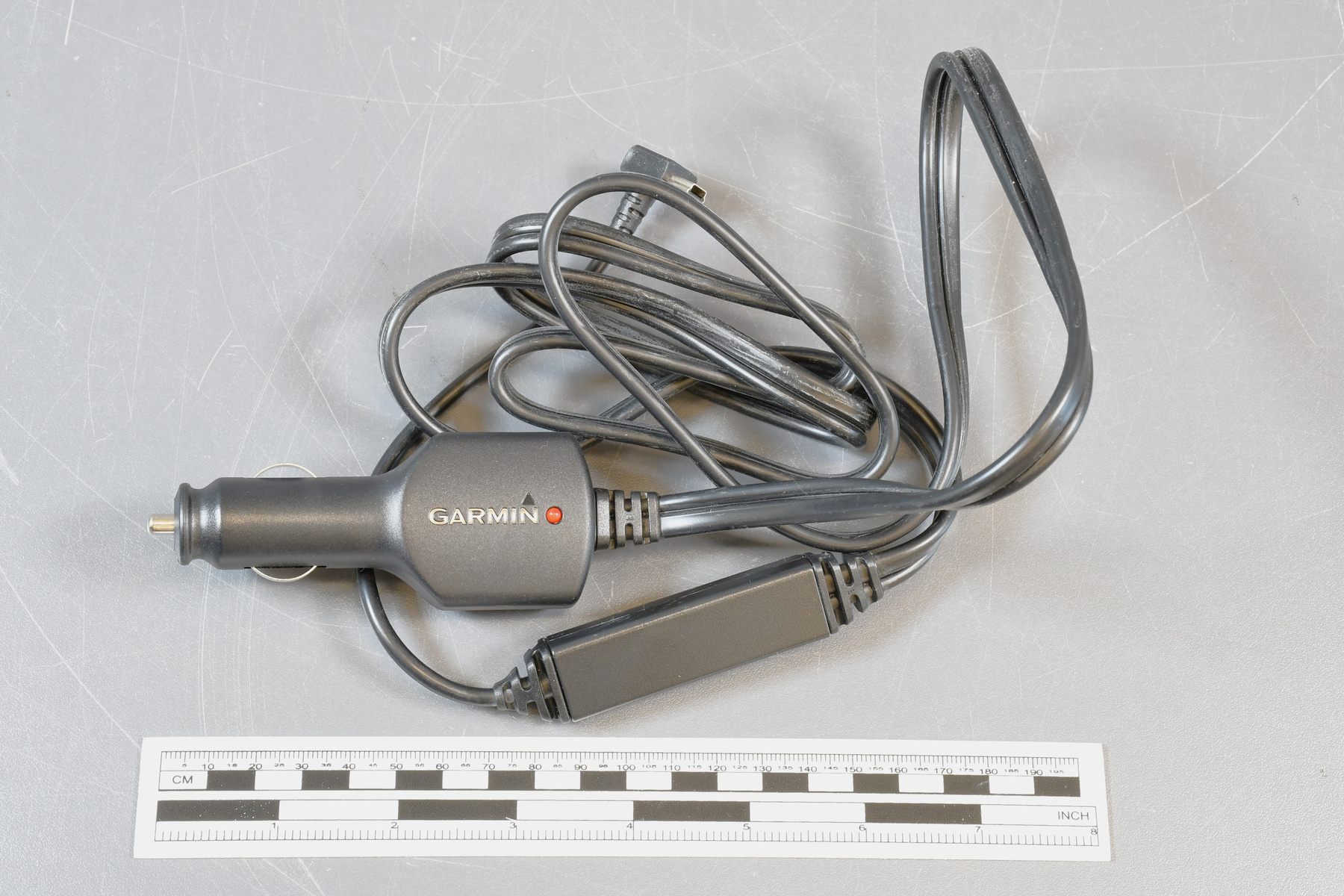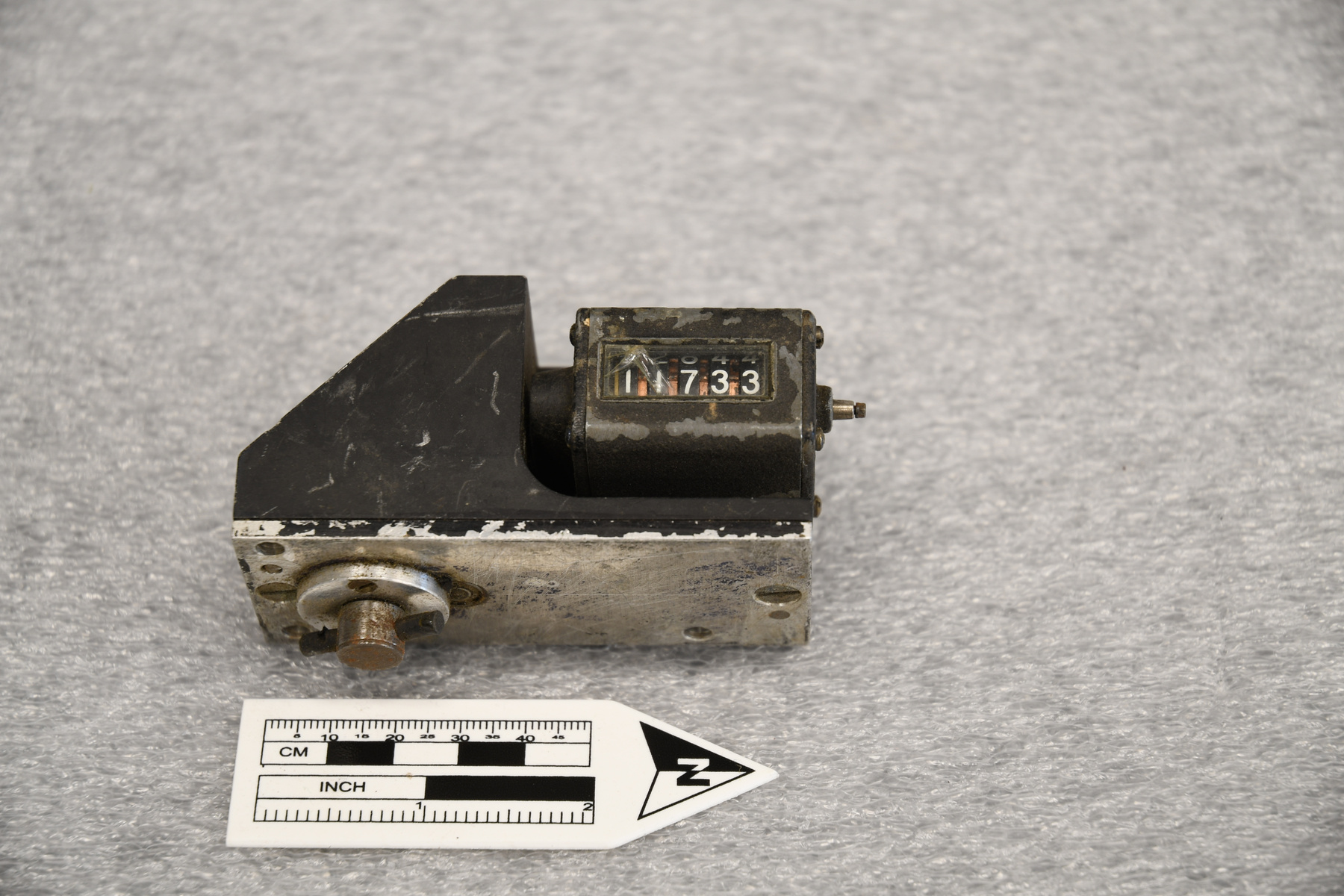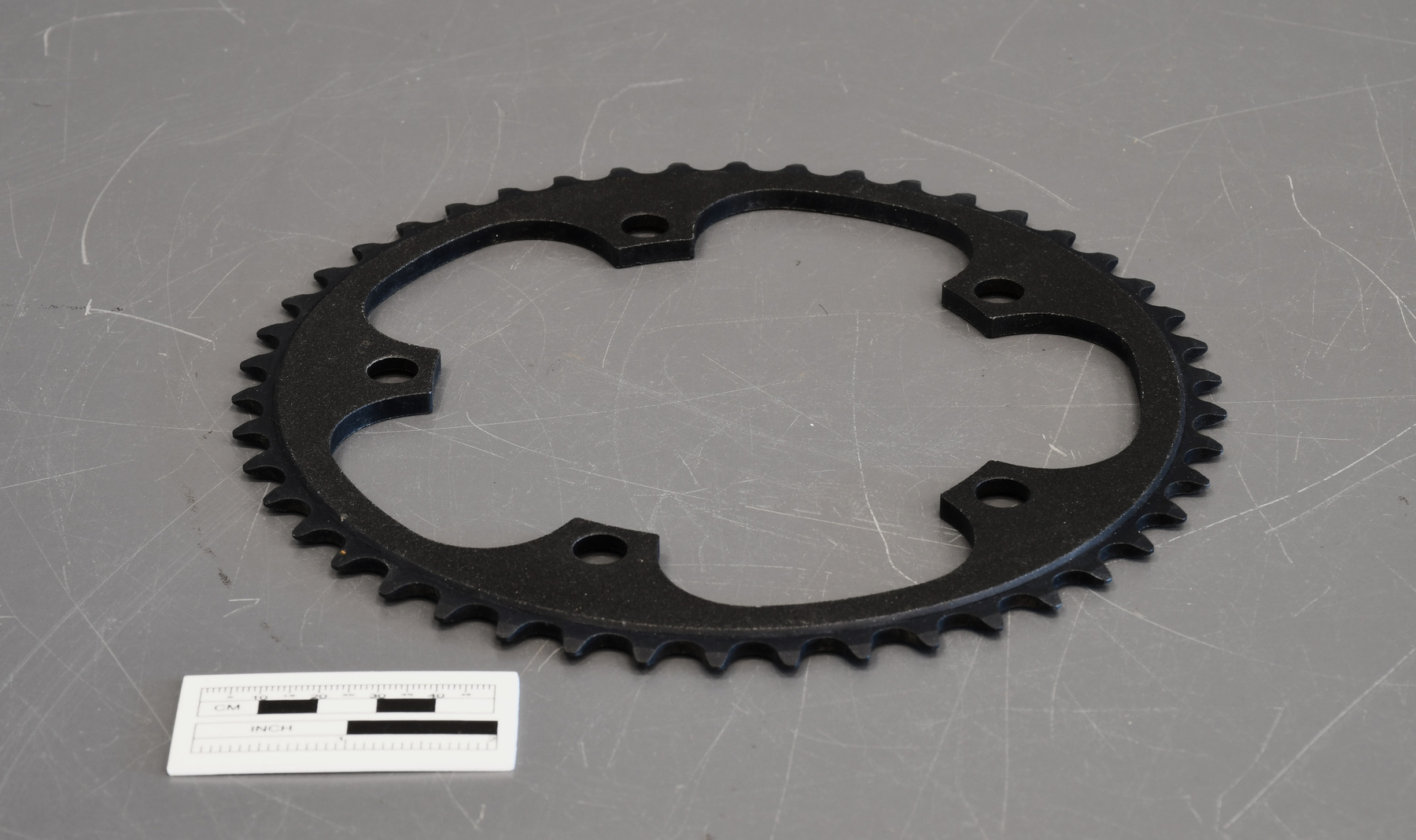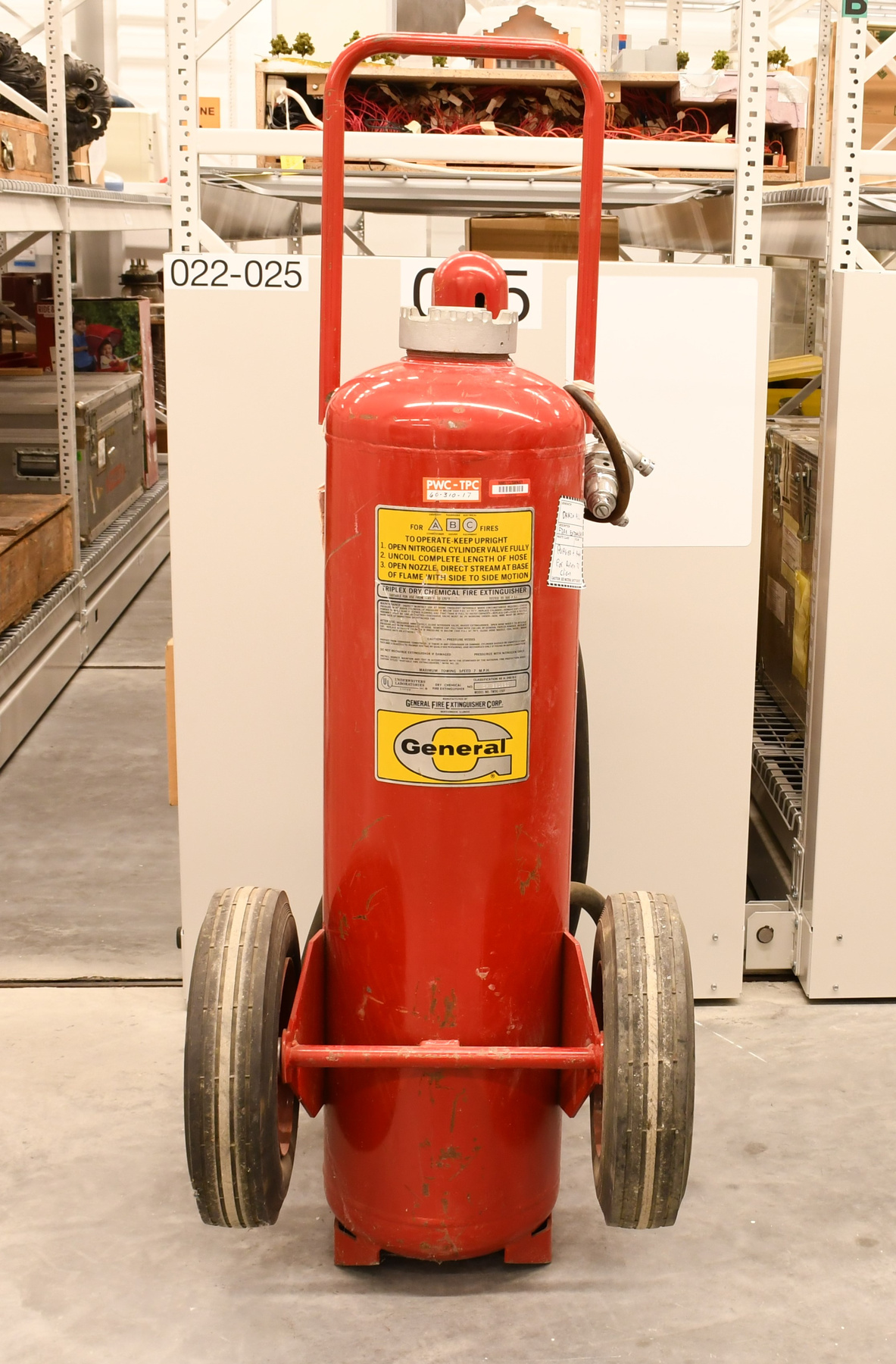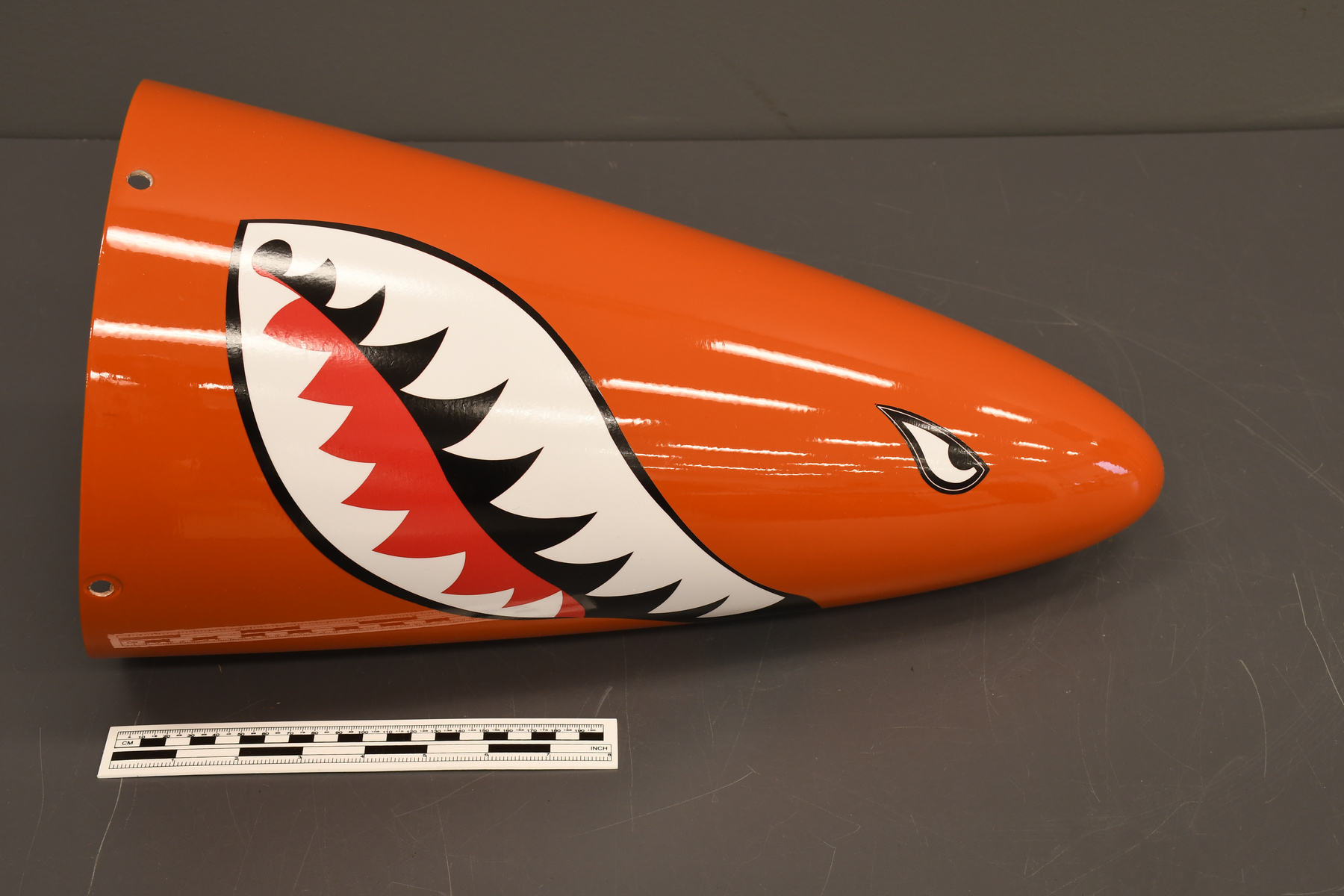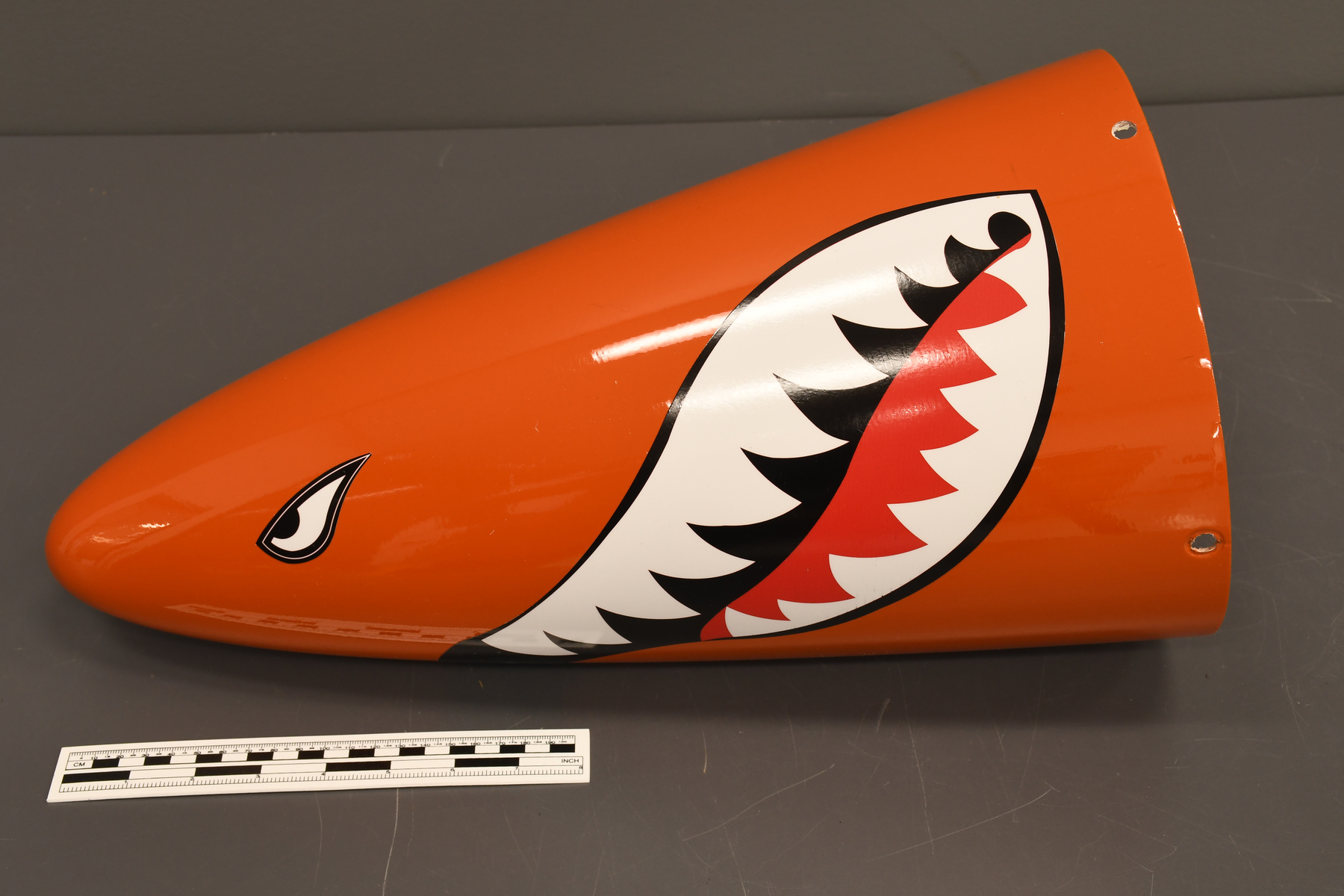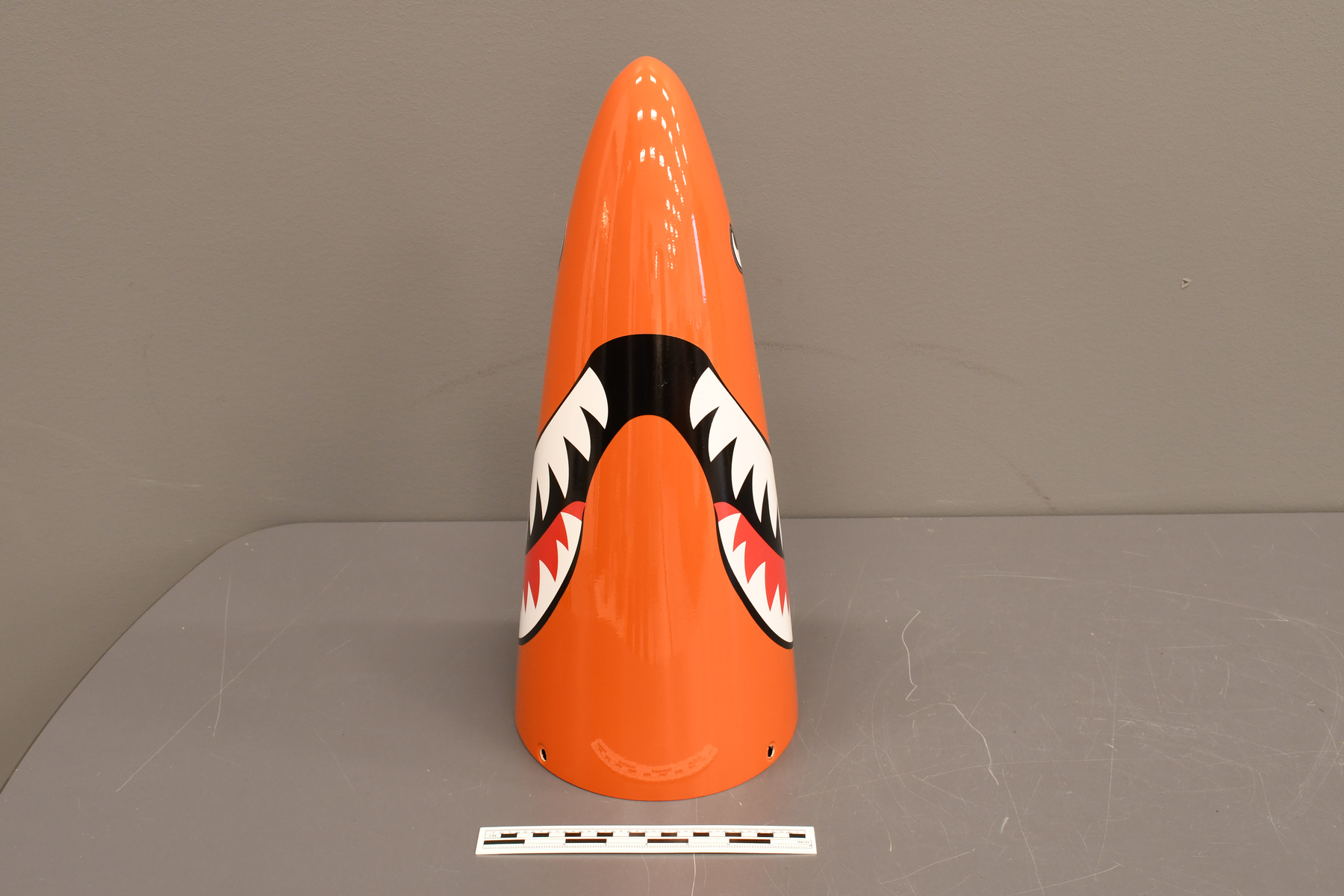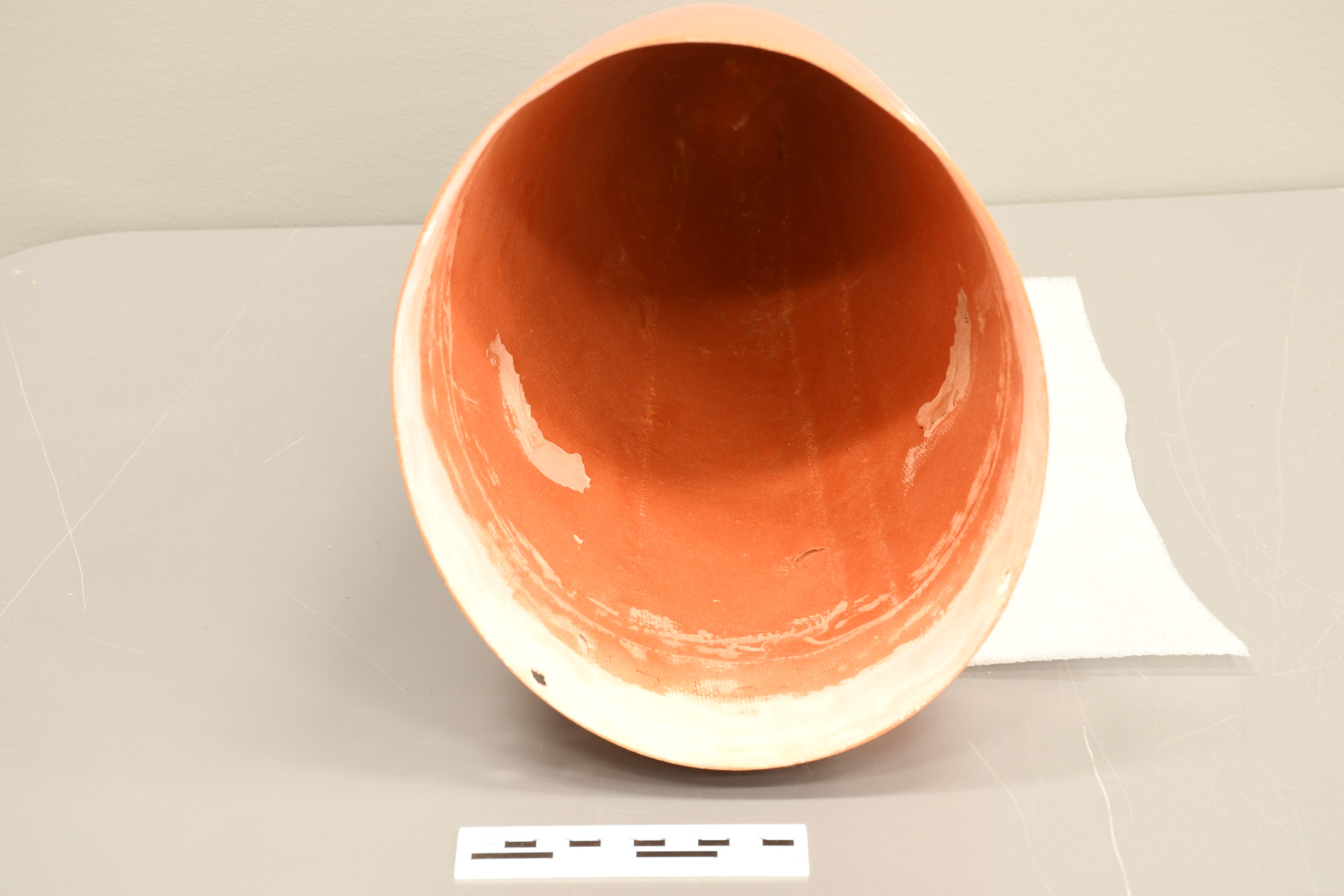Nosepiece
Use this image
Can I reuse this image without permission? Yes
Object images on the Ingenium Collection’s portal have the following Creative Commons license:
Copyright Ingenium / CC BY-NC-ND (Attribution-NonCommercial 4.0 International (CC BY-NC 4.0)
ATTRIBUTE THIS IMAGE
Ingenium,
2018.0238.002
Permalink:
Ingenium is releasing this image under the Creative Commons licensing framework, and encourages downloading and reuse for non-commercial purposes. Please acknowledge Ingenium and cite the artifact number.
DOWNLOAD IMAGEPURCHASE THIS IMAGE
This image is free for non-commercial use.
For commercial use, please consult our Reproduction Fees and contact us to purchase the image.
- OBJECT TYPE
- UAV
- DATE
- 2009
- ARTIFACT NUMBER
- 2018.0238.002
- MANUFACTURER
- Unknown
- MODEL
- Vindicator II
- LOCATION
- Unknown
More Information
General Information
- Serial #
- VT440
- Part Number
- 2
- Total Parts
- 10
- AKA
- N/A
- Patents
- N/A
- General Description
- An object made of , glass elements/Un objet fait avec des éléments en verre.
Dimensions
Note: These reflect the general size for storage and are not necessarily representative of the object's true dimensions.
- Length
- 23.5 cm
- Width
- 20.0 cm
- Height
- 46.0 cm
- Thickness
- N/A
- Weight
- N/A
- Diameter
- N/A
- Volume
- N/A
Lexicon
- Group
- Aviation
- Category
- Aircraft
- Sub-Category
- N/A
Manufacturer
- AKA
- Unknown
- Country
- Unknown
- State/Province
- Unknown
- City
- Unknown
Context
- Country
- Canada
- State/Province
- Unknown
- Period
- 2010-2014
- Canada
-
This Vindicator II was the 440th made by Meggitt Training Systems Canada in 2009. In fact, the Vindicator II was the first mass produced target drone in Canada. Over twenty small and medium sized businesses helped create various elements of this drone and greatly contributed to both the regional and provincial economy. The Vindicator II was used to help train the Canadian Armed Forces in defense against anti-aircraft weapons for the Royal Marines division as well as the Canadian army. This Vindicator II was made for the Royal Marines of Canada (RMC) specifically and had its first flight in Paris. It flew for the first time in 2010 during a multinational naval training exercise under the name Halcyon RV (Rendezvous). The exercise was run by the MRC and took place between June 14 and 25th between Virgina and the maritimes. Complété en mai 2009, ce Vindicator II est le 440e fabriqué par Meggitt Training Systems Canada. De fait, le Vindicator II est le premier drone cible canadien produit en grande quantité. Plus de vingt petites et moyennes entreprises fabriquent divers éléments – une contribution importante à l’économie régionale et provinciale. Les forces armées canadiennes font appel au Vindicator II pour entraîner le personnel de défense antiaérienne de la Marine royale du Canada et de l’Armée canadienne. Ce Vindicator II fabriqué pour la Marine royale du Canada (MRC) semble par ailleurs avoir été baptisé Paris. Il vole pour la première fois en 2010 au cours d’un exercice naval multinational connu sous le nom d’Halcyon RV (Rendezvous). Cet exercice dirigé par la MRC se tient du 14 au 25 juin entre la Virginie et les provinces maritimes. - Function
-
Used on the front of the Vindicator II target drone to help keep it aerodynamic and agile during its training exercises. Attacher au-devant du drone-cible Vindicator II pour le garder aérodynamique et agile pendant ces exercices d’entrainement. - Technical
-
The Vindicator II makes its way into the skies with the help of a catapult that is easily transportable and can be used on both land and sea. The drone returns to the earth by way of a parachute. The drone is controlled with a (UTCS) or Universal Target Control System which enables the operator to control the drone to a distance of roughly one hundred kilometers. It is the first system in the world that can control target drones, land vehicles without drivers, or surface targets. The Vindicator II was the first in the world to be operated by the UTCS and can be uses as target practice for both antinaval combat at sea or as antiair combat training over forested areas. Il est à noter que le Vindicator II prend l’air grâce à une catapulte à air comprimé facilement transportable et utilisable tant à terre qu’à bord d’un navire. Un drone cible redescend au sol à l’aide d’un parachute. Un drone est contrôlé avec l’aide du Universal Target Control System (UTCS). Un opérateur peut maintenir le contrôle sur une distance atteignant les cent kilomètres. De fait, l’UTCS est le premier système au monde capable de contrôler simultanément des drones cibles, des véhicules terrestres sans pilote ou des cibles de surface. Il est à noter que le Vindicator II est le premier drone cible commandé par l’entremise d’une UTCS. Un drone cible moderne comme le Vindicator II peut être utilisé pour simuler des cibles aussi variées qu’un missile antinavire volant au ras des vagues ou un avion de combat volant au ras des arbres. - Area Notes
-
Unknown
Details
- Markings
- None apparent/L'objet n'a pas de marque.
- Missing
- None apparent/L'objet a toutes ces pièces.
- Finish
- An orange painted cone shaped object that is made of fibreglass. It that has two screw holes on either side of its open base. Un objet fait en fibre de verre en forme de cône qui est peinturé orange. Il y a deux trous de chaque côté de sa base ouverte pour accueillir des vises.
- Decoration
- A symmetric decal that showcases a shark head sits on either side of the object. The decal has a red tongue between a set of white pointed teeth with a black lip outline. Above the mouth is a set of white eyes with a black contour as well as a black pupil. The eyes finish in a point towards the back of the artifact. Une décalcomanie symétrique qui démontre la tête d'un requin sur chaque côté de l'objet. La décalcomanie a une langue rouge au travers une rangée de dents blanches qui sont pointues et une lèvre noire qui les contourne. Au-dessus de la bouche il y a une paire d'yeux blancs avec une pupille noire. Les yeux sont contournés en noir et fini en pointe vers le dos de l'artefact.
CITE THIS OBJECT
If you choose to share our information about this collection object, please cite:
Unknown Manufacturer, Nosepiece, circa 2009, Artifact no. 2018.0238, Ingenium – Canada’s Museums of Science and Innovation, http://collections.ingeniumcanada.org/en/item/2018.0238.002/
FEEDBACK
Submit a question or comment about this artifact.
More Like This
